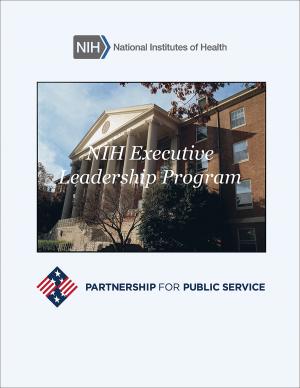Purpose
The Executive Leadership Program (ExLP) offers GS 15 and SES (and equivalent) leaders an opportunity to refine their leadership skills with a small cohort of high-performing NIH executives. Through this 7-month program, leaders will have the opportunity to engage with scholar practitioners via interactive discussions, NIH case studies and experiential exercises. Participants will have the opportunity to directly engage with NIH leadership by working on projects, attending special events and receiving support from peer mentors.
The Partnership for Public Service, a nonpartisan, nonprofit organization with a mission to revitalize the government by transforming the way government works, is our new learning partner for the ExLP. The Partnership plays a critical role in developing more innovative and results-oriented leaders across the federal government through its many leadership programs, seminars, and team-building retreats.
The ExLP is a leadership experience for current and aspiring “Top 6” leaders:
- IC Directors
- IC Deputy Directors
- Scientific Directors
- Executive Officers
- Clinical Directors
- Scientific Executives
- OD Leadership Positions
2024-2025 ExLP Program Dates
| Session | General Topics | |
|---|---|---|
| Orientation July 31 Lawton Chiles International House (Stone House) |
The Beginning of the ExLP Journey – What to Expect | |
| #1 Leadership and Self-Awareness Sept 3-6 National Conservation Training Center - Shepherdstown, WV |
Emotional Intelligence, Executive Presence | |
| NIH Special Event - Clinical Center Tour October 3 (New Date) NIH Clinical Center |
Explore the NIH Clinical Center | |
| #2 Executive Communications October 16-17 The Partnership for Public Service, Washington, DC |
Media Training and Presentation Skills | |
| NIH Special Event - NCATS Research: Leading at the Cutting Edge of Science November 7 9800 Medical Center Dr. |
Discussion and Tour with Dr. Joni Rutter, NCATS Director and NCATS Leadership | |
| #3 Leading Amid Uncertainty November 20-21 The Partnership for Public Service, Washington, DC |
Stress Management, Resilience, Influence, Crisis Management | |
| Action Learning Work-Out December 5 The Partnership for Public Service, Washington, DC |
Develop Recommendations for Critical NIH Issue | |
| #4 Leading Change January 22-23, 2025 The Partnership for Public Service, Washington, DC |
Change Management, Motivation and Conflict, Influence | |
| NIH Special Event - Leadership Café with NIH Deputy Directors January 30, 2025 NIH Campus - Wilson Hall, Building 1 |
Explore NIH's Organizational Priorities | |
| #5 Commitment to Public Service February 26-27, 2025 The Partnership for Public Service & Capitol Hill, Washington, DC |
Collaborate Across Boundaries, Engage with HHS, Meet Members of Congress, Staffers and Key Officials on Capitol Hill | |
| NIH Special Event - Leadership Cafe with Top 6 Leadership March 4, 2025 NIH Campus - Natcher, E1/E2 |
Conversation with Current "Top 6" Leaders | |
| NIH Special Event - Leadership Q&A with NIH Director TBD NIH Campus |
Meet and Interact with NIH Director | |
| Graduation March 27, 2025 NIH Campus - Building 31 |
Celebrate Accomplishments |
Participant Feedback
How has the ExLP helped you as a leader?
Testimonials
"I have a better ability to recognize potential new opportunities and willingness to take risks."
"I have an increased understanding of the external influencers."
"I feel more confident to handle crises, and more outgoing and confident in my ability to network. I have also be experimenting with presentation and framing ideas."
"I wanted to accomplish two things: first, to be able to understand better when to toggle between management and leadership - to understand the differences better. Second, to be able to project/express empathy to my staff. I feel I learned both of these things very successfully - I'm so happy!"
"I've worked very hard to apply many of the leadership activities and lessons into my day to-day business. Not just for an improvement in my management style, but to exert and promote leadership qualities that I value."
"It helped bring clarity to me about what I want to do next, professionally."
"Learned a great deal about positive management and managing crisis. Provided an opportunity to think about transition and change in the organization and how to adapt more nimbly."
"Networking, communication skills, self-reflection, and better understanding of NIH."
"Public speaking and how to respond to the press. Some ideas about where to get additional resources for growth and better understanding of the challenges faced by other NIH leaders."
"Self-awareness, confidence, and tools for managing crisis."
"Taking time to think about my leadership styles and how I engage effectively with my stakeholders and colleagues, and supervisors etc."
"{ExLP} Was my first Leadership training, and I learned so much about how I reacted before and led meetings and discussions, and how to improve. I know I'm a much better leader now."
"Networking with peers and current leadership!"
NIH ExLP Alumni
Please note that graduates’ latest bios are updated annually. Please contact Keisha Berkley at keisha.berkley@nih.gov if you have an update you’d like reflected out of cycle.
2022 ExLP Participants
Larissa Avilés-Santa, MD, MPH

Director, Division of Clinical and Health Services Research at the National Institute on Minority Health and Health Disparities
NIMHD
Dr. Avilés-Santa distinctly remembers falling in love with the human body when she browsed her fifth grade atlas de anatomía humana and immediately realizing that she wanted to become a physician. This fascination and curiosity about the human body and medicine were further nurtured by accompanying her paternal grandmother to medical appointments at the Puerto Rico Medical Center, where the University of Puerto Rico School of Medicine is located. Years later, she would study at that school of medicine.
Her interest in endocrinology started during her undergraduate studies, and was intensified during her residency, while taking care of a young patient with a severe endocrine condition due to an underlying intractable malignancy. Through the study of her patient’s condition, she discovered the value and need for clinical research, and pursued an endocrinology fellowship in Texas. The high prevalence of diabetes among Hispanics/Latinos led her through a different clinical research path, and equipped her to join the National Heart, Lung, and Blood Institute (NHLBI) in 2006 as the project officer for the Hispanic Community Health Study/Study of Latinos.
Dr. Avilés-Santa has participated in various NIH-wide committees and working groups addressing minority health, diabetes mellitus and its complications, cardiovascular health, chronic diseases, women’s health, and vascular dementia. In 2015, she founded the NIH Hispanic Health Research Scientific Interest Group.
In 2017, Dr. Avilés-Santa was the field coordinator of the post-Hurricanes Irma and María recovery of the health and social services of the entire territory of Puerto Rico during the first six and a half months of work coordinated by the U.S. Department of Health and Human Services. In this capacity, she led a diverse group of volunteer federal employees and local contractors in the performance of needs assessments of health care and social services facilities in collaboration with local key partners. Additionally, she directed the proposal of multiple recovery strategies.
Working in the recovery of health care facilities and systems in Puerto Rico, inspired her to promote research in this field. In 2019, she joined the National Institute on Minority Health and Health Disparities (NIMHD) as the director of the Division of Clinical and Health Services Research. In this capacity, she has led and/or supported her team in the development of multiple initiatives related to clinical care, health services, health care models, and health care systems research within the context of health and health care disparities. She is working on a recently approved concept on Latin America: Synergizing Health Research Across the Hemisphere, as well as an upcoming parallel workshop.
She looks forward to the opportunity offered in the NIH Executive Leadership Program to strengthen skills and improve effectiveness as a leader, and develop new and meaningful relationships with colleagues across the NIH and beyond.
Dorothy Beckett, PhD

Division Director, Division of Biophysics, Biomedical Technology, and Computational Biosciences (BBCB)
National Institute of General Medical Sciences
Dorothy Beckett, Ph.D., is director of the NIGMS Division of Biophysics, Biomedical Technology, and Computational Biosciences. The division support quantitative research spanning the full range of biological organization from the molecular to the population level and supports technology development and resources to facilitate advances in basic biomedical research.
Prior to assuming the BBCB directorship, Beckett was a faculty member in the Chemistry and Biochemistry Department at the University of Maryland, College Park, where, in addition to teaching, she directed a research program that focused on the basic biophysical chemistry of protein function and its significance for biological regulation. Her multidisciplinary research program employed a range of techniques including solution thermodynamic and kinetic measurements, structural biology, and computation. Beckett, who has long record of service to the biophysics community, was president of the Biophysical Society from 2014 to 2015.
Beckett earned an A.B. in chemistry from Barnard College at Columbia University, and a Ph.D. in biochemistry from the University of Illinois at Urbana-Champaign. She performed postdoctoral research at the Massachusetts Institute of Technology and Johns Hopkins University.
Liza Q. Bundesen, PhD
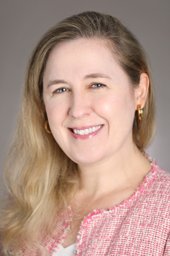
Deputy Director, Office of Extramural Research
National Institutes of Health
Dr. Liza Bundesen is Deputy Director of the Office of Extramural Research (OER) within the National Institutes of Health (NIH). In OER, Liza works on a variety of issues, such as developing and implementing policies and procedures related to the funding and oversight of NIH grants; working on efforts to protect the integrity of NIH-funded research, which includes addressing harassment and discrimination in extramural research settings; and communicating the value of NIH-supported research to NIH’s wide range of stakeholders. Prior to her current role, Liza was a senior advisor in OER and Chief of the Science Policy and Evaluation Branch at the National Institute of Mental Health (NIMH). At NIMH, she oversaw policy and planning activities for the institute, including Congressional reporting, strategic planning, and program evaluation. Liza joined NIMH as an American Association for the Advancement of Science (AAAS) Science and Technology Policy Fellow. Before coming to NIH, she was a Science and Technology Policy Fellow at the National Academies, where she worked at the journal Proceedings of the National Academy of Sciences. Liza received her Ph.D. in neuroscience from Georgetown University and her B.S. in molecular biology from Lehigh University.
Beth Chandler, ESQ

Deputy Director, Office of Human Resources
NIH
Beth Ilana Chandler Esq. has over 27 years of experience in the Human Resource field. Currently she serves as the Deputy Director of the Office of Human Resources (OHR) at the National Institutes of Health (NIH). Prior to this position, Ms. Chandler was the Director of NIH OHR’s Workforce Relations Division. In that role, she managed numerous NIH-wide programs including employee and labor relations, performance management, employee benefits and retirement, leave administration, workers’ compensation, and processing and payroll functions.
She began her government career in 1995 as a law intern for the General Counsel of the Federal Labor Relations Authority (FLRA), an independent agency of the United States government that governs labor relations between the federal government and its employees. After graduation in 1997 Beth became a Field Attorney with the FLRA's Washington Regional Office of the Office of General Counsel, litigating Unfair Labor Practices and Representation Cases.
She joined the NIH community in November 2005 as an Employee and Labor Relations Specialist
in the Workforce Relations Division. In 2009, she became a Team Leader in the Employee
Relations and Labor Relations (ERLR) Branch in WRD. She then became Deputy Director of WRD
in August 2012, Acting Director of WRD in September 2015, and Director in April 2016.
Ms. Chandler holds a J.D from American University and a Bachelor of Science Degree from Washington University in St. Louis.
Alice Chen, MD

Senior Scientific Officer
National Cancer Institute
Dr. Chen directs the Developmental Therapeutics Clinic (DTC) in the Division of Cancer Treatment and Diagnosis at the National Cancer Institute since 2014. Within the DTC, NCI facilitates the discovery and development of new anticancer drugs and drug targets, as well as piloting novel clinical trial designs that can be applied to the development of molecularly targeted agents on a national and international basis. She is the director the Advance Developmental Therapeutic Training Program which trains medical oncologists in early phase drug development. Fellows in the program have won major awards including one of the 2020 ASCO Young Investigator awards. In the field of precision medicine, she is the co-primary investigator for one of the largest precision medicine trial, NCI-MATCH, primary investigator for the Molecular Profiling-Based Assignment of Cancer Therapy (MPACT) and mentor for an investigator leading an arm for the new ComboMATCH.
Dr. Chen is also the Chief Specialty Editor for the Frontiers Medicine: Precision Medicine. Interest in improving early phase clinical trials, Dr. Chen has led 2 revisions of the Common Toxicities Criteria for Adverse Events (CTCAE) and is a member of the Response Evaluation Criteria in Solid Tumors (RECIST) committee. Her other area of expertise includes rare tumor and sarcoma, leading as the primary investigator for several multicenter sarcoma studies testing immunotherapy and new novel agents. She has authored over 160 manuscripts and made presented by invitation to major oncology meetings internationally on early phase clinical trials, precision medicine, DNA repair and CTCAE. She has received 12 NIH/NCI Directors awards for her roles in drug development here at the NCI.
Her other experiences include nine years as a Medical Officer at the Cancer Therapy Evaluation Program (CTEP), DCTD, NCI handling a portfolio in DNA repair and antiangiogenic agents. Prior to that she was in private practice in Corpus Christi, Texas and is named one of the Super Doctors by Texas Magazine in 2004 and 2005. After her medical oncology fellowship at Baylor, she completed a Regulatory Sciences and Medical Oncology Fellowship at the FDA/NCI. She stayed in the Navy Medical Oncology Branch for several years caring for patients on clinical trials and mentoring NCI Medical Oncology fellows as co-director of the fellowship program.
Dr. Chen grew up in Knoxville, Tennessee where she is one of 4 Asians in her high school. She went to the University of Tennessee for college and medical school. She has 2 boys and did her stint as a “swimmer’s mom”, shuttling boys to various swim practices. She enjoys cooking with her husband and estate sales.
Michael Chiang, MD, MA
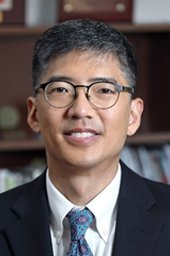
Director
National Eye Institute
Michael F. Chiang is Director of the National Eye Institute. By background, he is a pediatric ophthalmologist and is also board-certified in clinical informatics. His research focuses on the interface of biomedical informatics and clinical ophthalmology in areas such as retinopathy of prematurity (ROP), telehealth, artificial intelligence, electronic health records, data science, and genotype-phenotype correlation. He is an Adjunct Investigator at the National Library of Medicine, and his group has published over 250 peer-reviewed papers and developed an assistive artificial intelligence system for ROP that received Breakthrough Status from the U.S. Food and Drug Administration.
Dr. Chiang began at NIH in November 2020. He serves as Co-Chair of a trans-NIH working group for high value data asset sustainability, Chair of a trans-NIH clinical trials infrastructure working group, Co-Chair of a trans-NIH medical imaging working group, Co-Chair of the NIH AIM-AHEAD advisory committee, and Co-Chair of the NIH Common Fund Bridge2AI program. He is a member of the NIH Scientific Data Council. Before coming to NIH, he received a BS in Electrical Engineering and Biology from Stanford University in 1991, an MD from Harvard Medical School and the Harvard-MIT Division of Health Sciences and Technology in 1996, and an MA in Biomedical Informatics from Columbia University in 2004. He completed residency and pediatric ophthalmology fellowship training at the Johns Hopkins Wilmer Eye Institute. Between 2001-2010, he worked at Columbia University, where he was Anne S. Cohen Associate Professor of Ophthalmology & Biomedical Informatics, director of medical student education in ophthalmology, and director of the introductory graduate student course in biomedical informatics. From 2010-2020, he worked at Oregon Health & Science University (OHSU), where he was Knowles Professor of Ophthalmology & Medical Informatics and Clinical Epidemiology, and Associate Director of the Casey Eye Institute.
Theresa Cruz, PhD
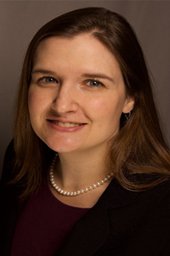
Director, National Center for Medical Rehabilitation Research
Eunice Kennedy Shriver National Institute of Child Health and Human Development
Theresa Hayes Cruz, Ph.D., a biomedical engineer, is the Director of the National Center for Medical Rehabilitation Research (NCMRR) at the Eunice Kennedy Shriver National Institute of Child Health and Human Development. Through basic, translational, and clinical research, NCMRR fosters the development of scientific knowledge needed to enhance the health, productivity, independence, and quality-of-life of people with physical disabilities. As Director of NCMRR, Dr. Cruz led the development of the 2021 NIH Research Plan on Rehabilitation and planned the 2020 trans-NIH Rehabilitation Research Conference Envisioning a Functional Future.
She represents NIH on various federal committees, including the Interagency Committee on Disability Research. In addition to her duties at NCMRR, Dr. Cruz is a Team lead in the NIH Brain Research through Advancing Innovative Neurotechnologies® (BRAIN) Initiative where she co-manages a grant portfolio in the areas of neurotechnology development, validation, and translation.
Dr. Cruz joined NIH in 2009 as a program analyst. In 2015, Dr. Cruz performed a research detail at the Functional and Applied Biomechanics Laboratory in the Rehabilitation Medicine Department of the NIH Clinical Center. In late 2016, she returned fulltime to NCMRR in the role of program officer where she began an early career researcher program in rehabilitation. In 2020, Dr. Cruz was named the Director of NCMRR.
Dr. Cruz received her bachelor's degree in biomedical engineering with highest honors from the School of Engineering at Rutgers, the State University of New Jersey. She received her master's and doctoral degrees in biomedical engineering from Northwestern University. Her previous research at the Rehabilitation Institute of Chicago focused on motor control and gait impairments of the lower limb following stroke.
Lisa Cunningham, PhD
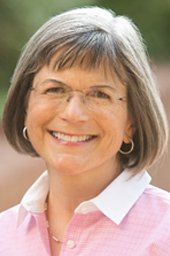
Scientific Director
National Institute on Deafness and Other Communication Disorder
Lisa Cunningham was trained clinically as an audiologist before obtaining a PhD in Neuroscience from the University of Virginia. She did a post-doctoral fellowship in auditory neuroscience at the University of Washington in Seattle. Dr. Cunningham’s lab at NIDCD conducts basic, translational, and clinical studies on sensory hair cell degeneration and hearing loss in the mature inner ear and develops therapeutic strategies to safeguard hearing. Her basic science studies examine the cellular and molecular mechanisms that underlie sensory hair cell death and survival, and her translational studies use this mechanistic knowledge to guide the rational design of therapies aimed at preventing hearing loss in humans. Clinical studies in her lab test the efficacy of these potential therapeutic strategies. Of particular interest is the development of treatments aimed at protecting the hearing of patients receiving therapeutic drugs with ototoxic side effects.
Dr. Cunningham was voted among the Top 10 teachers in the Medical University of South Carolina College of Graduate Studies three times between 2004 and 2007; she received the National Organization for Hearing Research Burt Evans Young Investigator Award in 2008, and she was honored with NIDCD Director’s Awards in 2016 and 2020. In 2018 she received an NIH Graduate Partnerships Program Outstanding Mentor Award. Highlighting her innovation in bridging basic and clinical research, in 2020 Dr. Cunningham received an NIH Bench-to-Bedside Award in support of a Phase 3 study designed to determine whether the cholesterol-lowering drug atorvastatin reduces hearing loss in cancer patients being treated with the ototoxic drug cisplatin. Dr. Cunningham was appointed as NIDCD Scientific Director in April 2021.
Patrick SF Bellgowan, PhD
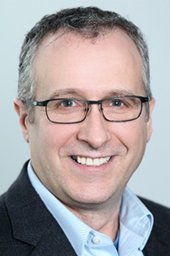
Deputy Associate Director
Division of Neuroscience / NINDS
Dr. Patrick Bellgowan is currently the Deputy Associate Director in the Division of Neuroscience (DON) at the National Institute for Neurological Disorders and Stroke (NINDS). In this role, Dr. Bellgowan provides advice and assistance in managing and coordinating programmatic activities and scientific priorities, serves to coordinate cross-divisional activities, and provides assessment and analysis of available resources to best accomplish the NINDS’ mission.
Prior to being appointed as Deputy Associate Director, he served as Program Director in the DON overseeing the Traumatic Brain Injury (TBI) research at NINDS as well as serving as the NIH primary point of contact for multiple interagency TBI-related programs. The NINDS TBI portfolio covers a broad spectrum of research from disease-related basic research to large clinical research programs.
In addition to overseeing the TBI portfolio for NINDS, he also is programmatically involved in NIH’s Brain Initiative, Human Connectome project, and the NIH Neuroscience Blueprint program.
Dr. Bellgowan received his Ph.D. at the University of Wisconsin-Milwaukee in behavioral neuroscience studying the role of amygdala in fear conditioning. Dr. Bellgowan did his postdoctoral training focusing on investigating human memory systems using functional neuroimaging at the Medical College of Wisconsin and later in the Intramural program at NIH. Before coming to the extramural program at NINDS he was the Director of Cognitive Neuroscience and Associate Professor at the Laureate Institute for Brain Research and University of Tulsa, Dr. Bellgowan used MR and immunological methods to study the acute effects of concussion in collegiate athletes.
Bekah E. Geiger, MSW
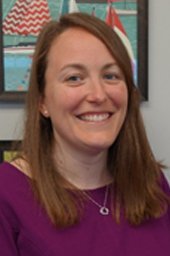
Deputy Executive Officer
National Center for Advancing Translational Sciences
Bekah Geiger is the Deputy Executive Officer of NCATS, where — from within the Office of Administrative Management (OAM) — she helps provide executive leadership over the Center’s policies and procedures for administration, program management, information technology, personnel management, workforce planning, facilities management, acquisitions, management analysis, ethics and financial management.
Prior to being named Deputy Executive Officer in 2022, Bekah served as the Chief of NCATS’ Ethics and Management Analysis Branch of the OAM, where she managed NCATS’ ethics program, in addition to overseeing procedures related to workforce, risk, emergency, policy, and records management. Bekah also spent almost nine years at the NIH Clinical Center, where she held numerous roles, including serving as Chief of the Office of Management, Planning and Public Liaison and General Manager of the Edmond J. Safra Family Lodge.
Bekah served as an NIH at-large Presidential Management Fellow (PMF) from 2006 to 2008. During her fellowship, she rotated through a range of offices, enriching and expanding her knowledge of NIH and specific Institutes and Centers. Bekah earned her Master of Social Work from the University of Michigan, with a focus on health and concentrations in management of human services and social policy and evaluation.
Colleen Hadigan, MD, MPH
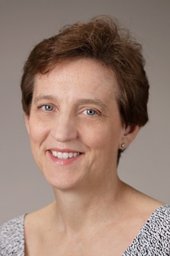
Chief Medical Officer
Clinical Center
Dr. Hadigan became the Chief Medical Officer and Clinical Director of the National Institutes of Health Clinical Center in October 2021. She came to the NIH in 2006 as a member of the Laboratory of Immunoregulation of the National Institute of Allergy and Infectious Disease (NIAID). Her academic medical career has been primarily centered in clinical research with much of the focus on the long-term and metabolic complications of HIV and its therapies in both children and adults. In addition to her active research and mentoring, Dr. Hadigan served as the Deputy Manager of the NIAID Outpatient HIV and Infectious Diseases Research Clinic for over 10 years. She is board certified in Pediatrics and Pediatric GI and Hepatology and remains clinically active as a Pediatric GI and Hepatology consultant for the NIH Clinical Center.
Dr. Hadigan received her medical degree from the Johns Hopkins School of Medicine and subsequently completed her residency in Pediatrics at Boston Children’s Hospital followed by a fellowship in Pediatric Gastroenterology and Hepatology in the Harvard Combined Program for Pediatric Gastroenterology, Hepatology and Nutrition at Boston Children’s Hospital and Massachusetts General Hospital. She also received her MPH at the Harvard School of Public Health.
Carolyn Hutter, PhD
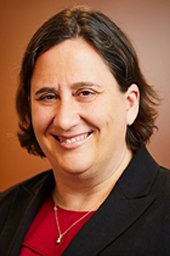
Director, Division of Genome Sciences
National Human Genome Research Institute
Dr. Carolyn M. is the director for the Division of Genome Sciences in the National Human Genome Research Institute (NHGRI) Extramural Research Program. She started this position in 2018, after having served in the position of acting division director in 2017. In this role, Dr. Hutter leads efforts to support and accelerate foundational resources, technology development, experimental approaches and analytical tools in genome sciences.
Dr. Hutter joined the NIH in 2012, serving as a program director in the National Cancer Institute (NCI) Epidemiology and Genomics Research Program. She transferred to NHGRI in 2013 as a program director, serving as the NHGRI team lead for The Cancer Genome Atlas (TCGA). Prior to NIH, she was a senior staff scientist at the Fred Hutchinson Cancer Research Center and lecturer at the University of Washington, where her research focused on large-scale consortia work for genome-wide association studies and on gene-environment interactions for cancer and other complex diseases.
Dr. Hutter received her Sc.B. in applied mathematics - biology from Brown University, her M.S. in genetics from Cornell University, her M.S. in biostatistics from the University of Washington and her Ph.D. in epidemiology from the University of Washington.
Raymond Jacobson, PhD

Division Director, Division of Basic and Integrative Biological Sciences
Center for Scientific Review
Dr. Raymond Jacobson is the Director of the Division of Basic and Integrative Biological Sciences at the Center for Scientific Review. In this capacity, he oversees more than 50 study sections covering a broad range of basic sciences including bioengineering and computational biology, biochemistry and structural biology, cell and developmental biology, genetics and genomics, and basic and translational cancer biology.
Since coming to the Center for Scientific Review in 2009, he has held a variety of positions related to advancing scientific peer review. He originally joined CSR as a Scientific Review Officer in the Bioengineering Sciences and Technologies IRG. In 2015 he was appointed as the Chief of the Biological Chemistry and Macromolecular Biophysics IRG and served in that role until 2020 when he was appointed as the Director of the Division of Basic and Integrative Biological Sciences. At CSR, he has taken on a variety of roles including overseeing high-profile initiatives such as the Big Data to Knowledge program and the NIH Director’s Transformative Research Awards, chairing the best practices committee for many years, leading ENQUIRE reorganizations of CSR study sections, and he currently serves as CSR liaison to many other parts of NIH where he works to improve communication and cooperation between CSR and NIH Institutes and Centers.
Prior to joining NIH, Dr. Jacobson was an assistant professor at the University of Texas MD Anderson Cancer Center, where his research focused on structural and biophysical aspects of eukaryotic RNA polymerase II general transcription machinery. He received his Ph.D. from the University of Oregon and did postdoctoral research in the molecular and cell biology department at the University of California, Berkeley.
Patricia Jones, DrPH, MPH, MS, MBA

Director, Office of Special Populations
National Institute on Aging
Dr. Jones is a Behavioral and Social Scientist. She is the Director of the NIH, National Institute on Aging, Office of the Director’s Office of Special Populations. In this position, Dr. Jones advances the science of eliminating health disparities, minority health, and promotes scientific workforce diversity. She facilitates addressing these scientific areas through collaborative partnerships in basic, clinical and translational and behavioral and social science research, supports developing initiatives that strengthens NIA’s research and training opportunities available to underrepresented persons, including minoritized populations and women, and advises other senior staff on health research related to populations that are underrepresented in research.
Dr. Jones also directs the NIA Butler-Williams Scholars Program, formerly known as the Summer Institute on Aging Research, for early career aging researchers and serves as the Executive Secretary for the Task Force on Minority Aging Research (TFMAR), a task force to the National Advisory Council on Aging. Dr. Jones also has a leadership role in UNITE, a NIH initiative to end structural racism in biomedical and behavioral research and IN developing the NIH Diversity, Equity, Inclusion, and Accessibility Strategic Planning Framework.
Dr. Jones has over 28 years of experience that reflects both applied Public Health, teaching in academic settings, and leading federally funded research activities. Over the past 18 years, Dr. Jones has held several leadership roles within the federal government. Her leadership positions include working at the NIH, National Center for Advancing Translational Sciences (NCATS), where she served as a Health Scientist Administrator (HSA) for the Division of Clinical Innovation and led a national strategic management and program evaluation initiative while simultaneously serving as a Program Director and Project Scientist for numerous awards that enhanced recruitment and retention of underrepresented persons in clinical trials, addressed health disparities, promoted Dissemination and Implementation Science, and facilitated Collaboration and Team Science. While at NCATS, Dr. Jones simultaneously served as NCATS’ point of contact for health disparities, Dissemination and Implementation Science, Behavioral and Social Science Research, Community and Patient Engagement, and Program Evaluation. Before joining NCATS, she was a Senior Health Specialist with the National Institute of Allergy and Infectious Diseases (NIAID) supporting international clinical and behavioral trials. Prior to joining NIAID, Dr. Jones served as the Deputy Lead for the Research Synthesis and Translation Team in the Behavioral Intervention Research Branch within the Division of HIV/AIDS Prevention, National Center for HIV, Viral Hepatitis, STD, and TB Prevention at the Centers for Disease Control and Prevention (CDC).
Prior to becoming a federal employee, Dr. Jones worked at an academic institution leading research projects supported with NIH and other types of resources, a large local Public Health Department and a well-established non-profit healthcare organization.
Dr. Jones completed a doctoral degree in Public Health at Loma Linda University School of Public Health, a Master of Public Health at University of California at Los Angeles, a Master of Science in Biotechnology and a Master of Business Administration at the University of Maryland Global Campus, and a Bachelor of Arts degree in Women’s Studies at University of California at Berkeley.
Tiffani Lash, PhD

Scientific Initiatives Director
National Institute of Biomedical Imaging and Bioengineering
Dr. Tiffani Bailey Lash serves as a scientific initiative leader for the National Institutes of Biomedical Imaging and Bioengineering (NIBIB) at the National Institutes of Health (NIH). Dr. Lash is a Director for the NIH Rapid Acceleration of Diagnostics (RADx℠) Tech and Advanced Technology Platforms initiative, NIH Technology Accelerator Challenge (NTAC), and the NIBIB Point of Care Technologies Research Network. She also serves as a co-coordinator for the NIH Common Fund's Harnessing Data Science for Health Discovery and Innovation in Africa. She also manages a research portfolio that includes Point of Care Technologies and Digital Health, both with the goal of developing biomedical technologies through collaborative efforts that merge scientific and technological capabilities with clinical need.
Prior to her current position, Dr. Lash worked within the NIH’s science policy administration. During that time, she worked at the National Institute of General Medical Sciences and National Heart Lung and Blood Institute, as well as the NIH Office of the Director. Dr. Lash has been selected as a science policy fellow for both the American Association for the Advancement of Science (AAAS) and the National Academy of Engineering. She also has a background in small business innovation and intellectual property. Dr. Lash earned her Ph.D. in Physical Chemistry from North Carolina State University via a collaboration between the Departments of Chemistry and Chemical and Biomolecular Engineering. Her interdisciplinary research interests include microfluidics, biopolymers with controlled molecular architecture, and biosensor technologies.
LeShawndra N. Price, PhD

Director, Office of Research Training and Special Programs
National Institute of Allergy and Infectious Diseases
LeShawndra Price, Ph.D., Director of the Office of Research Training and Special Programs (ORTSP) at the National Institute of Allergy and Infectious Diseases (NIAID), is a leading expert in the fields of health equity, global health, and implementation science, with more than 20 years of experience at the NIH. She supports research training programs to develop the next generation of researchers and physician scientists, including promoting diversity within the biomedical research workforce, within NIAID’s mission areas. Dr. Price also manages NIAID’s Small Business Innovation Research and Small Business Technology Transfer programs and implements the Institute’s international outreach and compliance program, including overseeing the NIAID Global Infectious Disease Research Administration Award for Low- and Middle-Income Country Institutions (G11).
In partnership with academic medical centers and universities, ministries of health, NGOs, and other research institutions, Dr. Price has built collaborative research programs across multiple sectors with the aim of reducing disease in vulnerable populations and improving healthcare delivery around the world. Her work has spanned the entire lifespan from childhood to adulthood across infectious diseases, and several chronic diseases, including mental health, substance abuse, and heart, lung, and blood diseases. Immediately prior to joining NIAID, Dr. Price was Chief of the Health Inequities and Global Health Branch at the National Heart, Lung, and Blood Institute, where she developed the Institute’s strategy to build a transdisciplinary research portfolio focused on implementation, evaluation, and dissemination of evidence-based interventions targeted at reducing health inequities across the lifespan in low resource settings in the U.S. and globally. In addition, Dr. Price previously served as Project Scientist for a National Institute of Mental Health initiative designed to improve treatments and expand access to mental health care in more than 20 low- and middle-income countries. She was also one of the NIH’s coordinators of the Mental Health Across the Lifespan Initiative, a collaboration between the NIH and Delta Sigma Theta Sorority to raise awareness about mental health conditions affecting women and their families. Dr. Price has held corporate positions with Carolina Power and Light Energy & Environmental Center, Burroughs-Wellcome (now Glaxo Smith Kline), Research and Evaluation Associates, and within academia at both Research I institutions and a Historically Black University.
After receiving her B.A. degree in Psychology with Honors from Wake Forest University, Dr. Price attended the University of North Carolina at Chapel Hill, where she earned her M.A. and Ph.D. in Developmental Psychology.
Pamela Thornton, PhD

Senior Advisor for Workforce Diversity and Health Equity
National Institute of Diabetes and Digestive and Kidney Diseases
Pamela L. Thornton is the Senior Advisor for Workforce Diversity and Health Equity, and a Program Director for the National Institute of Diabetes and Digestive and Kidney Diseases (NIDDK). She is responsible for planning, catalyzing, and promoting strategies to support inclusive excellence in the workforce and embedding equity-focused principles into the Institute’s policies and practices. Dr. Thornton also oversees the NIDDK-funded Centers for Diabetes Translation Research whose service cores foster the translation of evidence-based interventions into diverse clinical and community-based settings across the country. Prior to joining NIDDK, Dr. Thornton supported the development and management of an NIH Common Fund workforce development and diversity consortium at the National Institute of General Medical Sciences (NIGMS) and the National Institute on Minority Health and Health Disparities (NIMHD). She also served as a principal at the MITRE Corporation and senior advisor at the Health Policy Institute of the Joint Center for Political and Economic Studies where she managed organizational change management and healthcare portfolios, and a national program to address health inequities by intervening on the social determinants of health.
Dr. Thornton earned her B.S. in English and Psychology from Howard University, M.S.W. from the Catholic University of America, and Ph.D. from the University of Maryland Baltimore. She studied international health policy at the University of Bristol, England, and completed postdoctoral training at the University of Michigan Institute for Social Research in the inaugural cohort of the W.K. Kellogg Foundation Health Disparities Scholars program.
Dr. Thornton was raised in Northern Virginia with Tennessee southern roots. She credits her passion for research and service to her faith, community, and mentors. She enjoys live music, reading, traveling, and spending time with her family.
Victor Voloshin, JD, MBA
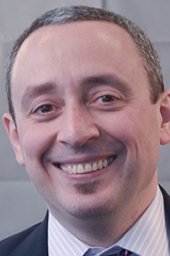
Director, Center for Cooperative Resolution
NIH Ombuds
Victor Voloshin is a nationally recognized expert in workplace conflict management and the preeminent Executive branch authority on alternative dispute resolution (ADR) in the Federal EEO process.
Immediately before coming to NIH, Victor served for almost 12 years as Chief Mediation Officer at the U.S. Equal Employment Opportunity Commission (EEOC), helping federal agencies design and improve their internal workplace programs using ADR. He also directed EEOC’s internal ADR program that addresses workplace problems through mediation, informal dispute resolution, group facilitations, and conflict-resolution training. Prior to EEOC, Victor served as the ADR Director for the New York City Civilian Complaint Review Board, an independent mayoral agency responsible for handling complaints against the New York City Police Department.
For many years Victor was an adjunct professor at NYU’s Conflict and Dispute Resolution Program and at New York Institute of Technology. Prior to government service, Victor was an attorney, consultant, mediator, negotiator, and arbitrator in the private sector. He has worked with non-profit organizations, quasi-governmental entities, and large multi-national corporations.
Victor is a licensed attorney, who earned his J.D. and M.B.A. from the College of William and Mary.
Xavier Soosai, MS, MBA
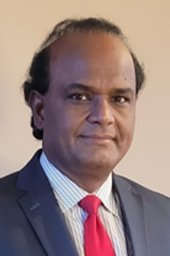
Chief Information Officer and Director of IT Services
Center for Information Technology
As the Director of the Office of Information Technology Services Management at the Center for Information Technology (CIT), Xavier Soosai oversees ten IT service divisions with $350 million in annual budget and managing a team of 840+ staff in the delivery of scientific research and business operations across the institutes and centers (ICs) at NIH. This includes maintaining the performance computing environment for intramural scientists; maintaining NIH’s secure, high-speed network; ensuring the viability and availability of collaboration services; compute hosting and storage services; identity and access management services; and service desk support and more for the NIH community.
Soosai works with NIH IT leadership and IT service area managers and collaborates with NIH ICs to define scope and provide technical expertise, strategic planning, and leadership for local and enterprise IT projects that drive efficiency and innovation across NIH. Additionally, Soosai is responsible for directing the evaluation and adoption of rapidly evolving technology and forecasting future technology needs.
Before joining NIH, Soosai worked at the Department of Treasury’s Internal Revenue Service (IRS) as the Director of Strategic Planning and Technology Direction, Executive Director of Enterprise IT Operations, and the Director of Data Management. Prior to the IRS, Soosai served as the Senior Vice President of IT Infrastructure at the Bank of America and various leadership roles in Farmers Insurance Group and Zurich Financial Services responsible for IT strategy, management, and optimization of local and global IT operating environments.
Soosai received his Master of Computer Applications from St. Joseph’s College and his Master of Business Administration from Texas A&M University.
Shannon N. Zenk, PhD, MPH, RN, FAAN
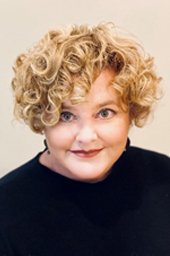
Director
National Institute of Nursing Research
Shannon N. Zenk, PhD, MPH, RN, FAAN is Director of the National Institute of Nursing Research (NINR). Her background is in nursing and public health. Dr. Zenk’s own research focuses on community environments as a social determinant of health and health inequities. She and her team conducted pioneering research on food deserts in the United States.
Dr. Zenk is an elected member of the National Academy of Medicine and was inducted into the International Nurse Researcher Hall of Fame in 2019. She earned her bachelor’s in nursing, from Illinois Wesleyan University, Bloomington; her master’s degrees in public health nursing and community health sciences from the University of Illinois Chicago (UIC); and her doctorate in health behavior and health education from the University of Michigan, Ann Arbor.
Dr. Zenk was previously Nursing Collegiate Professor in the Department of Population Health Nursing Science at the University of Illinois Chicago (UIC) College of Nursing, and Fellow in the UIC Institute for Health Research and Policy.
2020 ExLP Participants
Courtney Ferrell Aklin, Ph.D.
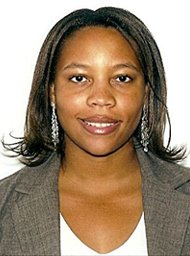
Senior Advisor to the Associate Deputy Director
National Institute of Health
Dr. Courtney Ferrell Aklin is the Senior Advisor to the Associate Deputy Director, NIH, where she is responsible for advising and assisting on a broad array of complex and sensitive issues, strategic interactions, and management leading to the effective and efficient operation of the Immediate Office of the Director. Prior to her current position, Dr. Aklin served in a key leadership role as the Chief of Staff at the National Institute on Minority Health and Health Disparities (NIMHD). As the Chief of Staff, she developed and implemented strategic initiatives to fulfill the Institute’s mission, while also overseeing the Institute’s management of the communications, outreach, and legislative activities.
Dr. Aklin has over 15 years of research administration and leadership experience at NIH. At the National Institute on Neurological Disorders and Stroke (NINDS), she designed and managed programs to augment emerging neuroscience research programs at universities and medical schools committed to increasing diversity in the biomedical workforce. Before her work at NINDS, Dr. Aklin was Assistant Director of Training and Director of the Fear and Anxiety research portfolio within the Division of Developmental Translational Research at the National Institute of Mental Health (NIMH). Dr. Aklin came to NIH in 2004 as an American Association for the Advancement of Sciences (AAAS) Science & Technology Policy Fellow to work on activities related to the Interagency Autism Coordinating Committee (IACC).
Dr. Aklin is a licensed Clinical Psychologist with a Ph.D. in clinical psychology from the University of Maryland, College Park and a B.A. in business administration and psychology from the University of Richmond. Her research interests include pediatric anxiety disorders, community-engaged research, and mental health disparities.
Nalini Anand, J.D., M.P.H.

Director, Division of International Science Policy, Planning and Evaluation
Director, Center for Global Health Studies
Fogarty International Center
After receiving her B.A. from Cornell University in 1991, Nalini assisted in conducting a two-year study at the Institute of Medicine on U.S. participation in the Children’s Vaccine Initiative. In 1996, Nalini graduated from Stanford Law School, and went on to practice law in the health care group at Hogan & Hartson (now Hogan Lovells) in Washington, D.C. At Hogan she worked on regulatory and compliance issues, implementation of HIPPA privacy rules, advising academic institutions on human subjects protection regulation and assisting senior attorneys in representing the National Hospice Association.
Nalini came to the Fogarty International Center’s Division of International Science Policy, Planning and Evaluation (DISPPE) in 2002, where she was responsible for the Center’s legislative portfolio, developing a public-private partnership strategy and a wide range of other science policy and strategic planning activities. In 2009, she received an M.P.H. from the Johns Hopkins Bloomberg School of Public Health. Nalini has served as the DISPPE Director since 2012. In 2013, she was also named Director of Fogarty’s Center for Global Health Studies (CGHS). In the first of these roles, she is responsible for managing Fogarty’s policy, strategic planning and program evaluation activities. CGHS is a trans-NIH global health “think tank” that serves as a platform for short-term, project-based scholarship in global health science and policy and a forum to convene NIH together with key stakeholders to address high-priority global health challenges with concrete, high-impact outcomes and deliverables. Consistent with the Fogarty mission, these trans-NIH projects have covered a wide range of topics in global health, including global brain disorders, prevention of childhood obesity in Latin America, mobile technologies and health, stigma reduction research, integrated care for HIV and related NCDs, and implementation science and knowledge translation as it relates to prevention and treatment of HIV in sub-Saharan Africa.
Nalini grew up in Denver, Colorado and dreams of retiring there someday. She and her biostatistician husband have two daughters (one in college and one in high school) and a beloved dog, Ollie. She loves listening to a wide range of music and enjoys hiking and biking with the family.
Trevor K. Archer, Ph.D.
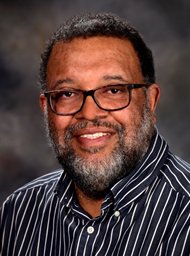
Deputy Director
National Institute of Environmental Health Sciences
As Deputy Director of NIEHS, Trevor K. Archer, Ph.D., assists the NIEHS and National Toxicology Program Director, Rick Woychik, Ph.D., in the overall management of the institute. He supports the formulation and implementation of plans and policies that carry out the NIEHS scientific mission and research goals. He also provides strategic leadership for Diversity, Equity, Inclusion and Accessibility programs at NIEHS.
His research career spans more than three decades, two of which were spent in key scientific roles at NIEHS. Archer is known for expertise in cancer biology, hormone receptors, chromatin function, epigenetics, and stem cells, as well as his dedication to addressing workplace disparities in diversity, equity, inclusion, and access. Before appointment as deputy director, Archer was chief of the NIEHS Epigenetics and Stem Cell Biology Laboratory and still heads the Chromatin and Gene Expression Group. He is also a National Institutes of Health (NIH) Distinguished Investigator.
Science in the Archer laboratory explores the intersecting areas of Epigenetics and Stem Cell Biology. Dr. Archer and his colleagues explore the interplay of microRNAs and chromatin remodeling complexes, two powerful epigenetic mechanisms that regulate the pluripotent state and how epigenetic enzymes, age, and ancestry might regulate the efficiency of human iPSC Reprogramming. These studies synergize with a major focus of the Archer laboratory, understanding of how epigenetic enzymes, including chromatin remodeling proteins such as the SWI/SNF complex, work with transcription factors, such as the glucocorticoid receptor, to respond to, both internal and external environmental cues. In this area, the research team has extensively studied the potential regulatory role of chromatin architecture in modulating the activity of these transcriptional effectors and the implications for the deregulated control of gene expression that is characteristic of cancer. Indeed, this research has the potential to expand understanding of how environmental agents influence human health.
Archer has pioneered efforts to promote diversity, equity, and inclusion at NIEHS and in the greater scientific community. He was instrumental in securing program funding to support the recruitment and retention of under-represented minority trainees. Archer assisted in establishing the Kenneth Olden Distinguished Lecture series at NIEHS, and he chairs the speaker selection committee for that program. For the NIH UNITE initiative, he co-chairs a committee focused on improving workplace culture. Former director of NIH, Francis Collins, M.D., Ph.D., recognized Archer’s leadership and longstanding commitment in promoting equity and opportunity with the 2017 NIH Equity, Diversity, and Inclusion Award of the Year.
Archer received a Ph.D. in Biochemistry in 1987 at Queen's University, Kingston, Ontario, Canada, and completed postdoctoral training on chromatin gene transcription and steroid receptors at the National Cancer Institute in Bethesda, MD. In 1991, Archer joined the University of Western Ontario in Canada, becoming a National Cancer Institute of Canada Scientist in 1992 and tenured professor in 1996. Archer was subsequently recruited to the NIEHS in 1999 to head the Chromatin Structure and Gene Expression Group and was appointed as chief of the Laboratory of Molecular Carcinogenesis in February 2003. In 2014 Archer became the founding chief of the Epigenetics and Stem Cell Biology laboratory at NIEHS.
Olivier Bodenreider, M.D., Ph.D., FACMI
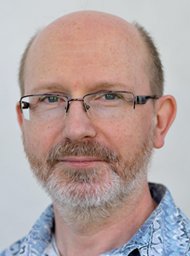
Acting Director
Lister Hall National Center for Biomedical Communications
Olivier Bodenreider is a Senior Scientist and Acting Director of the Lister Hill National Center for Biomedical Communications at the U.S. National Library of Medicine. His research focuses on terminology and ontology in the biomedical domain, both from a theoretical perspective (quality assurance, interoperability) and in their application to natural language processing, knowledge discovery and information integration.
Dr. Bodenreider is a Fellow of the American College of Medical Informatics. He received a M.D. degree from the University of Strasbourg, France in 1990 and a Ph.D. in Medical Informatics from the University of Nancy, France in 1993. Before joining NLM in 1996, he was assistant professor for Biostatistics and Medical Informatics at the University of Nancy, France, Medical School.
Valerie Durrant, Ph.D.
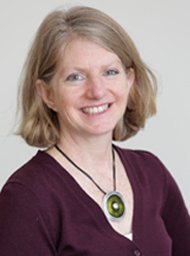
Director, Division of Aids, Behavioral, and Population Sciences
Center for Scientific Review
Dr. Valerie Durrant is the Director of the Division of AIDS, Behavioral, and Population Sciences at the Center for Scientific Review. In this capacity, she oversees 50 study sections covering a broad range of behavioral and population-based science including biobehavioral health, risk prevention and health behaviors, health care delivery and health services research, community-based and social science, clinical bioinformatics, and epidemiology.
Since coming to the Center for Scientific Review in 2003, she has held a variety of positions related to advancing scientific peer review policy, communications, and quality improvements. She originally joined as a Scientific Review Officer, served as Knowledge Management Coordinator between 2007 and 2010, Chief of the PSE IRG from 2010 to 2016, and Acting Director of the Division of Neuroscience, Development, and Aging during 2016 and again in 2020. She has coordinated the peer review of multiple high-profile NIH initiatives including the All-of-Us, Environmental Influences on Child Health Outcomes (ECHO), the Adolescent Brain Cognitive Development Study (ABCD) cohort studies. She has also served as the co-chair for the trans-NIH Review Policy Committee since 2017.
Prior to joining NIH, Dr. Durrant was a program officer at The National Academies' Committee on Population, where she led policy-related research projects addressing transitions to adulthood in developing countries, gender and health, and leveraging longitudinal and surveillance data in low- and middle- income countries. She was a Berelson post-doctoral fellow at the Population Council where she worked in their New York and Pakistan offices. Durrant holds a Ph.D. in sociology with an emphasis in demography from the University of Maryland and a B.S. in political science from Utah State University.
Bonnie Ellis, M.B.A.
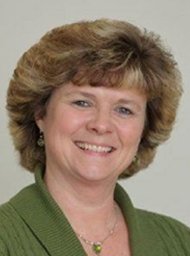
Executive Officer
Center for Scientific Research
As Executive Officer, Ms. Ellis oversees financial management, committee management, procurement, management analysis services, and administrative services that enable CSR to fulfill its mission. Ms. Ellis has a wealth of experience at the NIH, beginning in 1989. She has held a range of positions including serving as Hub Manager in the NIH Office of the Director’s Division of Extramural Administrative Support (DEAS), which involved managing support staff in multiple NIH Institutes and Centers, including CSR. More recently, she served as a Supervisory Administrative Officer and then as the Chief Administrative Officer at the National Institute on Alcohol Abuse and Alcoholism. She served as Acting Executive Officer for CSR from July 2018 until August 2019. Ms. Ellis holds an M.B.A. in Business Administration from the University of Maryland University College in College Park.
Meredith Fox, Ph.D.
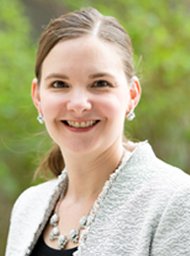
Director, Office of Science Policy, Planning and Communications
National Institue of Mental Health
Meredith A. Fox, Ph.D. is the Director of the Office of Science Policy, Planning, and Communications (OSPPC) at the National Institute of Mental Health (NIMH). Dr. Fox received her Ph.D. in Behavioral Neuroscience/Psychology from American University, where she studied the rewarding and aversive motivational effects of drugs of abuse. Following her Ph.D., she was appointed as an Assistant Professor in the Department of Psychology at American University, where she taught courses and directed a small research team. In 2005, she moved to NIMH Intramural Research Program where she performed research focused on serotonin and its transporter in the Laboratory of Clinical Science, first as a Postdoctoral (Visiting) Fellow and later as a Senior Research Fellow, serving as the Acting Deputy Laboratory Chief during her last two years. In 2012, Dr. Fox moved to OSPPC on the Extramural side of NIMH, and in 2016, she became the Director of OSPPC. In this role, she oversees NIMH efforts in areas including communications and information dissemination; science policy research and review; strategic planning; evaluation; portfolio analysis; and, public liaison, education, and outreach activities.
Rohan Hazra, M.D.

Acting Associate Director, Extramural Research
Eunice Kennedy Shriver National Institute of Child Health and Human Development
Dr. Rohan Hazra was the chief of the Maternal and Pediatric Infectious Disease Branch at the Eunice Kennedy Shriver National Institute of Child Health and Human Development (NICHD), National Institutes of Health (NIH) from 2014 until March 1, when he took over the role of NICHD acting Associate Director for Extramural Research. In this position, he oversees the 12 NICHD extramural scientific branches. He joined the NICHD in 2007, and has led pediatric HIV and other infectious disease clinical trials and observational studies in the United States and globally.
He received his B.S. degree in biology from Yale University and his M.D. from the Johns Hopkins University School of Medicine. Following graduation from medical school, he completed a pediatric residency and pediatric infectious disease fellowship at Children's Hospital in Boston. Prior to joining NICHD he conducted clinical studies in pediatric HIV in the National Cancer Institute’s intramural program. He is certified by the American Board of Pediatrics in both pediatrics and pediatric infectious diseases.
Jonathon Horsford, Ph.D.
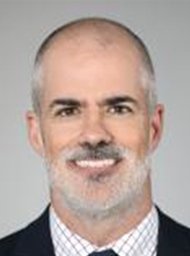
Acting Deputy Director
National Institute of Dental and Craniofacial Research
Dr. D. Jonathan Horsford is acting Deputy Director of the National Institute of Dental and Craniofacial Research, a part of the National Institutes of Health. With more than 13 years of experience at NIDCR, Dr. Horsford brings a unique combination of knowledge, strategic thinking, and experience within the NIH scientific enterprise and in forging strong stakeholder relationships. As acting Deputy Director, Dr. Horsford provides leadership and direction to the Institute, as he works collaboratively across NIH, throughout the federal government, and with other key stakeholders and organizations to advance NIDCR’s mission and objectives.
Dr. Horsford was previously acting and permanent Director of NIDCR’s Office of Science Policy and Analysis (OSPA). As head of OSPA, Dr. Horsford led NIDCR activities related to science policy, scientific strategic planning, legislative affairs, analyses, and outreach, and he oversaw the Institute’s dental, oral, and craniofacial epidemiology research group and Dental Public Health Residency program.
Dr. Horsford first came to NIH in 2005, after receiving his Ph.D. in developmental neurogenetics from the University of Toronto. His first position was as a program director and analyst of the Neurogenetics Cluster at the National Institute of Neurological Disorders and Stroke. He then moved to NIDCR in late 2006 as a scientific review officer and proceeded to take on increasing challenges, serving next as acting Chief of the Scientific Review Branch, then as a health science policy analyst, and then as acting and permanent Director of OSPA.
Kelly Ten Hagen, Ph.D.

Senior Investigator
National Institute of Dental and Craniofacial Research
Dr. Ten Hagen is a Senior Investigator and Chief of the Developmental Glycobiology Section within the National Institute of Dental and Craniofacial Research (NIDCR). She received a B.S. from Cornell University (magna cum laude) and earned a Ph.D. in Genetics at Stanford University.
Dr. Ten Hagen’s laboratory studies the factors that regulate a highly-conserved protein modification (O-glycosylation). Aberrations in this modification are known to be associated with the development and progression of certain diseases (cancer, chronic kidney disease, familial tumoral calcinosis). Therefore, understanding the roles of this modification in normal organ development and function will provide insight into how loss or disruption of O-glycosylation contributes to disease and disease susceptibility. Her laboratory has characterized the gene family responsible for initiating this modification in the model organism Drosophila, as well as elucidated roles for this modification in mammalian salivary gland development, kidney function and stability of the oral microbiome.
Beyond her laboratory, Dr. Ten Hagen is an elected Fellow of the American Association for the Advancement of Science (AAAS), and serves on the Board of Directors for the Society for Glycobiology and as a Council Member for the American Society for Biochemistry and Molecular Biology (ASBMB). She is a founding member of the Women in Biochemistry and Molecular Biology Committee within the ASBMB. At the NIH, she serves on the NIH Central Tenure Committee, the NIDCR Committee on Diversity and Inclusion, the NIH Anti-Harassment Steering Committee and as the Chair of the NIH Women Scientists Advisors Committee. Her focus in these activities is to address harassment in the workplace, and to promote the recruitment and retention of women and underrepresented groups in science.
Christopher Koh, M.D., M.H.Sc.
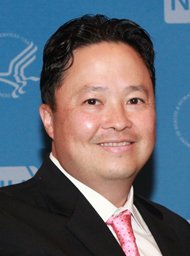
Deputy Clinical Director
National Institute of Diabetes and Digestive and Kidney Diseases
Dr. Koh is the Deputy Clinical Director for the Division of Intramural Research in the National Institute of Diabetes & Digestive & Kidney Diseases (NIDDK). He also serves as the Director of the Gastroenterology and Hepatology fellowship programs in the NIDDK. His research is focused on studying novel therapeutics in viral hepatitis, clinical biomarkers of liver disease, liver disease in rare populations, and drug-induced liver injury.
Dr. Koh earned his M.D. from Saba University School of Medicine and his M.H.Sc. degree from Duke University School of Medicine. After completing his internal medicine training in Baltimore, MD he completed a clinical hepatology fellowship with the NIDDK and then a gastroenterology fellowship at the University of Maryland. He then joined the Liver Diseases Branch of the NIDDK in 2013 and was promoted to Deputy Clinical Director in 2019. Dr. Koh is a fellow of the American College of Physicians (ACP) and the American Association for the Study of Liver Diseases (AASLD). He has published more than 100 peer-reviewed journal articles and book chapters and serves as an editorial board member for Gastroenterology and Clinical Gastroenterology & Hepatology journals.
Helene Langevin, M.D.
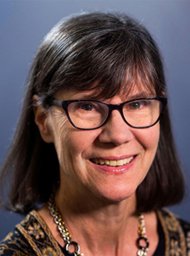
Director
National Center for Complementary and Integrative Health
Dr. Langevin grew up in a French-speaking family in Montreal, Canada, that includes a lot of doctors (father, grand-father, cousin, niece, and now daughter-in-law). She attended McGill University medical school at a time when there were very few women (less than 20%) and French Canadians (less than 10%).
After medical school, she went back and forth between research and clinical training: First with a post-doctoral research fellowship at the MRC Neurochemical Pharmacology Unit in Cambridge, England, then internship and residency in internal medicine at Johns Hopkins Hospital, followed by a research fellowship in Endocrinology, also at Johns Hopkins. Dr. Langevin practiced medicine for six years in Ossining, NY, and very much enjoyed patient care. But research eventually won. She was feeling frustrated with the inability to successfully help many patients with chronic pain. After taking an evening class in acupuncture, she became curious about the possibility that this ancient practice could reveal basic aspects of physiology that we did not yet understand. She moved to Burlington, VT with her husband and two young children, joined the faculty at the University of Vermont and was awarded one of the first research grants from the National Center for Complementary and Alternative Medicine, which is now NCCIH. Dr. Langevin spent the next 20 years at UVM exploring the role of connective tissue in chronic pain and the mechanisms of acupuncture, manual and movement-based therapies.
In 2012, she became the Director of the Osher Center for Integrative Medicine at Harvard Medical School. Her lab at Brigham and Women’s Hospital continued research on connective tissue, focusing on the effects of stretching on inflammation resolution. Her work on connective tissue highlights some of the connections between organ systems that aren’t often seen in medicine because of its organ-by-organ specialization. As Osher Center Director, she promoted an expanded definition of integrative medicine to include whole-person health: Helping patients improve their health in multiple interconnected domains. She has continued promoting this vision of whole-person health as NCCIH Director since she began in 2018. Her lab at NIDCR continues to work on connective tissue, and the effects of mechanical forces on tumor stroma and cancer growth.
As a relatively new NCCIH Director, Dr. Langevin has enjoyed the challenge of leading a complex organization, building relationships with other NIH Institutes and Centers, and developing our new Strategic Plan. She looks forward to the opportunity offered in the Executive Leadership Program to broaden skills and improve effectiveness as a leader.
Gayle Lester, Ph.D.
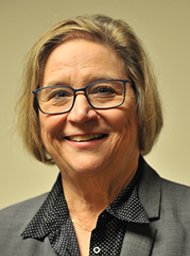
Director of Extramural Research
National Institute of Arthritis and Musculoskeletal Skin Diseases
The National Institute of Arthritis and Musculoskeletal and Skin Diseases (NIAMS) appointed Gayle Lester, Ph.D., as the director of the Division of Extramural Research. Lester had held the position in an acting role since the reorganization of the Institute's extramural program in April 2018. She assumed the director position March 1, 2020 and will continue to oversee both DER and the Office of Extramural Operations (OEO).
Lester joined the NIAMS in January 2001. Prior to her arrival at the NIH, she was a professor in the Department of Orthopaedics at the University of North Carolina at Chapel Hill. Her research interests included ligament healing, hormonal control of bone metabolism, measurement and regulation of bone mineral density, biochemical markers of bone turnover and articular cartilage biochemistry.
In addition to her programmatic management of grants at the NIAMS, she continues to serve as the project officer for the Osteoarthritis Initiative, a group of contracts with the Institute that support a longitudinal cohort study focused on knee osteoarthritis and the discovery of biomarkers funded through a public-private partnership.
She received the NIH Director’s Awards in 2001, 2007, 2012, 2014 and 2018 for her work related to the Osteoarthritis Initiative, diagnostic imaging and biomarker development. She led NIAMS efforts focused on bone quality and biomarkers for osteoporosis and osteoarthritis and continues to serve as project director for the Foundation for the NIH Biomarker Consortium Bone Quality Project, an industry-supported initiative focused on discovery of better surrogates for bone fracture.
Lester received a doctorate in endocrine pharmacology from the Medical College of Virginia. Following a post-doctoral fellowship at UNC, she joined the faculty. Lester received a Kappa Delta Award for Excellence in Orthopaedic Research in March 2000 for her work with Laurence Dahners, M.D., on ligament growth and development, and has more than 60 peer-reviewed publications.
Daniel (Dan) Lonnerdal, M.S., FACHE

*No longer with NIH
Daniel Lonnerdal serves as the NIH Clinical Center's Executive Officer. As the Executive Officer, he oversees the Office of Administrative Management, the Materials Management and Environmental Services Department, Biomedical Engineering, Nutrition Department, Office of Workforce Management and Development, Social Work Department, Spiritual Care Department, Patient Support Services Department, Hospital Engineering and Facility Services, Office of Hospitality and Volunteer Services, Edmond J. Safra Family Lodge, NIH patient Library, Messenger and Escort Service, Emergency Management, and serves as the Clinical Center liaison for employee/labor relations and EEO issues. Prior to this he served as the NIH Clinical Center’s Chief of the Office of Administrative Management and the Office of Workforce Management and Development.
Prior to his role in the NIH Clinical Center, Lonnerdal served as a Chief Information Officer in the NIH Office of Research Services and Office of Research Facilities. He also worked at other federal agencies, including the United States Department of Energy and the United States Department of Transportation. He has a background in Cyber Security and Information Technology management, often serving as a Senior Technical Advisor.
Lonnerdal graduated from Bucknell University with a Bachelor of Arts degree in International Relations, and from the George Washington University with a Master of Science in Information Systems Technology. He is also board certified in healthcare management as an American College of Healthcare Executive Fellow (FACHE).
Jonah Odim, M.D., Ph.D., FRCS(C), FACS

Director
Section Chief, Clinical Transplantation
National Institute of Allergy and Infectious Diseases
Jonah Odim is Chief, Clinical Transplantation with the Transplantation Branch (TB) of the National Institute of Allergy and Infectious Diseases (NIAID). Dr. Odim completed his undergraduate education (BA) at Amherst, obtained an MD at Yale, a Ph.D. in Experimental Surgery at McGill University and an MBA from the University of California. He did his residency in general surgery at University of Chicago, cardiac, thoracic and vascular surgery fellowships at McGill University in Montreal, Canada, and a pediatric and congenital heart surgery fellowship at Boston Children’s Hospital serving there as Instructor in Surgery, Harvard Medical School. He was an Associate Professor of Surgery at David Geffen School of Medicine at UCLA and was voted by the UCLA School of Medicine and the Medical Center Nursing Department – the Most Outstanding Physician at UCLA Medical Center (2001). At UCLA, he also served as Director of UCLA Heart and Lung Procurement and Preservation and Surgical Director of the Adult and Pediatric Cardiac intensive care unit before joining NIH. During his tenure at UCLA, the program rose, by volume, to the largest thoracic organ transplant program in the country. He is a senior editorial board consultant for Journal of Heart and Lung Transplantation.
At NIH, Jonah’s team received the NIH Director’s Award (2016) for exemplary leadership in developing criteria, standards, and regulations to allow transplantation of HIV+ donor organs in HIV-infected patients with end-stage organ disease (HOPE Act Criteria, Standards, and Regulations Group). He serves on the Advisory Committee on Organ Transplantation (ACOT) for the Secretary of HHS, the Scientific Registry of Transplant Recipients (SRTR) Technical Advisory Visiting Committee, the Public Health Service (PHS) Blood Organ and Tissue Safety (BOTS) HHS-wide interagency committee, and the Kidney Care and COVID-19 Working Groups (HHS) to advance kidney health in America. Dr. Odim is the medical administrator of the NIAID-DAIT-DSMB for all clinical trials in organ transplantation and has begun a 3-year term as the Regional 2 representative of the Organ Procurement and Transplantation Network (OPTN) Heart Transplantation Committee.
After 10 years of early life in Africa, Jonah returned to the US after evacuation from war-torn Nigeria during the Nigeria-Biafran civil war as a young adolescent. He maintains strong relations and nurturing ties with his extended family and the healthcare systems in West Africa.
Heather Rieff, Ph.D.
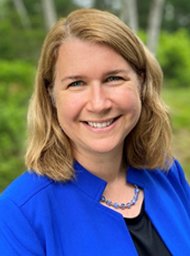
Director, Office of Scientific Program and Analysis
National Institute of Diabetes and Digestive and Kidney Diseases
Dr. Heather Rieff is the Director of the Office of Scientific Program and Policy Analysis at the National Institute of Diabetes and Digestive and Kidney Diseases (NIDDK). In this role, she directs the institute’s science policy and legislative activities and serves as the primary advisor to the NIDDK Director and senior staff in these areas. Her office is responsible for the coordination, analysis, and writing of a wide variety of scientific program reports, briefing materials, and other documents associated with NIDDK’s research programs, including the Type 1 Diabetes Special Statutory Funding Program. These documents present the scientific accomplishments and plans of NIDDK to a variety of audiences, including Congress, the scientific community, voluntary health organizations, and other lay audiences.
Prior to moving to NIDDK, Dr. Rieff served as a senior analyst in the National Institute of Neurological Disorders and Stroke’s (NINDS) Office of Science Policy and Planning. She led NINDS’s legislative analysis and reporting activities in a number of high-profile areas including traumatic brain injury, research on chronic pain and the related opioid crisis, and the NIH BRAIN initiative. In addition, she represented NINDS on several trans-NIH committees and served as executive secretary of the interagency Muscular Dystrophy Coordinating Committee.
Dr. Rieff previously worked in research advocacy at the Federation of American Societies for Experimental Biology. A neuroscientist by training, Dr. Rieff received her Ph.D. in neurobiology from Harvard University and was a post-doctoral fellow and instructor at the University of Virginia. She credits her passion for scientific research to her professors and mentors during her time as an undergraduate at Williams College.
Marcel Salive, MD, MPH

Physician (Research)
National Institute on Aging
Marcel Salive is a medical officer in the Division of Geriatrics and Clinical Gerontology at the National Institute on Aging (NIA) at NIH. He developed and oversees an innovative research program on multiple chronic conditions in older adults including national consortia, pragmatic clinical trials, and clinical research projects. He has developed NIA’s program to conduct research into improving the effectiveness of treatment strategies for the comorbid conditions that occur frequently in combination with Alzheimer’s disease. He is a member of the NIH Common Fund-supported Health Care Systems Research Collaboratory and the program officer for several of its trials. He is a member of the Medicare Evidence Development and Coverage Advisory Committee, evaluating the impact of medical services on health outcomes of Medicare beneficiaries.
At NIA, Dr. Salive oversees a portfolio of pragmatic clinical trials, networks focused on multiple chronic conditions and de-prescribing, and grants examining drug safety, wound healing, incontinence, and clinical decision-making for older adults. His research interests include prevention and treatment of chronic diseases in older adults, promoting healthy behaviors, epidemiology and health services research.
Dr. Salive earned chemistry and medical degrees from the University of Michigan and completed his preventive medicine residency and a master’s in public health at Johns Hopkins University. Dr. Salive has senior-level experience in multiple health agencies including the NIH, Centers for Medicare and Medicaid Services (CMS), and the Food and Drug Administration (FDA) and has made major regulatory and reimbursement contributions to public health. Prior to rejoining NIA, he was Director of the Division of Medical and Surgical Services at CMS, one of two clinical divisions within CMS responsible for Medicare coverage of therapy, medicine, surgery, anesthesia, radiology and preventive services, which comprise more than 40% of Medicare spending.
Anton Simeonov, Ph.D.
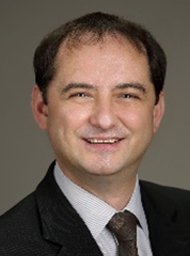
Scientific Director
National Center for Advancing Translational Sciences
Anton Simeonov is the scientific director of the intramural Division of Preclinical Innovation at the National Center for Advancing Translational Sciences (NCATS), National Institutes of Health (NIH). The author or inventor of more than 200 peer-reviewed scientific publications and patents, Simeonov has a truly diverse background, ranging from bioorganic chemistry and molecular biology to clinical diagnostic research and development. He received a Ph.D. in bioorganic chemistry from the University of Southern California and a B.A. in chemistry from Concordia College. Simeonov then trained as a postdoctoral fellow at the Scripps Research Institute under Richard Lerner and Kim Janda. Prior to joining NIH in November 2004, Simeonov was a senior scientist at Caliper Life Sciences, a leading developer of microfluidic technologies, where he was responsible for basic research on novel assay methodologies and development of microfluidic products for research and clinical diagnostics.
Darren Sledjeski, Ph.D.
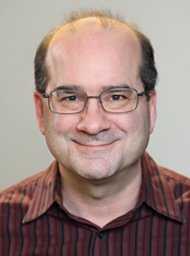
Deputy Director, Division of Extramural Activities
National Institute of General Medical Sciences
Darren Sledjeski, Ph.D., is Deputy Director of the Division of Extramural Activities. He assists the Director in overseeing the grant-related activities of the Institute, including grants policies and procedures; the development of funding opportunities; and the receipt, referral, review, and fiscal management of grants. Additionally, Dr. Sledjeski advises senior staff on the planning, development, and administration of Institute grant activities.
He was formerly the chief of the Genetic Mechanisms Branch in the Division of Genetics and Molecular, Cellular, and Developmental Biology at NIGMS, and scientific initiatives manager in the National Institute of Allergy and Infectious Diseases' Office of Initiative Development. Prior to that, Dr. Sledjeski was a scientific review officer in the Institute’s Office of Scientific Review.
Dr. Sledjeski came to NIH from the University of Toledo Medical Center, where he was first an assistant and later an associate professor in the department of microbiology and immunology. He earned a B.S. in biology from the College of William and Mary and a Ph.D. in microbiology from the University of Maryland, College Park. Dr. Sledjeski conducted postdoctoral research at NCI.
Debara (Deb) Tucci, MD, MS, MBA
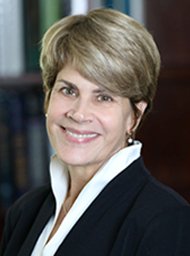
Director
National Institute on Deafness and Other Communication Disorders
Dr. Tucci is Director of the National Institute on Deafness and Other Communication Disorders at the National Institutes of Health, a position she has held since September 2019. Prior to coming to NIH, Dr. Tucci was on faculty at Duke University, in the Department of Head and Neck Surgery & Communication Sciences, for 26 years. During that time, Dr. Tucci was a practicing surgeon-scientist, with a clinical and surgical practice in Otology, Neurotology and Skull Base Surgery. She was the founding co-chair of the Duke Hearing Center, which integrated auditory research and clinical otology practice on the Duke campuses. In her NIH-funded work, she studied the effect of conductive hearing loss on central auditory system function in an animal model. She contributed to the development of a national practice-based research network at the Duke Clinical Research Institute, and performed research to enhance clinical care for otologic patients. Dr. Tucci led a research team that implemented and studied outcomes and cost-benefit of adult hearing screening in primary care clinics at Duke. In her work as Director of the Cochlear Implant program, she did research and led development of a team devoted to care of patients with severe to profound hearing loss. Current work as co-chair of the Lancet Commission on Global Hearing Loss allows her to pursue her passion for understanding and impacting hearing loss disability worldwide.
2018 ExLP Participants
Kimberly Allen, M.A.
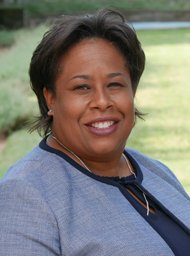
Executive Officer
National Institute on Minority Health and Health Disparities
Ms. Kimberly Allen, M.A., currently serves as the Executive Officer at the National Institute on Minority Health and Health Disparities (NIMHD). In this position, she oversees all management services and operations as well as administrative support to the Institute, including, but not limited to financial management, human resource management, employee and labor relations, policy development, information technology, and acquisitions. She began her career at the National Institutes of Health (NIH) in 1999 as an Administrative Technician (Personnel) for the National Cancer Institute (NCI). Following her time at NCI, Kimberly also served as a Personnel Assistant at the National Institute of Allergy and Infectious Diseases. In 2001, she returned to NCI to serve as an Administrative Assistant.
From May 2003 to October 2005, Kimberly served in various contract positions for NIH at the National Center for Biotechnology Information and the Office of Biotechnology Activities. In 2005, Kimberly resumed her Federal career at the National Institute of General Medical Sciences (NIGMS). During her tenure at NIGMS she served as a Management Analyst, Deputy Executive Officer, Deputy Ethics Counselor, and Acting Executive Officer. In 2015, Kimberly joined NIMHD to become its first Deputy Executive Officer.
Ms. Allen received her Bachelor and Master of Arts degrees from the University of Maryland Baltimore County. Kimberly is a graduate of the NIH Senior Leadership Program and is a Senior Fellow for the Partnership for Public Service Excellence in Government Fellows Program. She has served on several trans-NIH workgroups and committees, including the Management Analysis Working Group, the Management Analysis Steering Committee, the Emergency Coordinators Working Group, as well as the Administrative Training Committee.
Kimberly is passionate about education, quality of work life initiatives, and giving back to the community. She has mentored countless Federal employees and served as a workforce development and business etiquette presenter on numerous panels in her local community and at the NIH. Kimberly is a dedicated professional who is committed to the principles of public service. She welcomes opportunities to share her knowledge with NIH staff and other stakeholders.
Kimberly lives in Olney, Maryland, enjoys community service, singing, going to the opera, traveling, especially to the beach, taking long nature walks, and crocheting.
Joanna Bare
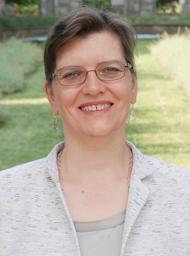
Director, Business Transformation
National Heart, Lung, and Blood Institute
Joanna Derksen Bare is the Director of Business Transformation at the National Heart, Lung, and Blood Institute. There, she leads transformative programs that have centralized and streamlined a variety of administrative functions, developed major new training programs for staff, and provided the entire extramural community with new, modern, highly-flexible work space.
Prior to her work at NHLBI, she was the Executive Officer of the Center for Scientific Review (CSR). There, she provided management and administrative oversight for the organization that provides scientific review of more than 75% of NIH’s grant applications. Joanna was also deputy director and, earlier, chief of the Project Control Office within the NH Office of Research Facilities (ORF), Division of Facilities Operations and Maintenance (DFOM). The Office of Research Facilities is responsible for the full life cycle of every facility that houses NIH staff, patients, animals, and research. In her earlier work in the private sector, Joanna worked at Management Analysis, Inc., in Vienna, Va., where over the course of 12 years, she rose from industrial engineer, to project manager and corporate secretary.
Joanna is a native of Wisconsin and attended Carleton College (Northfield, MN), where she obtained a Bachelor’s degree in physics. She also holds Master’s Degrees in physics and industrial engineering from the University of Washington. Joanna has a wonderful husband, three nifty stepsons, a lively daughter, and an orange tabby cat. Outside of work, she enjoys playing the piano (badly), reading and writing, trying to learn to do a pullup, and going for walks.
Brian Berridge, DVM, PhD, DACVP
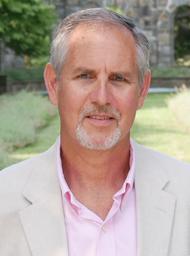
Associate Director
National Toxicology Program
Scientific Director
Division of the National Toxicology Program
National Institute of Environmental Health Sciences
Brian Berridge joined the NIH in January of 2018 as the Associate Director of the National Toxicology Program (NTP) and the Scientific Director of the NTP Division at the National Institute of Environmental Health Sciences in Research Triangle Park (RTP), NC. The National Toxicology Program is a 40-year inter-agency partnership between the NIH, FDA and CDC that evaluates agents of public health concern by developing and applying innovative scientific methods and tools. Brian is responsible for the day-to-day management and scientific leadership of the NTP.
Previous to NIEHS, Brian spent 17 years in the pharmaceutical industry in varying roles as a toxicologic pathologist at Eli Lilly in Indianapolis, Indiana, and GlaxoSmithKline in RTP, NC. His most recent 5 years at GlaxoSmithKline was as Head of Animal Research Strategy in RTP, King of Prussia, PA, and Stevenage, England. Previous to those roles, Brian was a Clinical Assistant Professor in the College of Veterinary Medicine at Texas A&M University in College Station, TX.
Brian is an Oklahoma State University-trained veterinarian with residency and PhD training from Texas A&M University. He is a Diplomate of the American College of Veterinary Pathologists with post-doctoral training in comparative cardiovascular pathology from the Texas Heart Institute in Houston, TX. His areas of interest and expertise include toxicologic and comparative pathology with particular interest in cardiovascular and renal pathology. He is a veteran of the U.S. Air Force where he was a non-commissioned officer trained as a histopathology and electron microscopy technologist. Brian is currently active in various consortium efforts aimed at advancing innovative approaches to modeling human pathobiology that improve the translation of preclinical research to clinical outcomes and decrease our dependence on the use of animals.
Susan Buchanan, Ph.D.
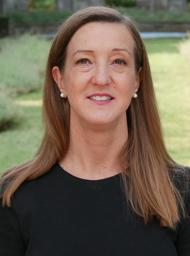
Senior Investigator, Lab Chief
National Institute of Diabetes and Digestive and Kidney Diseases
Dr. Buchanan is Chief of the Section on Structural Biology of Membrane Proteins in the National Institute for Diabetes & Digestive & Kidney Diseases, at the National Institutes of Health. She received her Ph.D. from the Johann-Wolfgang-Goethe Universität in Frankfurt, Germany in 1990. She completed postdoctoral fellowships at the MRC Laboratory of Molecular Biology, Cambridge, UK, and at UT Southwestern Medical Center, Dallas, before returning to the UK to establish a research group at Birkbeck College, London in 1998. She joined the NIDDK as a tenure track investigator in 2001, was tenured in 2008, and was promoted to Chief of the Laboratory of Molecular Biology, NIDDK, in 2014.
The focus of research in the Buchanan lab is the structure determination of integral membrane proteins by X-ray crystallography and functional analysis of these proteins using biophysical, biochemical, and cell biological techniques. They study transporters embedded in the outer membranes of Gram-negative bacteria, which are surface accessible and therefore have the potential to be good vaccine and/or chemotherapeutic targets against infectious diseases. They also study the membrane associated or soluble protein partners that interact with outer membrane transporters to better understand how these systems function in vivo. Current topics in the lab include [1] small molecule and protein import across the bacterial outer membrane, [2] outer membrane protein biogenesis, and [3] protein import across mitochondrial outer membranes.
Robert Colbert, M.D., Ph.D.
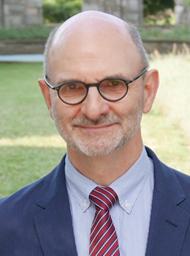
Acting Clinical Director and Chief Pediatric Translational Research Branch
National Institute of Arthritis and Musculoskeletal and Skin Diseases
Dr. Colbert is Acting Clinical Director of the National Institute of Arthritis and Musculoskeletal and Skin Diseases (NIAMS). He also serves as Chief of the Pediatric Translational Research Branch and the Pediatric Clinical Trials Unit in NIAMS. His research is focused on understanding the role of predisposing genetic and environmental factors in the pathogenesis of spondyloarthritis (e.g. ankylosing spondylitis) and translating these discoveries into better treatments.
Dr. Colbert earned his M.D. and Ph.D. degrees from the University of Rochester School of Medicine, where he also trained in pediatrics. After completing a rheumatology fellowship at Duke University and the University of North Carolina in Chapel Hill, he joined the faculty at Cincinnati Children’s Hospital Medical Center (CCHMC) and the University of Cincinnati. He rose to Professor of Pediatrics and directed the Division of Rheumatology at CCHMC from 2006 until he joined the NIH and NIAMS in 2008 as a Senior Investigator. Dr. Colbert is an Associate Editor for Arthritis and Rheumatology and serves as Deputy Medical Editor for pediatric rheumatology at the American Board of Pediatrics.
Mary Dasso, Ph.D.
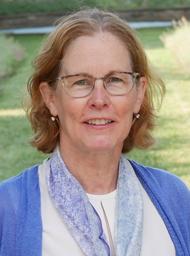
Associate Scientific Director
Division of Intramural Research
Eunice Kennedy Shriver National Institute of Child Health and Human Development (NICHD)
Senior Investigator
Division of Molecular and Cellular Biology
National Institute of Child Health and Human Development
Dr. Dasso received her Ph.D. from the University of Cambridge, England and completed her postdoctoral training at the University of California, San Diego.
Dr. Dasso’s research interests concern how cells organize genetic information and pass this information to daughter cells during the process of cell division. Within human cells, the genetic information encoded within the chromosomes is sequestered to the cell nucleus, so that its expression is controlled by communication between the nucleus and the cytoplasm, where other cellular components reside. This communication occurs through conduits called nuclear pores. Dr. Dasso’s recent studies focus on the roles of nuclear pores in chromosome organization and gene expression. These studies also concern the essential role of nuclear pore proteins during mitosis, when the separation of the nucleus and cytoplasm breaks down and chromosomes are segregated as the cell divides into two daughter cells. Importantly, mutations in components of the nuclear pore have been implicated in a number of diseases, including nephrotic syndromes and neurodegenerative diseases, so Dr. Dasso’s work ultimately aims to address how these diseases arise from nuclear pore disfunction.
Beyond the studies within her group, Dr. Dasso is the Associate Scientific Director (ASD) for budget and Administration within the NICHD Division of Intramural Research (DIR). Her focus as an ASD is to increase the transparency and efficiency of scientific administration within the DIR, in order to advance the scientific mission of the NICHD.
Kendrick T. Gibbs
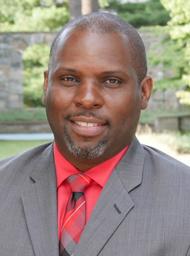
*No longer with NIH
Kendrick is the Director of the Guidance, Education, and Marketing Division. In this role, he is responsible for providing managers and employees the tools necessary to guide them through the complexities of EEO. He is also responsible for ensuring the mandatory EEO training requirements are met for the NIH as well as the Agency for Healthcare Research and Quality (AHRQ). He works diligently to ensure the communication of the EDI mission and vision is conveyed to all NIH and AHRQ employees.
Mr. Gibbs began his government career with HHS in 1999 as a secretary with the Food and Drug Administration (FDA). While at the FDA, Kendrick also served as an administrative officer, an employee resource specialist, an information technology specialist, an investigations program manager, and an equal employment specialist. Mr. Gibbs also served as the Director of Equal Employment Opportunities (EEO) for the Department of Health and Human Services (HHS), Office of the Secretary and was responsible for developing, implementing, evaluating, and directing a comprehensive program in accordance with Title VII of the Civil Rights Act of 1964, as amended, 29 CFR 1614, and other applicable laws, regulations, policies, Executive Orders, and White House initiatives related to EEO. He has also served as the Director of the HHS, Office of Human Resources (OHR), Rockville Field Office.
Prior to joining the NIH in 2012, Mr. Gibbs was the Director of the HHS, OHR, Diversity Opportunities, Outreach, and Recruitment Division where he ensured enhancements to the HHS compositional diversity profile and inclusion of all populations within the workforce. He helped to develop, direct, and evaluate an enterprise-wide effort that achieved the goals for diversity identified in the Departmental Strategic Plan and Departmental Diversity and Inclusion Plan. Mr. Gibbs also provided policy guidance, program direction, and staff leadership in the area of workforce analysis, barrier analysis, outreach, retention, and training for HHS. A strong advocate for employee development and mentoring, Mr. Gibbs continues to coach and mentor employees as well as youth through his affiliation with Kappa Alpha Psi Fraternity, Inc. in his spare time.
Originally from Hyattsville, Maryland, he received his Bachelor of Science Degree in Business Operations from South Carolina State University with a dual concentration in Marketing and Management.
Flora Katz, Ph.D.
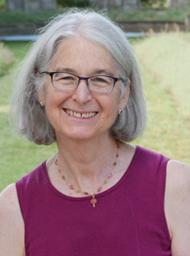
Director
Division of International Training and Research
Fogarty International Center
Dr. Flora Katz is Director of the Division of International Training and Research at the Fogarty International Center, NIH. Trained in Cell and Molecular Biology (Ph.D., M.I.T.), Neurobiology (Postdoc, Columbia University), and Genetics (Postdoc, UCSF), she directed a research laboratory for fifteen years in developmental biology and neurogenetics at U.T. Southwestern Medical Center, Dallas and Texas A&M University. Interdigitated with her academic career, she has conducted research on wildlife conservation and biology (birds, elephants, and orangutans) in Malawi, Zambia, Israel, and Indonesia through fellowships from the Thomas J. Watson Foundation and the Henry Luce Foundation. She joined Fogarty in 2001, originally as a AAAS Science and Diplomacy Fellow, and served sequentially as a Program Officer, Deputy Division Director, Acting Division Director, and Division Director and FIC Director of Extramural Activities. Her portfolio has included a spectrum of programs in innovation, natural products drug discovery linked to biodiversity conservation, genetics, and informatics that emphasize a broadly multidisciplinary/interdisciplinary model of research and research training with the goal of building research capacity in low and middle income countries. She maintains a broad interest in biological issues, from cellular mechanisms to international cooperation in conservation and global health. She lives with her biologist husband and two cats in Takoma Park, MD.
Melinda Kelley, Ph.D.

Director
Office of Legislation, Policy, and International Activities
National Institute on Aging
Dr. Melinda Kelley is the Director of the Office of Legislation, Policy, and International Activities at the National Institute on Aging (NIA). In addition to providing policy advice to and managing special projects for NIA’s leadership, she serves as the NIA legislative point of contact for Congressional members and staff interested in Alzheimer’s disease and other aging-related public health policy issues. Dr. Kelley is also responsible for enhancing the institute’s outreach to both national and international non-governmental organizations that have an interest in the NIA mission. Lastly, she is the primary staff liaison to the Advisory Council on Alzheimer’s Research, Care, and Services – which manages the implementation of the National Alzheimer’s Project Act across the Department of Health and Human Services.
Prior to moving to the NIA, Dr. Kelley served for five years as an analyst at the National Heart, Lung, and Blood Institute. Her leadership contributions to We Can! (Ways to Enhance Children’s Activity & Nutrition)® – a national education program designed to disseminate NIH-funded science on the prevention of childhood obesity to diverse communities, health professionals, and families nationwide – led to significantly expanded outreach, and the development of multiple high-profile partnerships, such as with the former First Lady’s Let’s Move! initiative. Previously, Dr. Kelley served for eight years as a science advisor at the National Institute of Neurological Disorders and Stroke. In that position, her responsibilities included scientific planning and evaluation, analysis of policy issues, and Congressional liaison functions.
Dr. Kelley received her Ph.D. in Neuroscience from the University of Virginia, and she completed her postdoctoral fellowship training at the University of Washington and Georgetown University.
Ziya Kirkali, M.D.
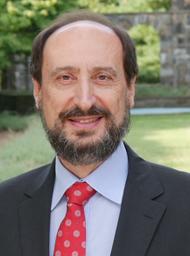
Senior Scientific Officer
National Institute of Diabetes and Digestive and Kidney Diseases
Dr. Ziya Kirkali works as a Senior Scientific Advisor in the Division of Kidney Urology and Hematology of the National Institute of Diabetes and Digestive and Kidney Diseases since 2010. In this capacity, he oversees and manages mainly the clinical and translational urology programs. Currently, he is the project scientist for the Symptoms of Lower Urinary Tract Dysfunction Research Network (LURN) and Urinary Stone Disease Research Network (USDRN). Other than his involvement in multiple networks and consortia at NIDDK, he also serves in multiple trans NIH and interagency committees representing urology and NIDDK.
Before joining NIH, Dr. Kirkali was a practicing urologist and Professor of Urology in Izmir, Turkey where he was the Chairman of Department of Urology and Vice Dean of the Medical School. Prior to that he worked in Glasgow and University of Cambridge in UK.
Dr. Kirkali is an internationally recognized urologic oncologist and held many positions at international scientific organizations, including the Chairmanship of the European Organization for Research and Treatment of Cancer (EORTC) Genitourinary Group.
Sarah Lisanby, M.D.
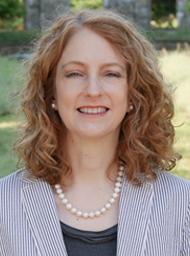
Director
Division of Translational Research
National Institute on Mental Health
Dr. Lisanby is an internationally recognized expert in the rational design of neuromodulation technologies. Her work is translational, spanning nonhuman primates, healthy humans, and clinical populations. JP Gibbons Endowed Professor with Tenure and former Department Chair of the Duke Department of Psychiatry, she founded and directed the Duke Brain Stimulation and Neurophysiology Division that encompasses interdisciplinary research labs spanning technology development, pre-clinical modeling, translational neuroscience, clinical trials, and clinical application. Prior to being recruited to Duke as Department Chair, Dr. Lisanby founded and directed the Columbia Division of Brain Stimulation, where she was Professor of Psychiatry. Dr. Lisanby has been principal investigator on a series of NIH and DARPA funded studies on the development of novel neuromodulation technologies, including studies on the rational design of magnetic and electrical seizure therapies. Her team pioneered magnetic seizure therapy (MST) as a novel depression treatment from the stages of animal testing, first in human, and now international clinical trials. She led series of studies involving transcranial magnetic stimulation (TMS), electroconvulsive therapy (ECT), MST, vagus nerve stimulation (VNS), deep brain stimulation (DBS) and other devices. Dr. Lisanby published a series of studies that established the paradigm of fMRI-guided TMS during working memory training to improve working memory performance in healthy volunteers, and to remediate working memory deficits following sleep deprivation. This paradigm has been extended to mitigate the effects of age-related decline in working memory.
In October 2015, she took a leave of absence from Duke to serve as Director of Translational Research at NIMH, where she now oversees a research funding portfolio of approximately $400 million and helps set a national agenda for research on mental illness. Dr. Lisanby co-led and presently serves on the NIH BRAIN Initiative Team on large-scale recording and modulation devices. In addition to these extramural activities, Dr. Lisanby founded and directs the Noninvasive Neuromodulation Unit (NNU) in the Experimental Therapeutics Branch in the NIMH Intramural Research Program, creating an important bridge between the Institute’s extramural and intramural research efforts. The NNU specializes in the use of noninvasive neuromodulation tools to measure and manipulate neuroplasticity to improve human brain health.
A prolific author with over 250 scientific publications, she has also received national and international recognition, including a Distinguished Investigator Award from the National Alliance for Research on Schizophrenia and Depression (NARSAD), the Max Hamilton Memorial Prize of the Collegium Internationale Neuro-Psychopharmacologicum (CINP), the Gerald Klerman Award from the National Depression and Manic Depression Association (NDMDA), and the Eva King Killam Research Award from the American College of Neuropsychopharmacology (ACNP). Dr. Lisanby’s prodigious research life has been matched by extensive service to NIMH and beyond. She has been a member of the NIMH Board of Scientific Counselors since 2013, and has chaired or been a member of a variety of NIH Study Sections since 2004. Dr. Lisanby served on the FDA Neurological Devices Advisory Panel, is on five editorial boards, and has held key leadership positions with numerous professional associations, including serving as President for the Association for Convulsive Therapy/International Society of Neurostimulation, and the International Society for Transcranial Stimulation, and Chair of the American Psychiatric Association Task Force to Revise the Practice on Electroconvulsive Therapy (ECT). Dr. Lisanby also has a strong record of mentoring, personally nurturing over 50 individuals in the past 10 years.
Dr. Lisanby received dual Bachelor of Science degrees in Mathematics and Psychology from Duke University, where she went on to receive an M.D. and complete a residency in Psychiatry, serving as Chief Resident. In 1995 Dr. Lisanby joined Columbia University for a postdoctoral fellowship and joined the faculty in 1998. She was named Director of the Division for Brain Stimulation and Neuromodulation at Columbia University/New York State Psychiatric Institute in 2005, and Professor of Clinical Psychiatry at Columbia University in 2007, before returning to her alma mater as Chair for the Department of Psychiatry at Duke University in 2010.
Susan E. Maier, Ph.D.
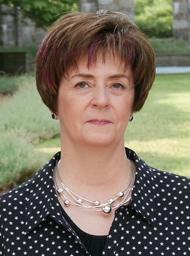
Senior Scientific Initiatives Manager
National Institute of Allergy and Infectious Diseases
Susan E. Maier, Ph.D. is a Senior Scientific Initiatives Manager in the Office of Initiative Development within the NIAID OD. In this capacity, she leads teams of stakeholders from NIAID scientific program, acquisitions, grants management, extramural policy, scientific review, and technology transfer in the development of solicited research initiatives to fulfill the institute’s research mission. At the NIAID, Susan was part of a team that developed an integrated, workflow-based, document management software system to support institute-wide initiative management from concept through award and closeout.
Prior to her current position, she was the Deputy Director in the Office of Research on Women’s Health within the NIH OD. In this position, she led the creation and implementation of unique co-funding programs to address research on the effects of sex and gender on health and disease. These programs provided a method to effortlessly implement a trans-NIH process for including women as participants in all facets of clinical research. During this time, she also chaired the Trans-NIH Myalgic Encephalomyelitis/Chronic Fatigue Syndrome (ME/CFS) Research Working Group and represented NIH on the HHS Chronic Fatigue Syndrome Advisory Committee. Previously, Susan served as a Project Scientist at NIAAA on two large international cooperative agreements studying the effects of prenatal alcohol on brain and cognitive development, and prenatal alcohol and smoking on neonatal development and stillbirth. Prior to her move to NIH, Susan was actively involved in leading preclinical research projects focused on the effects of developmental alcohol exposure on fetal and neonatal brain development using various animal model systems, and she taught clinical neuroanatomy to first year medical students, and experimental design and statistics for biomedical research to graduate students at the Texas A&M University Health Science Center.
She received her Ph.D. in Psychology from the University of Waterloo, Waterloo, Canada. Currently, Susan maintains an interest and connection with her research areas of expertise by serving as Associate Editor and Board Member for the journal, Reproductive Toxicology.
Ofelia A. Olivero, Ph.D.
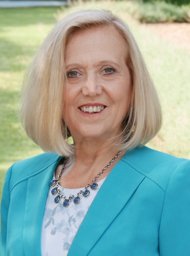
Chief
Intramural Diversity Workforce Branch
National Cancer Institute
*Retired
Dr. Ofelia A. Olivero obtained her PhD in cytogenetics in Argentina and subsequently joined the National Cancer Institute (NCI) where she has worked since 1987. Together with her colleagues, she showed for the first time that the nucleoside analog used in the earliest AIDS therapy was a transplacental carcinogen in mice. She pioneered the discovery of nucleoside analogs induced centrosomal amplification and aneuploidy working as a Senior Staff Scientist in the Laboratory of Cancer Biology and Genetics at NCI. She is the author and co-author of more than 75 scientific articles, book chapters and her book entitled, Interdisciplinary Mentoring in Science: Strategies for Success.
Her dedication to empower and inspire young females to choose scientific careers was recognized by the US State Department in her selection to be part of a delegation of female scientists to visit Brazil and Colombia to favor the participation of women in science. Dr. Olivero is the recipient of the Leading Diversity Award given by the NCI Director in appreciation of efforts furthering diversity and equal employment opportunity. She has received a Mentor award from AWIS in the year 2013 because of her commitment to mentoring young minority females a mentoring award from the National Cancer Institute in 2016 and was recognized as a “Game Changer” from the office of Equality Diversity and Inclusion from NIH.
As the current Chief of the Diversity Intramural Workforce Branch she is leading the efforts of NCI to increase diversity in the workforce. The IDWB coordinates efforts to attract, recruit, and foster a community of scientists from diverse backgrounds at NCI, supports trainees onboarding and mentoring and implements activities to create a lasting culture of inclusion.
Roland A. Owens, Ph.D.
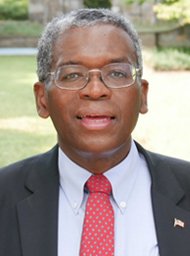
Director of Research Workforce Development
Office of Intramural Research
Office of the Director
Dr. Roland A. Owens is the Director of Research Workforce Development, in the NIH Office of Intramural Research (OIR), within the Office of the Director. He received his bachelor's degree in biology from the University of Maryland Baltimore County (UMBC), and his Ph.D. in biology from The Johns Hopkins University. He began his career at NIH as a National Research Service Award Fellow in the National Institute of Child Health and Human Development. In 1988 he received an Intramural Research Training Award in the National Institute of Diabetes and Digestive and Kidney Diseases (NIDDK). He became a principal investigator in NIDDK in 1992, and was tenured in 1998. His research focused on adeno-associated virus type-2 (AAV2). Roland is a co-inventor on two patents involving AAV2 gene therapy applications. He served on the editorial board of Journal of Virology from 1997 to 2002, and he was a member of the NIH Central Tenure Committee from 2000–2002. He is active in mentoring minority scientists, and in 2002 he was selected as Mentor of the Year by the UMBC Meyerhoff Scholarship Program.
Dr. Owens moved to OIR in 2008. His primary duty is to facilitate and enhance principal investigator (PI) recruitment and mentoring within the Intramural Research Program. He is also the principal OIR senior staff member responsible for promoting diversity and inclusion in the NIH biomedical research workforce. He also coordinates an annual course for new tenure-track PIs, titled “How to Succeed as a PI at the NIH – Leadership & Management Skills.” In 2010, Dr. Owens won an NIH Director’s Award for co-leading the trans-NIH Earl Stadtman tenure-track investigator search. In 2011, he won an NIH Merit Award “in recognition of the exemplary support to NIH Leadership’s establishing diversity programs.” In 2014, he received an Office of the Director Honor Award for his work on the NIH Language Access Plan Steering Committee.
Lili M. Portilla, MPA
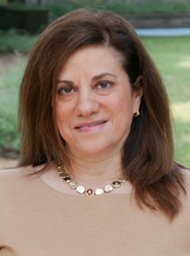
Director
Office of Strategic Alliances
National Center for Advancing Translational Sciences
Ms. Portilla has worked in the area of strategic alliances and technology transfer at the National Institutes of Health (NIH), since 1989. She has extensive expertise in negotiating and developing collaboration and commercialization strategies for complex, and multi-party alliances and public private partnerships. Since December of 2011, Ms. Portilla has been serving as the Director of the Office of Strategic Alliances at the National Center for Advancing Translational Sciences (NCATS) at the NIH. NCATS focuses on the transformation of the translational science process so that new treatments and cures for disease can be delivered to patients faster. She directs the Center’s partnership, strategic alliance, and technology transfer functions as well as the Program Director for the NCATS Small Business Innovation Research (SBIR) and Small Technology Transfer Research grant and contract program.
Prior to NCATS, Ms. Portilla served as the Senior Advisor to the Director of the National Center for Research Resources and was also the Director of the National, Heart, Lung and Blood Institute, Office of Technology Transfer and Development. Ms. Portilla has also published several papers on public private partnerships. She serves as an Ex-Oficio Board Member of the University of Kansas, Institute for Advancing Medical Innovation. She also serves as a member of the Federal Lab Task Force on the Maryland Governor’s Life Science Advisory Board. She holds a Master in Public Administration from American University and a Bachelor in Business Administration, double major in both finance and Spanish literature from Stephen F. Austin State University.
Bruce Reed, Ph.D.

Director
Division of Neuroscience, Development and Aging
Center for Scientific Review
Dr. Reed Directs the Division of Neuroscience, Development, and Aging at the Center for Scientific Review. The Division holds over 300 meetings a year to evaluate the scientific merit of nearly 12,000 applications for scientific grants. The science ranges from new neuroimaging, assay and monitoring technologies, to basic neural development and function at the level of molecules, cells, and tissues to investigations of integrated functional circuits and the neural basis of sensory, motor and cognitive function, as well as mechanistic and treatment studies of neurological and psychiatric disorders including neurodegenerative disease, stroke, schizophrenia, depression, addiction, and chronic pain.
Prior to coming to NIH in 2015, Dr. Reed was professor of neurology at the University of California, Davis, where he served as Associate Director of the UC Davis Alzheimer’s Disease Center. There he helped the Center a research program that uses longitudinal studies of demographically diverse adults to investigate the effects of mid and early life factors on late life cognition. His own research focused on vascular contributions to dementia and the potentially protective effects of cognitive reserve. Dr. Reed graduated from Carleton College, obtained a Ph.D. in clinical psychology from the State University of New York at Stony Brook, did his internship in medical psychology at Duke University, and a post-doc in neuropsychology at a consortium of Braintree Hospital, the Boston VA, and Tufts University.
Outside of NIH, Dr. Reed enjoys hiking with his wife, especially in Northern California or in her family’s village in Switzerland, also Nordic skiing and sailing boats.
Rodney W. Rivera Jr.
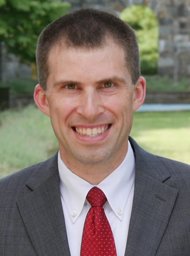
Executive Officer
National Institute of Child Health and Human Development
Rodney Rivera serves as the Acting Executive Officer for the Eunice Kennedy Shriver National Institute of Child Health and Human Development (NICHD). In his nearly ten years in the NICHD and NIH community, he has had a focus on optimizing business processes, change management, increasing the quality of decision making with data, and utilizing IT solutions to improve efficiency and transparency within the organization. Coupled with the desire to share his work, Rodney has created productive collaborations with other Institutes and Centers for various administrative functions as well as co-chaired an initiative for the NIH Administrative Strategic Plan to improve business workflow processes.
While at NICHD, Rodney has served in several roles including as the Deputy Executive Officer, Chief of the Administrative Services Branch, and prior to that, the Chief Technology Officer in the Information Resource Management Branch.
Formerly, Rodney worked at the Christina School District for six years as their Supervisor of Infrastructure Support. In this urban/suburban Pre-K - Adult school district of 20,000+ students and 3,000+ employees, he partnered with all levels of leadership, other state agencies, the public, and corporations to ensure the agency’s mission and goals were met.
Rodney’s educational background includes a Master of Science from the University of Delaware’s Alfred Learner College of Business and Economics and a Bachelor of Science in Education, also from the University of Delaware.
Rita Valentino, Ph.D.
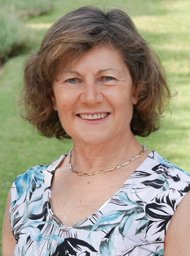
Director
Division of Neuroscience and Behavior
National Institute on Drug Abuse
Dr. Valentino is the Director of the Division of Neuroscience and Behavior at the National Institute on Drug Abuse (NIDA). She received her Ph.D. in Pharmacology from the University of Michigan and did postdoctoral fellowships at the University of North Carolina and The Salk Institute. Her career spans 30 years of academic, research, and leadership experience in neuropsychopharmacology, substance abuse, stress neurobiology and viscero-cognitive processing. She held faculty positions at George Washington University, Hahnemann University and was a Professor at the University of Pennsylvania School of Medicine prior to joining NIDA. Dr. Valentino is recognized for her research on the effects of stress and the impact of sex, age and coping style on behavioral and cognitive health, and how this can determine vulnerability to substance use. She is a Fellow of the American College of Neuropsychopharmacology and a member of the Scientific Advisory Board of the Brain Behavior Foundation. She is also the Editor-in-Chief of Neurobiology of Stress.
Wendy J. Weber, N.D., Ph.D., M.P.H.
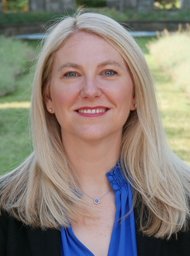
Acting Deputy Director and Chief Clinical Research in Complementary and Integrative Health Branch
National Center for Complementary and Integrative Health
Wendy J. Weber, N.D., Ph.D., M.P.H., is Acting Deputy Director at the National Center for Complementary and Integrative Health (NCCIH) at NIH. She also serves as Branch Chief for the Clinical Research in Complementary and Integrative Health Branch in the Division of Extramural Research at NCCIH. She joined NCCIH as a program director in 2009. The Clinical Research Branch is responsible for the oversight of all NCCIH-supported clinical trials. Dr. Weber is coordinator for NCCIH’s Clinical Trial Specific Funding Opportunity Announcements (FOAs) and point-of-contact for all natural product-related clinical trial FOAs. She is a member of the NIH Common Fund-supported Health Care Systems Research Collaboratory and the program officer for the Coordinating Center. Dr. Weber is also a member of the planning and oversight team for the NIH-DoD-VA Nonpharmacologic Approaches to Pain Management Collaboratory and project scientist for its Coordinating Center.
At NCCIH, Dr. Weber oversees a portfolio of pragmatic clinical trials, natural product clinical trials, studies of complementary medicine to promote healthy behavior, and complex complementary/integrative medicine intervention research. Dr. Weber’s interests include the use of complementary medicine interventions for common pediatric conditions, mental health conditions, promoting healthy behaviors, and health services research.
Dr. Weber earned a doctorate of philosophy in epidemiology and a master of public health from the University of Washington. She earned a doctorate of naturopathic medicine (N.D.) from Bastyr University. Prior to joining NCCIH, she was a research associate professor at Bastyr University, where her research included the study of herbal treatments for pediatric conditions. Her clinical practice focused on the treatment of children and adolescents with mental health conditions, abdominal pain, headaches, and allergies. She has published on treatment of pain with complementary health approaches, echinacea’s effect on colds in children, naturopathic treatment of children, and complementary medicine treatments for attention-deficit hyperactivity disorder.
Clinton Wright, M.D., M.S.

Director
Division of Clinical Research
Associate Director
National Institute of Neurological Disorders and Stroke
Dr. Wright is a vascular neurologist and neuroepidemiologist. He is Associate Director of NINDS and Director of the extramural Division of Clinical Research (extramural). Currently, he also serves as Acting Director of the intramural NINDS Stroke Branch. Prior to joining NINDS in 2016, Dr. Wright was Evelyn F. McKnight Chair for Learning and Memory in the Aging, and Professor of Neurology, Neuroscience, and Public Health Sciences and at the University of Miami. He served as Scientific Director of the McKnight Brain Institute and Chief of the Division of Cognitive Disorders. Prior to that, Dr. Wright was faculty at the Neurological Institute of New York and Columbia University Medical Center. His research has focused on understanding the roles of genetic, modifiable, and lifestyle factors in vascular cognitive disorders and subclinical cerebrovascular damage. He earned his M.D. from the Columbia University College of Physicians and Surgeons in New York City, completed a neurology residency and stroke fellowship at the Neurological Institute of New York, and earned an M.S. in neuroepidemiology from the Mailman School of Public Health at Columbia University.
2016 ExLP Participants
Julie Berko, MPA

Director
Office of Human Resources
Office of the Director
Julie Broussard Berko is the Director of the Office of Human Resources (OHR) at the National Institutes of Health (NIH). In this position, Julie has stewardship responsibility over the NIH’s diverse workforce: a mixture of researchers, clinicians, and support needed to operate the world’s premier biomedical research organization. She leads all human resources strategy, and the delivery of HR services and programs to include: recruitment, talent management and workforce planning; compensation and benefits; employee and labor relations; leadership development and training; performance management, recognition, and employee engagement. From September 2015 – June 2016, she served as the Acting Deputy Director, OHR.
Prior to this time, Julie served as the Director, Workforce Relations Division from December 2008 – September 2015. During that time, she was instrumental in the development and implementation of two new programs, the NIH Leave Bank Program and Maxiflex, to attract and retain a high caliber scientific and administrative workforce, and increased awareness of existing programs to support NIH employees and their families. Some of these programs were featured as part of the AARP Best Employers for Workers Over 50 (2013), profiled by the Society of Human Resources Management (SHRM) in the video, “Investing in Older Workers” – AARPs first recognized public organization for the Best Employer Award.
Prior to joining the NIH, Julie managed Employee Relations, Benefits and Worklife at the Federal Aviation Administration where she developed their WorkLife program and implemented a pilot program for geriatric care management and HR concierge services (the first of its kind in an Executive agency). She started her career as a Human Resources Intern with the Department of Navy. She holds a Master of Public Administration from American University and a Bachelor of Arts in Sociology from Howard University.
Carlos Blanco, MD, PhD

Director
Division of Epidemiology
Services and Prevention Research
National Institute on Drug Abuse
Carlos Blanco, M.D., Ph.D., M.S. is the Director of the Division of Epidemiology, Services, and Prevention Research at the National Institute on Drug Abuse (NIDA), a component of the National Institutes of Health. Dr. Blanco is a national known expert in the epidemiology and treatment of addictive disorders. His accomplishments include, among others, a detailed examination of the course and stages of substance use disorders, the development of methods to quantify the generalizability of clinical trials, the development and testing of interventions that combine motivational interviewing with cognitive-behavioral therapy to improve retention and outcome in individuals with addictive disorders, the creation of a virtual map of psychiatric disorders, based on empirical data, to guide research into the causes of mental disorders and the development of a bibliographic index to quantify and give credit to investigators for sharing their data.
Prior to joining NIDA, Dr. Blanco was Professor of Psychiatry at Columbia University Medical Center and a Research Psychiatrist at the New York State Psychiatric Institute. He is a graduate of Universidad Autónoma de Madrid (Spain) and completed his psychiatry residency at Columbia University. Dr. Blanco has authored over 250 peer-reviewed publication.
Manfred Boehm, MD
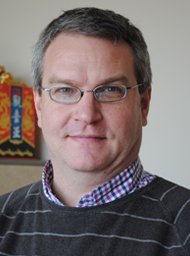
Senior Investigator
Laboratory of Cardiovascular Regenerative Medicine
National Heart, Lung, and Blood Institute
Manfred Boehm, M.D. is a Senior Investigator at the Center for Molecular Medicine, National Heart Lung and Blood Institute at the National Institutes of Health in Bethesda, USA.
Dr. Boehm received his M.D. from the University of Heidelberg, Germany and completed his medical training at the Franz-Vollhard-Klinik, Charité, Humboldt Universtität and Freie Universität Berlin, Germany. As a research fellow he trained at the Max Delbrück Center for Molecular Medicine, Berlin-Buch, Germany and the University of Michigan, Ann Arbor, Michigan, USA.
Dr. Boehm’s research interests are aligned with the principles of Precision Medicine to identify and better understand the molecular mechanisms underlying human vascular diseases and to develop new therapeutic approaches. Through these efforts, he and his team have established the Vascular Translational Program to investigate how individual variations in genes, environment, and lifestyle contribute to vascular disease. The program is designed to link high-throughput sequencing data with molecular disease mechanisms to facilitate the development of targeted therapies for patients with vascular disorders. The Boehm Lab has successfully identified and/or is currently working on the mechanisms underlying rare monogenetic diseases with vascular implications, including Arterial Calcification due to Deficiency of CD73 (ACDC), Systemic inflammation and early-onset recurrent stroke in children due to Deficiency of Adenosine Deaminase 2 (DADA2), STING-associated vasculopathy with onset in infancy (SAVI), and Hyper IgE syndrome (AD-HIES). Research findings from these studies on human rare monogenetic diseases with vascular implications have led to novel treatment strategies for affected patients.
As a NIH citizen, Dr. Boehm’s efforts are focused on increasing the visibility and transparency of the NIH clinical translational program and on developing resource-sharing trans-institutional NIH collaboration initiatives for the overall benefit of our most important stakeholders, the NIH Clinical Center patients and their families.
Penny Burgoon, PhD

Acting Director
Office of Policy, Communication and Strategic Alliances
National Center for Advancing Translational Services
Penny Wung Burgoon is the Acting Director of the Office of Policy, Communications, and Strategic Alliances at the National Center for Advancing Translational Sciences (NCATS). She oversees science policy, strategic planning, communications, and legislative activities for the Center. Before joining NCATS in July 2014, Penny was the program director of the Salivary Biology and Immunology Program for the National Institute of Dental and Craniofacial Research, where she managed a portfolio of research in salivary biology, salivary gland disorders and diseases, host immune responses to infection, autoimmunity, and systemic diseases. She came to the NIH as a 2004 American Association for the Advancement of Science (AAAS) Science & Technology Policy Fellow and provided program support for the first NIH projects supported through the NIH Roadmap for Medical Research, now the NIH Common Fund. Penny then served as the Senior Assistant to the NIH Principal Deputy Director from 2006 to 2010, including transitioning through two NIH Directors. In that role, she provided primary staff support for several NIH leadership committees, including the NIH Steering Committee, the NIH Advisory Committee to the Director, and all Institute and Center Directors’ meetings.
Penny is mid-west trained, receiving her bachelor’s degree from Oberlin College. She received a doctorate in physiology from the Ohio State University and post-doctoral research on circadian biology at the University of Illinois, Urbana-Champaign. She also held a research position at the U.S. Army Research Institute of Environmental Medicine and studied human kinesiology at the California State University, Northridge.
Noni Byrnes, PhD
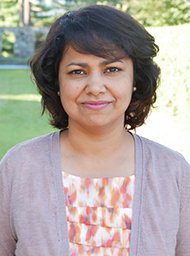
Director, Center for Scientific Review
Dr. Noni Byrnes is Director of the Center for Scientific Review (CSR) at the National Institutes of Health (NIH). In this capacity, she leads a staff of more than 500 scientific, support and contract personnel and manages an operating budget of over $130 million.
CSR handles the receipt and referral of all applications to NIH as well as those to other agencies within the Department of Health and Human Services, such as the Centers for Disease Control and the Food and Drug Administration. CSR reviews about 75% of all NIH grant applications in more than 1600 review meetings per year.
Prior to being named Director, Dr. Byrnes served in a variety of roles at CSR in positions of increasing responsibility. She began as a Scientific Review Officer in 2000 in the Biological Chemistry and Macromolecular Biophysics Integrated Review Group (IRG). In 2006, she became Chief of the Cell Biology IRG and, in 2012, Director of the Division of Basic and Integrative Biological Sciences, where she oversaw more than 60 study sections in a range of different areas of basic science, including genomics; cell, developmental and structural biology; bioengineering; and basic cancer biology. In January 2018, she was appointed Acting Deputy Director, and in May 2018, she assumed the role of Acting Director of CSR.
Dr. Byrnes brings with her deep knowledge of NIH peer review, a history of engagement with the external scientific community in a broad variety of disciplines, and a track record of innovation and leading change. She has provided leadership and oversight of the peer review of several high-profile trans-NIH initiatives, such as the American Reinvestment and Recovery Act (ARRA) Challenge Grants, the NIH Director’s Common Fund, and the All-of-Us (Precision Medicine) cohort initiative, among others. Under her leadership, CSR recently launched a new framework for the continuous evaluation of all of its 178 study sections, using both objective measures and expert input from stakeholders in the scientific community.
Prior to joining CSR, she worked in the pharmaceutical industry, where she conducted research to support Investigational New Drug submissions, served on Phase III clinical trial project teams and provided oversight of contracts with Clinical Research Organizations (CROs). Dr. Byrnes holds a B.S. in chemistry from Allegheny College in Meadville, PA and a Ph.D. in analytical chemistry from Emory University in Atlanta, GA.
Alison Cernich, PhD
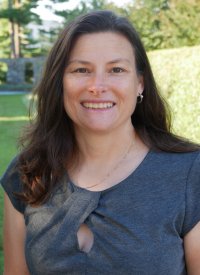
Deputy Director, Center for National Institute of Child Health and Human Development
Alison Cernich, Ph.D., became the Deputy Director of the Eunice Kennedy Shriver National Institute of Child Health and Human Development (NICHD) in September 2019. In this role, she assists the NICHD Director in overseeing the institute’s programs supporting research on child development, developmental biology, nutrition, HIV/AIDS, intellectual and developmental disabilities, population dynamics, reproductive biology, contraception, pregnancy, and medical rehabilitation.
Prior to this position, Dr. Cernich was the Director of NICHD’s National Center for Medical Rehabilitation Research (NCMRR), where she managed a $72 million research portfolio aimed at improving the health and wellbeing of people with disabilities. As NCMRR Director, she led the development and revision of the congressionally mandated NIH Research Plan on Rehabilitation (PDF 443 KB), an effort that included coordination with 17 institutes and centers and multiple external stakeholders. She also served on multiple interagency strategic planning committees and government oversight committees for research initiatives in the federal government relevant to disability and rehabilitation research.
Dr. Cernich was instrumental in planning and development of NICHD’s 2019 Strategic Plan, its first in more than a decade. She also represents NICHD on several trans-NIH programs, including All of Us and the NIH HEAL (Helping to End Addiction Long-termSM) Initiative.
Before joining NICHD, Dr. Cernich served as Deputy Director of the Defense Centers of Excellence for Psychological Health and Traumatic Brain Injury at the U.S. Department of Veterans Affairs (VA), where she coordinated prevention, education, research, and clinical care efforts for service members and veterans diagnosed with traumatic brain injury (TBI). Prior to her 10 years with the VA, Dr. Cernich was the TBI Liaison to the Department of Defense, the chief of neuropsychology and Director of the Polytrauma Support Clinic at the VA Maryland Health Care System, and a funded investigator through the VA Rehabilitation Research and Development Service.
Dr. Cernich received her doctoral degree in clinical psychology from Fairleigh Dickinson University and completed postdoctoral training in cognitive neuroscience at the National Rehabilitation Hospital in Washington, D.C. She is a board-certified neuropsychologist by training and is the lead or contributing author on multiple peer-reviewed articles and conference presentations, with an emphasis on TBI and computerized neuropsychological assessment.
Alyssa Cotler, MPA
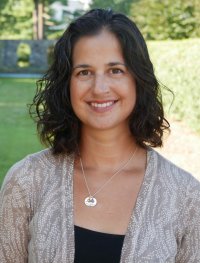
Communications Director, All of Us Research Program
National Center for Complementary and Integrative Health
Office of the Director
Alyssa Cotler is the Director of Communications and Marketing for the All of Us Research Program. She is passionate about the power of words and artistry to make a positive difference in public health. As a recovering English major, public health professional, caregiver, advocate, breast cancer patient, and survivor (one year as of late 2016), she brings a unique focus to the work of connecting science to the people who need it most.
Alyssa has been active in health communications at NIH for almost 20 years. She has been communications director for the National Center for Complementary and Integrative Health (NCCIH) since 2011 and was the deputy communications director at NCCIH for nine years prior. Before joining NCCIH, Alyssa worked as a consultant for the National Cancer Institute. She has also worked in patient advocacy at the National Breast Cancer Coalition and began her career in public policy working first on Capitol Hill and then with a lobbying firm advocating for advanced technology and higher education.
Alyssa has her master’s in public health and bachelor’s in English and government and politics. She lives in Howard County, Maryland, with her husband and two awesome daughters. In her spare time, she occasionally runs marathons or half-marathons.
Janet E. Hall, MD
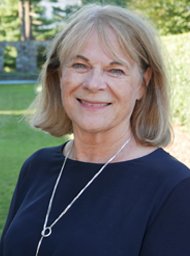
Clinical Director
Chief, Clinical Research Branch
Senior Investigator
National Institute of Environmental Health Sciences
Janet Hall, MD is currently a tenured Senior Investigator, Chief of the Clinical Research Branch, head of the Physiology & Pathophysiology group, and Clinical Director, NIEHS. She received her undergraduate degree and MSc in Medical Sciences at McMaster University and her MD from McMaster University Medical School where she also did her internal medicine residency. She completed her fellowship in Endocrinology & Metabolism at Massachusetts General Hospital and Harvard Medical School. She remained at Massachusetts General Hospital until 2015 as an NIH-funded clinical investigator and clinician, rising through the ranks to Professor of Medicine at Harvard Medical School. Her research has focused on the neuroendocrine control of reproduction and its disorders. She has made unique contributions to our understanding of the neuroendocrine underpinnings of hypothalamic amenorrhea, PCOS and premature ovarian insufficiency, the genetope/phenotype relationships in women with congenital GnRH deficiency, and the hormonal changes that occur with menopause and aging and their effects on brain function. She has authored well over 100 original publications in addition to several concensus statements and chapters in leading textbooks of internal medicine, physiology and reproductive endocrinology.
Dr. Hall was Associate Editor of the Journal of Endocrinology and Metabolism for two terms and is currently an Editor of Endocrine Reviews. Dr. Hall was elected to the Association of American Physicians in recognition of her contributions to both the science and academics of medicine, is the recipient of the A. Clifford Barger Excellence in Mentoring Award from Harvard Medical School and the Sidney H. Ingbar Distinguished Service Award from the Endocrine Society. She was on the Board of Directors of the Federation of American Societies for Experimental Biology and served as President of Women in Endocrinology. She has served on and chaired multiple committees and task forces for the Endocrine Society and was President of the Endocrine Society in 2012. At NIH, she is on the Medical Executive Committee and the Advisory Committee for the Medical Research Scholar Program. At NIEHS she is a member of the Leadership Committee, the Division of Intramural Research Council and Tenure Track Committee and has several on and chaired several search committees.
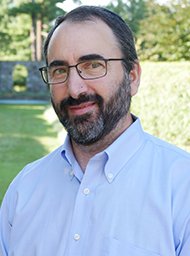
Theo Heller, MD
Chief
Translational Hepatology Unit
National Institute of Diabetes and Digestive and Kidney Diseases
Visit: https://www.niddk.nih.gov/about-niddk/staff-directory/intramural/theo-heller/Pages/research-summary.aspx
Ann D. Huston, MPA
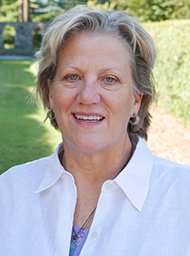
Associate Director for Management
Office of Resource Management
National Institute of Mental Health
Ann joined the National Institute of Mental Health in July 2012 as Deputy Executive Officer. She was served as Acting Executive Officer in March 2014 and was officially appointed Associate Director of Management/Executive Officer in May 2015. In directing the management and administrative functions of the National Institute of Mental Health, she provides oversight to $1.5 billion budget and over 1,200 staff, contractors and students.
Prior to NIMH, she served as the Deputy Executive Officer and Budget Officer to the Center for Scientific Review from September 2010 to July 2012. Prior to CSR, she served as the Program/Budget Analyst for the NCI Office of Cancer Centers (October 2008) where she was responsible for the administration of extramural grants portfolio for all NCI-designated Cancer Centers.
Prior to the NCI, Ms. Huston served for 13 years as Executive Director of the American Therapeutic Recreation Association located in Alexandria, VA. She has previous government experience in the Department of Veterans Affairs working at several VA Medical Centers including Richmond, VA, Kansas City, MO and Palo Alto, CA.
Ms. Huston is a native of Nebraska and attended the University of Nebraska-Lincoln for undergraduate studies and completed her Masters in Public Administration/Health Care Administration at the University of San Francisco. She resides in Alexandria, Virginia.
Peter Kilmarx, MD
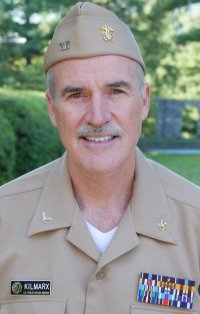
Deputy Director
Fogarty International Center
RADM Peter H. Kilmarx, MD, an expert in infectious disease research and HIV/AIDS prevention, is the Deputy Director of the John E. Fogarty International Center of the National Institutes of Health, a preeminent center for global health research and capacity building.
Dr. Kilmarx previously served as the Center for Disease Control and Prevention’s Country Director in Zimbabwe, providing oversight for 30 CDC staff who managed implementation of the U.S. efforts to reduce HIV/AIDS, TB and malaria.
A Rear Admiral in the U.S. Public Health Service, Dr. Kilmarx served as the CDC Ebola response team leader in Sierra Leone in September-October 2014, and as principal deputy team leader in Guinea in January-February 2015. Previously, he initiated the CDC response to the Ebola outbreak in Kasai Occidental, Democratic Republic of Congo (DRC), in 2007, and led household surveillance in the Ebola outbreak in Kikwit, DRC, in 1995.
Dr. Kilmarx has held a variety of leadership positions at the CDC since 1996, including senior advisor to the Director for Health Reform and chief of the Epidemiology Branch — both in the Division of HIV/AIDS Prevention. He also served as director of the CDC partnership with Botswana to combat HIV/AIDS, TB and related conditions, as well as the chief of the CDC’s Sexual Transmission Research Section in Thailand. Previously, he completed assignments in Pakistan and the DRC. An experienced clinical trials manager, he has served as principal investigator on microbicide trials in Thailand, and as senior investigator in TB and HIV trials in Botswana. Until recently, he was principal investigator on HIV studies he initiated at public health facilities in Zimbabwe.
After earning his M.D. from Dartmouth-Brown’s Combined Program in Medicine, Dr. Kilmarx completed both his internal medicine residency and infectious disease clinical fellowship at Johns Hopkins Hospital, Baltimore. He remains board-certified in both specialties and is a fellow of the Infectious Diseases Society of America and of the American College of Physicians. He has published more than 140 peer-reviewed journal articles and book chapters, and serves on the editorial board of Sexually Transmitted Diseases.
Lynn King, PhD
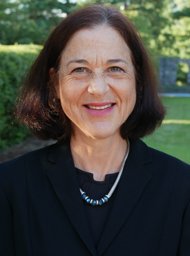
Chief Research Training and Career Development Branch
National Institute of Dental and Craniofacial Research
Lynn Mertens King is Chief of the Research Training and Career Development Branch. In this role, she advises the NIDCR Director on the administration and fiscal management of the extramural research training portfolio and provides leadership in the planning, development, implementation, and evaluation of NIDCR’s investment in research training. Dr. King oversees and manages a portfolio that includes individual fellowships; research career development, research career transition, and research career enhancement awards; institutional research training grants and career development awards; diversity supplement awards and the Loan Repayment Program. Dr. King works with colleagues across the institute to ensure research training opportunities encompass the breadth of NIDCR’s diverse dental, oral, and craniofacial research portfolio. She collaborates with institutes across NIH to augment research training opportunities in specific and emerging scientific areas, and she partners with professional organizations to support enhanced opportunities for mentoring, networking, and research support. She is an active member of a number of trans-NIH committees addressing research training and workforce diversity. She has received NIH Director’s awards for her contributions in developing the NIH Director’s Pioneer Award program and in updating the extramural administrative support system.
Dr. King received her Ph.D. in population biology from Washington University in St. Louis, studying the genetic structure of natural plant populations and performed postdoctoral research at Harvard University in population genetics and molecular evolution. Dr. King served on the faculty in the Department of Biology at the University of Miami, Florida and subsequently joined NIH as a Senior Staff Fellow in the National Human Genome Research Institute Clinical Genetics Branch. She then joined the NIDCR Craniofacial and Skeletal Diseases Branch investigating gene expression in human bone marrow stromal cells. She transitioned to the NIDCR extramural program in 2002, where she served as a Scientific Review Officer and Chief of the Scientific Review Branch before transitioning to her current position.
Ming Lei, PhD
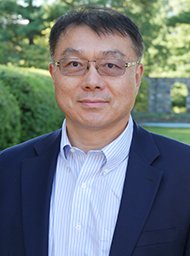
*No longer with NIH
Deputy Director
Center for Cancer Training
National Cancer Institute
Current Position: Director, Division for Research Capacity Building, National Institute of General Sciences. Updated bio not available at this time.
Dr. Ming Lei is the Deputy Director of Center for Cancer Training, and the Chief of Cancer Training Branch at the National Cancer Institute (NCI). He oversees NCI’s Fellowships, Career Development Awards and Institutional Training & Education grant programs.
Dr. Ming Lei is a geneticist by training. He earned his PhD from Cornell University and continued his postdoctoral training there. He was a faculty member at the Medical College of Wisconsin, where he taught Genetics and Microbiology to medical students and graduate students. He was a NIH-funded principal investigator. His laboratory studied the regulation of DNA replication. He began his governmental service in 2006 at the National Science Foundation, where he managed NSF’s research grant portfolio in Molecular Biology, Genetics and Genomics. He has been with the National Cancer Institute since 2008.
Laura K. Moen, PhD
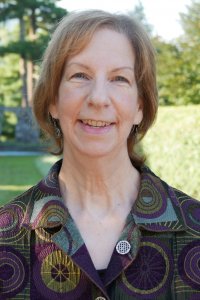
Director
Division of Extramural Research Activities
National Heart, Lung, and Blood Institute
Laura K. Moen, Ph.D., is Director of the Division of Extramural Research Activities (DERA). In this position, she oversees the Office of Scientific Review, the Office of Grants Management, the Office of Translational Alliances and Coordination, the Office of Extramural Policy and Training, and the Office of Committee Management for the Institute. She is also responsible for key scientific management functions, including serving as the Executive Secretary for the NHLBI Advisory Council. Dr. Moen received her B.S. in Biological Sciences from the University of Southern California in Los Angeles, and her Ph.D. in Biochemistry from the University of Virginia. She held postdoctoral positions at Oregon State University in Corvallis, Oregon, and at the University of California Medical School in San Francisco. Before joining the NIH, Dr. Moen was a tenured Associate Professor in the Department of Chemistry and Biochemistry at Old Dominion University (ODU) in Norfolk, Virginia. Prior to her appointment with the NHLBI, Dr. Moen worked with the National Institute of General Medical Sciences (NIGMS), the National Institute of Diabetes and Digestive and Kidney Diseases (NIDDK), the National Center for Complementary and Alternative Medicine (NCCAM), and most recently, the National Institute of Arthritis and Musculoskeletal and Skin Diseases (NIAMS) where she served as their Director of Extramural Research Activities. Dr. Moen has received numerous awards and honors, including NIH Director's Awards for her exceptional contributions to the Roadmap Molecular Libraries Initiative, and the agency-wide restructuring of the Division of Extramural Activities Support (DEAS). She also received the NIDDK Director's Award for her role in facilitating a comprehensive evaluation of the Institute's training activities.
Marva Moxey-Mims, MD

*No longer with NIH
Division Chief
Division of Nephrology at Children's National Health System
Dr. Marva Moxey-Mims came to the NIH in 2002, as the NIDDK Program Director for Pediatric Nephrology, and in 2008 she also became the Division of Kidney, Urologic and Hematologic Diseases (KUH) Deputy Director for Clinical Research. Dr. Moxey-Mims develops initiatives for pediatric nephrology studies and administers the clinical grants involving children with a wide range of kidney diseases. In addition she administers the Research Centers of Excellence in Pediatric Nephrology and Urology, and the KUH Kidney Small Business Innovation Research (SBIR) portfolio, and oversees the division’s clinical cooperative agreements. She serves on several NIDDK, trans-NIH, and trans-agency committees.
Prior to taking her position at NIH, Dr. Moxey-Mims was a Medical Officer in the Center for Devices and Radiological Health (CDRH) at the FDA, in the Division of Clinical Laboratory Devices (DCLD) in the Office of Device Evaluation (ODE), as well as in the Division of Reproductive, Abdominal and Radiological Devices (DRARD). Her portfolio in DCLD included diagnostic laboratory tests for renal function, cardiovascular function, and any tests specific for children. In DRARD, her portfolio included dialysis and other extracorporeal circulation devices.
Prior to her time at the FDA, Dr. Moxey-Mims was a fulltime pediatric nephrologist at Children’s National Medical Center in Washington, DC where she covered all aspects of clinical care for children with kidney disease and was also Medical Director of the kidney transplant program. She was Associate Professor of Pediatrics at The George Washington University School of Medicine.
Dr. Moxey-Mims obtained her Bachelor of Science degree from McGill University, Montreal and her M.D. from Howard University College of Medicine, Washington, D.C. Her pediatric residency and clinical pediatric nephrology fellowship training were completed at Children’s National Medical Center, Washington, D.C., followed by a research fellowship in intramural NIAID in the Laboratory of Clinical Investigation. She is married to a fellow physician with whom she has two lovely daughters whose career interests are in the worlds of business and the arts. Away from work, she enjoys travelling, reading murder mysteries, and relaxing with her two German Shepherds.
Susan Old, PhD
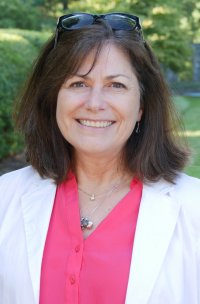
Deputy Director
Division of Extramural Activities
National Institute of Allergy and Infectious Diseases
Dr. Old has been at the National Institutes of Health (NIH) for close to 28 years. She has served in many capacities and several Institutes and Centers. For the last four years she has been serving as the Deputy Director of the Division of Extramural Activity (DEA) in the National Institute of Allergy and Infectious Diseases. The division has close to 300 staff and is responsible for the fiscal and technical management of grants and contracts, procurement of goods and services, scientific peer review, Federal Advisory Councils, implementation and coordination of extramural grant and contract policy, integrity of scientific review and discovery, and dissemination of policy, guidance, and knowledge resources through staff training and newsletters, as well as oversight of Career Development and Training, Small Business Program, and International program compliance. She has been instrumental in leading change and increasing effectiveness and efficiencies.
Dr. Old began her career at NIH as a senior staff fellow at the National Eye Institute, where she studied the mechanisms of diabetic cataracts in the Laboratory of Mechanisms of Ocular Disease. In 1994, she joined the extramural program at the National Heart, Lung, and Blood Institute (NHLBI), where she was responsible for establishing cooperative agreement and contract programs in genomics and proteomics. In 2006 she became the Acting Deputy Director for the Division of Cardiovascular Diseases and was responsible for an extramural budget of more than $1.3 billion.
Dr. Old was fortunate to serve in both National Center for Research Resources (NCRR) as the Senior Advisor to the Director for Translational Research and in NIH Center for Translational Therapeutics (NCTT) as the Senior Advisor and Acting Deputy Scientific Director prior to their merger to form the National Center for Advancing Translational Sciences (NCATS).
Additionally, Dr. Old served as Special Assistant to the Deputy Director of the Office of Extramural Activities at NIH. She helped to establish central coordination for the Tobacco Control Regulatory Research joint NIH-FDA initiative.
Dr. Old received her undergraduate degree at the University of California, Irvine, and her Ph.D. in the Department of Human Genetics at the University of Michigan. She began her post-doctoral training at Columbia University in Pediatric Neurology before joining the NIH in 1988.
Andrew Singleton, PhD
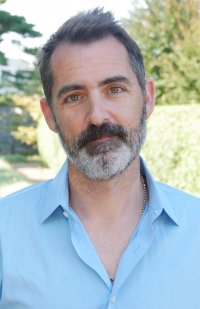
Distinguished Investigator
National Institute on Aging
Andy is an NIH Distinguished Investigator and Chief of the Laboratory of Neurogenetics and the Molecular Genetics Section. He received his B.Sc. from the University of Sunderland, UK and his Ph.D. from the University of Newcastle upon Tyne, UK. He has published more than 500 articles on a wide variety of topics. His laboratory comprises ~55 staff, including five principal investigators and 3 group leaders. His laboratory works on the genetic basis of neurological disorders including Parkinson's disease, Alzheimer’s disease, dystonia, ataxia, dementia with Lewy bodies, and amyotrophic lateral sclerosis. The goal of this research is to identify genetic variability that causes or contributes to disease and to use this knowledge to understand the molecular processes underlying disease.
Andy currently serves on the scientific advisory board of the Michael J. Fox Foundation and the Lewy Body Dementia Association; he is a member of the editorial boards of Neurodegenerative Diseases, Neurogenetics, Movement Disorders, Brain (Associate Editor, Genetics), Lancet Neurology, the Journal of Parkinson’s Disease, NPJ Parkinson’s Disease, the Journal of Huntington’s Disease, and Annals of Neurology. He was awarded the Boehringer Mannheim Research Award in 2005, the NIH Director’s Award in 2008 and 2016, and the Annemarie Opprecht Award in 2008. In 2012 Andy became the first person to win the Jay van Andel Award for Outstanding Achievement in Parkinson’s Disease Research.
Outside of the laboratory Andy enjoys putting his feet up with a nice cup of tea.
Meredith Temple-O'Connor, PhD
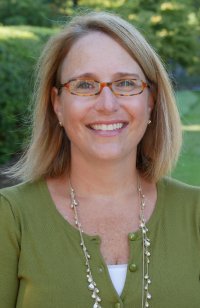
Chief Office of Policy, Communications and Education,
Policy Branch
National Center for Advancing Translational Services
Meredith D. Temple-O’Connor became director of science policy in early 2019. As such, she oversees the NCATS Policy Branch, which analyzes issues relevant to translational science and fosters relationships with NCATS stakeholders to develop and implement effective science policies. She and her staff address a variety of legislative, regulatory, and science policy issues and activities that are relevant to the spectrum of translational science — including developing science policy briefings, providing oversight of the strategic planning process and engaging with government, academic, nonprofit and private sectors. Her staff also is responsible for analysis and evaluation and, in coordination with NIH colleagues, for providing reports and other information to Congress.
During her NIH career, Temple-O’Connor has held several positions in extramural program, review and NIH policy, including as senior scientific advisor to the NIH Deputy Director for Extramural Research and as NIH Inclusion Policy Officer. Before joining NCATS, she was senior policy advisor for clinical research in the Division of Extramural Research at the Eunice Kennedy Shriver National Institute of Child Health and Human Development.
Temple-O’Connor holds both M.S. and Ph.D. degrees in biological psychology from Virginia Commonwealth University, with postdoctoral training in neuroscience at the University of Virginia and Georgetown University. A highly trained and skilled leader, Temple-O’Connor has served on or chaired more than 30 committees, including numerous trans-NIH and Institute/Center committees, as well as working groups addressing different issues related to research, policy development and implementation, and electronic data system integration.
Neil Thakur, PhD
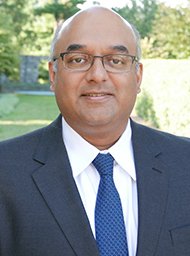
*No longer with NIH
Special Assistant to the Deputy Director for Extramural Research
Office of the Director
Neil Thakur has served as Special Assistant to the National Institutes of Health (NIH) Deputy Director for Extramural Research since 2005. He also serves as program manager for the NIH public access policy, and has spent a year on detail to the US Senate Special Committee on Aging. Prior to his time at NIH, he was Assistant Director of Health Services Research and Development at the Department of Veterans Affairs. Dr. Thakur holds a Ph.D. in Health Policy from Yale University School of Public Health and completed a NIMH postdoctoral fellowship in mental health services research at the Cecil G. Sheps Center for Health Services Research at the University of North Carolina at Chapel Hill.
Jerrel Yakel, PhD
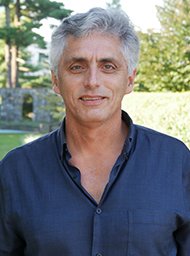
Chief, Neurobiology Laboratory
Senior Investigator
National Institute of Environmental Health Sciences
Jerrel L. Yakel, Ph.D., (Jerry) is Chief of the Neurobiology Laboratory and head of the Ion Channel Group within the Division of Intramural Research at the National Institute of Environmental Health Sciences. His group studies the structure, function and regulation of the Cys-loop ligand-gated ion channel superfamily (with a particular focus on the nicotinic acetylcholine receptor channels) and muscarinic ACh receptors in the septal/hippocampal/entorhinal cortical region of the brain and their role in learning and memory and neurological disorders such as Alzheimer’s disease.
Jerry received his B.S. from Oregon State University, and his Ph.D. from the University of California, Los Angeles, where he studied ligand-gated ion channels and serotonin receptors in cultured hippocampal neurons and cell lines with Meyer Jackson. During a postdoctoral fellowship with Hersch Gerschenfeld at the Ecole Normale Superieure (Paris, France), he investigated the regulation of voltage-gated calcium channels by G protein-coupled receptors. During a second postdoctoral stage at the Vollum Institute with Alan North and Tom Soderling, he studied the function of regulation of ligand-gated ion channels. Dr. Yakel joined NIEHS in 1993.
Jerry is also extremely proud of his maternal Luiseno and La Jolla Native American heritage.
2014 ExLP Participants
Phil Day

Deputy Director
Systems, Analytics, and Information Division
Office of Human Resources
Phil Day is currently the Deputy Director of the Systems, Analytics, and Information Division (HR SAID), Office of Human Resources. As director, he manages NIH systems that help serve hiring, workflow, and workforce analysis needs for the NIH. Prior to working for the OHR, Phil was the Director for the Center for Information Technology (CIT) Customer Support Services.
During his time at the NIH, Mr. Day has been actively involved in helping to build the NIH's future leadership through his participation in the Administrative Training Committee and by serving as the Chair for the Management Intern Subcommittee. Always eager to engage the NIH’s future leaders, he has participated in several Management Seminar Series events including, “From Peer to Supervisor, Understanding Workplace Culture, and The Dynamics of a Multi-Generational Workplace.” He has also been a featured speaker on the topic of IT service management in several international forums, including the Annual International IT Management Conference where he discussed the transformation of IT support at the NIH.
Christine Bruske Flowers
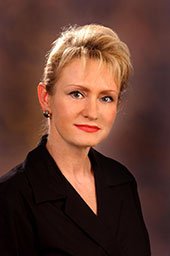
Director
Office of Communications and Public Liaison
National Institute of Environmental Health Sciences
Christine Bruske Flowers is Director of the Office of Communications & Public Liaison for the National Institute of Environmental Health Sciences (NIEHS) where she leads a team of 11 professionals in conducting a worldwide outreach and media relations programs in support of the NIEHS mission to discover how the environment influences human health. Flowers joined the NIEHS in 2004 and since then has received 13 NIH Merit Awards for outstanding leadership of new initiatives and successful partnerships.
Prior to working at NIEHS, Flowers led communications and outreach activities for other federal agencies including the U.S. Department of the Interior International Affairs Program, and the U.S. Army Corps of Engineers environmental restoration program. Flowers also served as Director of Communications and Legislative Affairs for the North Carolina House of Representatives, and Director of Public Relations for the U.S. House of Representatives in North Carolina's Fourth Congressional District. Flowers is a veteran of the U.S. Army Medical Specialty Corps. She holds an M.A. in Public Affairs Journalism from Regent University and a B.S. in Biology from North Carolina State University.
Elizabeth Gillanders, Ph.D.
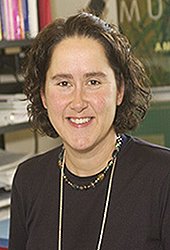
Branch Chief
Host Susceptibility Factors Branch
National Cancer Institute
Current Position: Chief of the Epidemiology and Genomics Research Program's (EGRP) Genomic Epidemiology Branch, National Cancer Institute. Updated bio not available at this time.
Liz is Chief of the Host Susceptibility Factors Branch and as such oversees the Epidemiology and Genomics Research Program's (EGRP) research portfolio and initiatives that investigate the role of host factors (primarily genetic variation) in regards to cancer risk. She also represents NCI on several NIH-wide committees related to the development and implementation of NIH’s genomic data sharing policies.
Liz completed her Bachelor of Arts degree, majoring in French and Art History, from the College of William and Mary in Virginia. She first became interested in biomedical research after being enrolled, with her twin brother, in a Mid-Atlantic Twin Registry research project. She decided on a career in research after several years working in molecular epidemiology at the National Institutes of Health. Liz received her PhD in Genetic Epidemiology from the Johns Hopkins Bloomberg School of Public Health and spent 15 years working intramurally at the National Human Genome Research Institute, prior to joining the National Cancer Institute in 2007.
Outside of the office, Liz enjoys teaching Epidemiology at St. Mary’s College of Maryland. She also likes hiking in Rock Creek Park, swimming and just being outdoors.
Franziska Grieder, DVM, Ph.D.
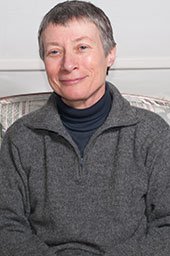
Director
Office of Research Infrastructure Programs
Division of Program Coordination, Planning, and Strategic Initiatives
Office of the Director
Franziska Grieder, DVM, PhD, serves as the Director of the Office of Research Infrastructure Programs (ORIP), one of six offices in the Division of Program Coordination, Planning, and Strategic Initiatives (DPCPSI) within the NIH’s Office of the Director (OD). With a staff of approximately 30 employees, ORIP awards grants, cooperative agreements, and contracts that serve Trans-NIH interests. Major focus areas include comparative medicine and disease models, training of veterinary scientists, science education at the K-12 levels, shared instrumentation needs, and construction/renovation activities.
Originally from Switzerland, she earned a DVM degree from the University of Zürich and a PhD degree from the University of Wisconsin-Madison. As a faculty member at the Medical School of the Uniformed Service University (USU) in Bethesda, Maryland, Dr. Grieder led a laboratory conducting research studies evaluating early immune and neuroimmunological responses to Venezuelan Equine Encephalitis virus. She also taught both medical and graduate students, receiving the prestigious USU Outstanding Biomedical Graduate Student Educator Award. She joined NIH in 2000 to have a broader impact on science.
Dr. Grieder is an avid bicyclist, including her daily commute to work, but her true love is skiing and hiking, mainly in the Swiss Alps and the US or Canadian Rocky Mountains. She enjoys Sudoku and baking, especially bread, but also long walks with her two canine friends.
Judith A. Hewitt, Ph.D.
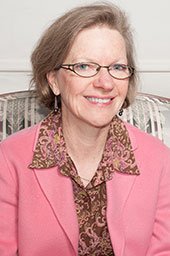
Deputy Director
Office of Biodefense, Research Resources, and Translational Research
Division of Microbiology and Infectious Diseases
National Institute of Allergy and Infectious Diseases
Judy Hewitt is Deputy Director of the Office of Biodefense, Research Resources and Translational Research (OBRRTR) in the Division of Microbiology and Infectious Diseases at NIAID. OBRRTR’s mission is translational research and development through Phase 1/2 clinical trials of products for biodefense and emerging infectious diseases, including the development and sharing of the required research resources. She was previously Chief of the Research Resources Section, responsible for several Division-wide resources that provide research reagents, animal models and screening services. Dr. Hewitt’s group has primary responsibility for biodefense animal model development and qualification efforts within DMID. Dr. Hewitt has been a recipient of several NIAID Merit awards and three NIH Director's Awards for efforts in advancing vaccines/therapeutics to support the HHS Public Health Emergency Medical Countermeasures Enterprise. She received the 2012 HHS Secretary’s Award for Distinguished Service, for her role in the first FDA Advisory Committee recommended approval of a drug using FDA’s Animal Efficacy Rule. In 2014-2015, Dr. Hewitt led the development and implementation of the NIH extramural policy on “Enhancing Reproducibility Through Rigor and Transparency” through a part-time detail in the Office of Extramural Research, Office of the Director.
After receiving a BS in Biology from Albright College, Dr. Hewitt earned her Ph.D. in Biochemistry from Johns Hopkins University and completed post-doctoral fellowships at NICHD and the Cleveland Clinic Foundation before taking faculty-level positions at the University of Maryland and NIAID, where she ran transgenic and knockout mouse resources to develop models for immunological studies. She is married to a dedicated academic scientist, while their son and daughter are pursuing their own, non-science careers. She enjoys cooking and knitting, where her analytical skills come in handy, and is still looking for more time for exercise.
Treava Hopkins-Laboy
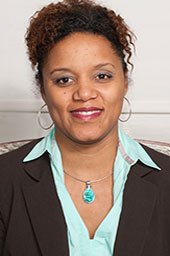
Deputy Director
Office of Equity, Diversity, and Inclusion
Office of the Director
*No longer with NIH
Born and raised in the Washington Metro Area, Treava Hopkins-Laboy has over 20 years of experience with the Department of Health and Human Services (HHS). Prior to joining the National Institutes of Health as the Deputy Director of the Office of Equity, Diversity, and Inclusion, Treava served as the Director of EEO Compliance for the Food and Drug Administration (FDA), where she was responsible for the direct supervision of the Complaints Processing Staff and the Reasonable Accommodation Team. Treava also served as the Acting Director of the Conflict Prevention and Resolution Staff, overseeing all aspects of alternative dispute resolution and proactive apparatuses for conflict intervention.
Treava started her career with HHS in the FDA’s Office of Regulatory Affairs as an Education Specialist for the Education and Training Division. In this role, she was responsible for providing training for Field Investigators and Laboratory Personnel. She later transitioned to the Center for Veterinary Medicine (CVM) as a Workforce Diversity Specialist, where she oversaw student intern outreach programs, graduate student intern research programs, special emphasis programs, and workforce analysis. During this time, Treava also served on the HHS Recruitment Council and the HHS Disability Council, and is credited with the development and implementation of the CVM Recruitment and Retention team.
Treava received her Associates of Arts Degree from Montgomery College, her Bachelors of Science in Liberal Studies/Health Promotions from American University, and her Master’s of Science in Management Studies/Human Resources from the University of Maryland, University College. In addition, she received her EEO Studies Certification from Cornell University and Mediation Certifications from the Atlanta Justice Center.
Outside of her work and academic studies, Treava is a mother of three, a certified scuba diver, music DJ, aerobics instructor, first responder, and beverage mixologist. In her spare time she enjoys playing the drums, reading books, and traveling with her husband.
T. Jake Liang, M.D.
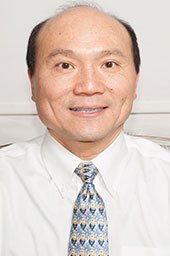
Chief, Liver Diseases Branch
Deputy Director, Translational Research
National Institute of Diabetes and Digestive and Kidney Diseases
T. Jake Liang, M.D. is currently the Chief of Liver Diseases Branch and Deputy Director of Translational Research, NIDDK, NIH. He graduated from Harvard College and received his MD degree from Harvard Medical School. He completed his internal medicine residency at the New York University/Bellevue Hospital Center, and a fellowship in gastroenterology and hepatology at Massachusetts General Hospital and Harvard Medical School, where he was an Assistant Professor of Medicine from 1990-1996.
Dr. Liang is an internationally renowned and dominant thought leader in the field of viral hepatitis and liver diseases with diverse scientific expertise and editorial experience in virology, immunology, cell biology, therapeutics, regenerative medicine and genetics/genomics. He has made groundbreaking discoveries critical to understanding hepatitis C virus pathogenesis and treatment and to developing a novel approach to HCV vaccination. He has published over 300 scientific papers with many of them in high-impact journals including NEJM, Science, Nature, Nature Medicine, Science Trans Med, Nature Genetics, Annals of Int Med, J Clin Invest, etc., and edited numerous books. Dr. Liang has been an Associate Editor for Gastroenterology, Hepatology and Gut. He has been active in many academic professional societies, including ASCI, the American Association for the Study of Liver Diseases (AASLD) and the American Gastroenterological Association (AGA). He was a member of the ASCI Council from 2004-2007. He was on the Governing Board of the AASLD from 2007 to 2012 and the President of the AASLD (2011).
His outstanding contributions had been recognized with numerous accolades including the recipient of the British Liver Scholar Award, the Leon Schiff Lectureship, the Edward W. Morrow Lectureship, the Bruce Witte Distinguished Lecture Award, NIH KT Jeang Lectureship, NIH APAO Outstanding Scientific Achievement Award, NIDDK Nancy Nossal Scientific Mentorship Award, NIDDK Director’s Award, the AASLD Distinguished Mentor/Clinician Award, and the AGA Distinguished Achievement Award in Basic Science. He was elected to the American Society for Clinical Investigation (ASCI), the Association of American Physicians, the AAAS Fellow, the American Academy of Microbiology, and the National Academy of Medicine.
Anita M. Linde, M.P.P.
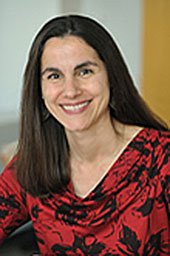
Director
Office of Science Policy, Planning and Communications
National Institute of Arthritis and Musculoskeletal and Skin Diseases
Current Position: Senior Advisor to the Director, National Institute of Arthritis and Musculoskeletal and Skin Diseases. Updated bio not available at this time.
Anita Linde is the Director of the Office of Science Policy, Planning and Communications (OSPPC) at the National Institute of Arthritis and Musculoskeletal and Skin Diseases (NIAMS). In March 2012, the Office of Science Policy and Planning (OSPP) and the Office of Communications and Public Liaison (OCPL) joined to become branches within the new office. As OSPPC Director, Anita is responsible for overseeing the science policy, strategic planning, program evaluation, legislation, communications, and public liaison activities of the Institute.
Anita had been the Director of OSPP since 2005, where she managed the science policy, strategic planning, program evaluation, legislative liaison, and speechwriting activities of the Institute. From 2011 to 2012, she also served as the Acting Director of OCPL, overseeing the NIAMS’ press and social media activities, science writing, website, health information and education initiatives, and public outreach efforts.
Anita came to the NIH as a Presidential Management Intern in 1994, and she has held a number of positions across the agency in management and program analysis; legislative analysis; science policy and planning; and communications and public liaison. During her tenure, she has served on many agency-wide groups, including the NIH Administrative Training Committee, the NIH Evaluation Oversight Committee, and the governance group for the NIH Office of Portfolio Analysis and Strategic Planning.
Anita’s commitment to the NIH’s public health mission has been recognized with numerous awards, including the NIH Director's Award for exemplary service as a mentor in 2010. She is a 2004 graduate of the Senior Executive Fellows Program at the John F. Kennedy School of Government at Harvard University. Anita is a Phi Beta Kappa graduate of the University of Virginia, where she earned a Bachelor of Arts in Comparative Literature and French. She holds a Master of Public Policy degree from Vanderbilt University.
John C. McKew, Ph.D.
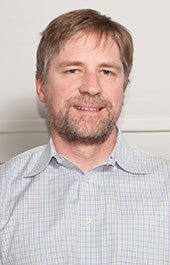
*No longer with NIH
Acting Scientific Director
Division of Preclinical Innovation
National Center for Advancing Translational Science
Dr. McKew is the Acting Scientific Director of the Division of Preclinical Innovation at the National Center for Advancing Translational Sciences (NCATS) within the NIH. His responsibilities include developing the Therapeutics for Rare and Neglected Disease (TRND) program and the Bridging Interventional Development Gaps program (BrIDGs; former NIH-RAID program). Both of these programs focus on novel public/private partnerships to advance collaborative drug discovery projects through pre-clinical development into early clinical development. These collaborative projects are advanced using a combination of internal scientific resources as well as government contracts. Prior to joining the NIH, Dr. McKew held a Director level position at Wyeth Research in Cambridge, Massachusetts where he spent a total of 17 years. One role at Wyeth he held comprised leading a hit-to lead chemistry group supporting cardiovascular, musculoskeletal and metabolic disease therapeutic areas. Prior to that Dr. McKew spent 10 years working in the inflammation therapeutic area resulting in multiple compounds entering clinical evaluation. His research interests include rare and neglected disease research, medicinal chemistry, synthetic methodology, and tool compounds to probe biology. These interests have resulted in >35 publications, 10 Granted US Patents and >60 invited presentations. Dr. McKew also enjoys sharing his passion for science with others. This has prompted him to become course director and lecturer in GMS PM 881 “Drug Discovery and Development,” a graduate level course in the Department of Pharmacology and Experimental Therapeutics, which resulted in his appointment as an Adjunct Associate Professor Boston University School of Medicine. He has also taken an active role in the Northeastern Section of the American Chemical Society and has served as the Chair-Elect, Chair and the Immediate Past Chair.
Dr. McKew graduated from State University of New York at Stony Brook with B.S. degrees in Chemistry and Biochemistry. He completed his Ph.D. in Organic Chemistry at University of California, Davis and held post-doctoral research positions at the University of Geneva and Firmenich, SA.
Matthew McMahon, Ph.D.
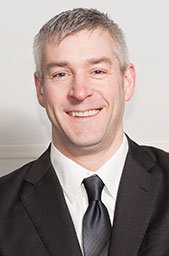
Senior Advisor for Translational Research
National Eye Institute
Current Position: Director, Office of Translational Alliances and Coordination, National Heart, Lung, and Blood Institute. Updated bio not available at this time.
In his role at the National Eye Institute, Dr. McMahon facilitates translational research activities and participates in trans-agency initiatives. He is also responsible for identifying emerging opportunities to advance small molecules, gene- and cell-based therapies, medical devices, and other novel therapeutics through public-private partnering with the pharmaceutical and biotechnology industries. Dr. McMahon completed his graduate studies in retinal structure, function, and visual perception at the University of California, San Diego and performed postdoctoral research in primate retinal physiology at the University of Washington. He then served as Senior Principal Scientist for Second Sight Medical Products, developer of the Argus II retinal prosthesis, for 5 years. In 2009, Dr. McMahon moved to Capitol Hill as an AAAS Science and Technology Policy Fellow for the Senate Committee on Commerce, Science, and Transportation. He then served as professional staff on the House Science and Technology Committee, where he oversaw innovation, manufacturing, technology transfer, and bioscience policy.
James M. Meegan, Ph.D.
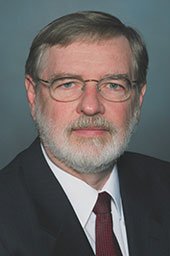
*No longer with NIH
James M. Meegan received his PhD from the University of Connecticut and has had a long career in science, specializing in microbiology/virology and infectious diseases. He has held research positions at U.C. Berkeley, Yale Medical School, U.S. Army Institute of Infectious Diseases (USAMRIID) Ft. Detrick, and the Naval Medical Research Institute and its overseas laboratories. He has held leadership positions at the World Health Organization (Geneva), the National Institutes of Allergy and Infectious Diseases (NIAID) at the NIH and Invitrogen/Life Technologies Corporation. In 2012, he re-joined NIH as the Director of Global Research at NIAID. His research programs have focused on: the pathology, epidemiology and immunology of infectious diseases; the development of vaccines and antiviral therapies; the development of protein and nucleic acid-based diagnostics; the role of viral diseases in international health and tropical medicine; and the study of emerging diseases and biodefense. He has many distinguished awards including the WHO Director’s Award, the NIH Director’s Award, the NIAID Director’s Award, and the Department of Health and Human Services (HHS) Secretary of Health Award. He was selected as a Distinguished Life Technologies Corporate Fellow in 2007. He has published numerous scholarly manuscripts, and has been a consultant and advisor to various individual countries and scientific groups including the U.S. Congress, the U.K. House of Lords and various U.S. Presidential Commissions.
George A. Mensah, M.D., FACC
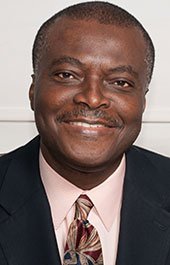
Director
Center for Translation Research and Implementation
National Heart, Lung, and Blood Institute
Dr. Mensah was born and raised in Ghana, West Africa. He graduated with honors in Biology from Harvard College and obtained a doctorate in medicine from Washington University. He subsequently trained in internal medicine and cardiology at Cornell University Medical Center and The New York Hospital. His professional experience includes 17 years of public service between the U.S. Department of Veterans Affairs (VA) and the Centers for Disease Control and Prevention (CDC) and management experience as a Chief of Cardiology; head of a clinical care department; the Surgeon-General’s nominee to the Board of Governors of the American College of Cardiology as Governor for Public Health; and a Vice President for Global R&D Nutrition for a multinational company in the private sector. In addition to public service, Dr. Mensah had 10 years of experience in direct patient care, teaching, and research at Vanderbilt University and the Medical College of Georgia (MCG). He was a professor with tenure at MCG, Director of the Medical Specialties Practice at the MCG Hospitals & Clinics, and Department Head of Cardiovascular Care at the VA Medical Center in Augusta. Prior to joining NHLBI, Dr. Mensah had been offered the position of Dean of the Faculty of Health Sciences at the University of Cape Town in South Africa. Over the course of his career, Dr. Mensah has authored more than 400 manuscripts, abstracts, book chapters, and an atlas on heart disease and stroke published by the World Health Organization and CDC. Dr. Mensah is internationally renowned for his scientific leadership and expertise in the fields of cardiovascular medicine, health disparities research, and global health. His current goal is to work with leadership and staff at NIH to advance late stage translation research and implementation science to maximize the population health impact of our research discoveries in heart, lung, and blood diseases.
Rajesh Ranganathan, Ph.D.
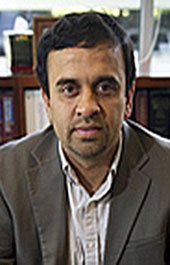
*No longer with NIH
Director
Office of Translational Research
Division of Biomedical Technology, Bioinformatics, and Computational Biology
National Institute of Neurological Disorders and Stroke
Dr. Rajesh Ranganathan is the Director of the Office of Translational Research at NINDS where he is responsible for leading the Institute’s efforts to more quickly and effectively convert basic and translational research results into new therapeutics. He joined the staff of the NIH in 2010 as the Senior Advisor to the NIH Director for Translational Medicine. While there, he led efforts to assess the translational medicine pipeline across the NIH and helped formulate an NIH-wide strategy which culminated in the formation of the new NIH National Center for Advancing Translational Sciences (NCATS). Prior to joining the NIH, he spent seven years at the Novartis Institutes for BioMedical Research Inc. as a director in the scientific strategy and portfolio management group; he also founded and led a Global Office of Scientific Education for the Institutes.
Dr. Ranganathan received his bachelor’s degrees in biology and chemistry from Amherst College, performed his doctoral training with Dr. H. Robert Horvitz at MIT in C. elegans neurobiology, and his postdoctoral training with Dr. Linda Buck at Harvard Medical School and the Fred Hutchinson Cancer Research Center in the area of mammalian sensory regulation.
Laura Lyman Rodriguez, Ph.D.
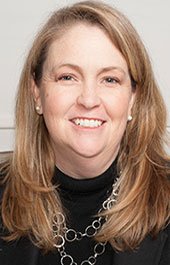
*No longer with NIH
Laura Lyman Rodriguez, Ph.D., is the Director of the Division of Policy, Communications, and Education at the National Human Genome Research Institute (NHGRI), National Institutes of Health (NIH). In this capacity, she works to develop and implement policy for research initiatives at NHGRI, design communication and outreach strategies to engage the public in genomic science, and prepare health care professionals for the integration of genomic medicine into clinical care. Dr. Rodriguez is particularly interested in the policy and ethics questions related to the inclusion of human research participants in genomics and genetics research. Among other activities, Dr. Rodriguez provided leadership for the policy development activities pertaining to genomic data sharing and the creation of the database for Genotypes and Phenotypes (dbGaP) at NIH, and she remains active in the implementation and on-going policy development activities related to data sharing at NHGRI and across the agency.
Dr. Rodriguez has been with NHGRI since 2002 and served in multiple capacities during her tenure with the Institute before being appointed to be the DPCE Director. Prior to coming to NIH, Laura was a study director at the National Academies’ Institute of Medicine for a project that resulted in a report on the accreditation of human subject protection programs, as well as a report examining the federal system for protecting human research participants. She spent time in the legislative arena first as an American Association for the Advancement of Science (AAAS) Congressional Science Fellow working on national science policy issues and K-12 math and science education, and later with the Office of Public Affairs at the Federation of American Societies for Experimental Biology covering federal funding issues and various bioethical topics.
Dr. Rodriguez received her bachelor of science with honors in biology from Washington and Lee University in Virginia and earned a doctorate in cell biology from Baylor College of Medicine in Texas.
David Shurtleff, Ph.D.
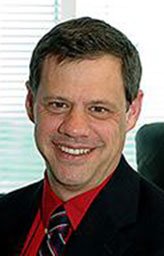
Deputy Director
National Center for Complementary and Integrative Medicine
Current Position: Acting Director, National Center for Complementary and Integrative Medicine. Updated bio not available at this time.
David Shurtleff, Ph.D., is Deputy Director of NCCAM, performing a wide range of support for the Director and the entire NCCAM organization.
Dr. Shurtleff’s 18-year career at the National Institutes of Health (NIH) has focused on providing leadership and fostering an extensive research portfolio in the basic behavioral and neurosciences—cognitive studies, behavioral economics, decision theory, and risk-taking—and a broad spectrum of research that has contributed to cutting-edge research related to drug abuse, addiction, and their treatment. Dr. Shurtleff came to NCCAM from the National Institute on Drug Abuse (NIDA), where he served as the Acting Deputy Director since January 2011. At NIDA, he helped develop, implement, and manage the Institute’s broad grant portfolio covering basic cellular, molecular, and systems neurobiology as well as behavior, treatment, medication development, clinical neuroscience, clinical trials, prevention, and health services research.
Dr. Shurtleff began his career at NIDA as a health scientist administrator in the Behavioral Sciences Research Branch (1995 to 1997). He then became Acting Deputy Director of NIDA’s Division of Neuroscience and Behavioral Research (1997 to 2000) and later the Division’s Deputy Director (2000 to 2001). From 2001 to 2011, Dr. Shurtleff served as the Director of NIDA’s Division of Basic Neuroscience and Behavioral Research.
Prior to joining NIDA, Dr. Shurtleff was a research psychologist at the Naval Medical Research Institute in Bethesda, Maryland, where he conducted basic behavioral, electrophysiological, cognitive, and field research on a variety of issues related to cognitive performance, environmental stress, and peripheral neuropathy. He also served as a research fellow at the Walter Reed Army Institute of Research in the Department of Medical Neurosciences.
Dr. Shurtleff holds a B.S. degree from the University of Massachusetts. He received his M.A. and Ph.D. degrees in experimental psychology from American University. Among his many honors and awards are the NIH Director’s Award for outstanding leadership, vision, dedication, and oversight in developing the NIH Blueprint Neurotherapeutics Grand Challenge, and the NIH Director’s Award for outstanding contributions to the development and advancement of diverse programs in basic neuroscience and behavioral research.
Richard M. Siegel, M.D., Ph.D.
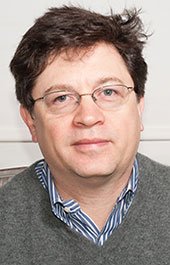
Clinical Director
Chief, Autoimmunity Branch
National Institute of Arthritis and Musculoskeletal and Skin
*No longer with NIH
A native New Yorker, Richard came to NIH after undergraduate studies at Yale and M.D./Ph.D. training at the University of Pennsylvania. Richard’s interest in immunology, autoimmunity, and apoptosis began at Penn where he trained with Mark Green and John Reed in immunology, studying the effects of the anti-apoptotic protein bcl-2 on T cell development. He trained in Internal Medicine and Rheumatology at Hospital of the University of Pennsylvania, and then moved to the NIH to do postdoctoral training 1996, where he worked in Michael Lenardo’s laboratory in NIAID studying the molecular basis of autoimmunity in the Autoimmune Lymphoproliferative Syndrome (ALPS). In 2001, Richard moved to the NIAMS IRP where he directs a lab focused on understanding the pathogenesis and treatment of autoimmune and inflammatory diseases at the molecular level, with the TNF family of cytokines as a special area of interest. Since 2010, in his role as Clinical Director, he directs the NIAMS IRP clinical research program, which comprises an ACGME-certified rheumatology fellowship training program, advanced training of physician-scientists, and managing natural history and experimental clinical trials in both rare and common rheumatic diseases. Outside of the lab, Richard enjoys playing the violin, which he has done since the age of four, in the NIH Philharmonia and other venues, and spending time with family at home and abroad.
Amy Swain, Ph.D.
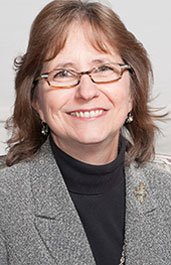
Chief
Biomedical Technology Branch
Division of Biomedical Technology, Bioinformatics, and Computational Biology
National Institute of General Medical Sciences
*No longer with NIH
Dr. Amy Swain is the Chief of the Biomedical Technology Branch in the Division of Biomedical Technology, Bioinformatics, and Computational Biology (BBCB) at the National Institute of General Medical Sciences (NIGMS). In addition to leading the branch, she manages a portfolio of awards in the areas of technology for structural biology and is a key contact for NIH synchrotron activities.
Dr. Swain came to NIGMS at the end of 2011 where, shortly after her arrival, she served as the Acting BBCB Division Director for a year. Before that, Dr. Swain was at the NIH’s former National Center for Research Resources where, since 2010, she served as Acting Director of the NCRR Division of Biomedical Technology after a year as Deputy Director of that division. During her tenure as Program Director at NCRR, in addition to managing her structural biology technology portfolio, Dr. Swain coordinated the Center’s small business grant program for several years. Prior to coming to NIH in 1999, she was a principal scientist at Hoffman-La Roche, Inc., where she worked in the area of structure-based drug design.
Dr. Swain has a background in macromolecular crystallography. She performed post-doctoral research at the National Cancer Institute’s Macromolecular Crystallography program. She earned a Ph.D. in chemistry from the University of South Carolina and a B.S. in biology from Frostburg State University.
Anne Sutton Tatem, MPA
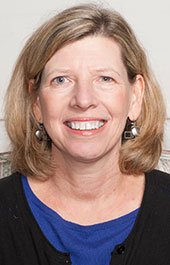
Senior Legislative Analyst
Office of Legislative Policy and Analysis
Office of the Director
*No longer with NIH
Anne Sutton Tatem joined the NIH Office of Legislative Policy and Analysis (OLPA) within the Office of the Director, NIH, in September 2010, and served as Acting Deputy Director from January 2013 – March 2014. She is currently serving as a Senior Legislative Analyst in OLPA. An employee of NIH for over 20 years, Anne previously served as the Section Chief, Planning Section, Strategic Planning and Evaluation Branch, National Institute of Allergy and Infectious Diseases. From January 1999 through October 2008, Anne held two positions at the National Cancer Institute (NCI), one with the NCI Office of Science Planning and Assessment and a second within the Division of Cancer Biology, where she was involved in scientific coordination and initiative development, managed special projects, and served as the division planning and communications point of contact. In her early years at NIH, Anne served as the Legislative Liaison for the National Institute of Arthritis and Musculoskeletal and Skin Diseases and as a legislative analyst within the Division of Legislative Analysis (now OLPA) in the Office of the Director, where she began her career at NIH in 1989. Anne has three amazing children (ages 25, 23, and 18) who represent her most significant accomplishments.
A native of Indiana, Anne is a 1980 graduate of Purdue University and earned her Master of Public Affairs (MPA) from the School of Public and Environmental Affairs, Indiana University, Bloomington, Indiana, in 1985.
Timothy J. Tosten, MPA
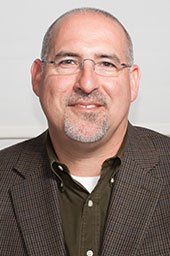
Executive Officer
Center for Scientific Review
Current Position: Acting Director, Office of Research Services. Updated bio not available at this time.
Mr. Timothy J. Tosten, MPA, is currently the Acting Director, Office of Research Services, as well as Associate Director, Program and Employee Services, in the Office of Research Services. He previously held the position of Executive Officer of the Center for Scientific Review (CSR), a position he held for over three years. He came to this position after serving for four years as the Executive Officer of the Fogarty International Center.
Tim came to the NIH in 1993 as a Presidential Management Intern dedicated to the Office of Research Services. Over the next 12 years, he progressively moved up in the organization from an intern, to Management Analyst, to Special Programs Manager, to Chief of the Worksite Enrichment Programs Branch, to finally the Director, Division of Employee Services. He left the ORS to become the Associate Director for Administration for the Division of Intramural Research Program, National Institute of Mental Health, where he oversaw all of the administrative operations of the NIMH intramural program.
Tim has been appointed to many committees across the NIH, including the ORS Advisory Committee, the NIH Risk Management Committee, the NIH Child Care Board, the IDAP Leadership Council, and the Administrative Training Committee (ATC). During his seven-year tenure on the ATC, he was fortunate in being able to lead the creation of the NIH Administrative Fellows Program, for which he received one of his four NIH Director’s Awards.
Tim earned his Bachelor of Science degree from the University of Maryland Baltimore County in 1991, and his Master of Public Administration from the University of Baltimore in 1993.
Chad Wysong
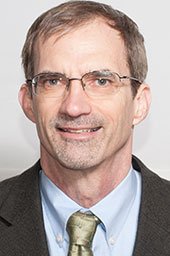
*No longer with NIH
Chad Wysong is the Deputy Executive Officer for the National Institute on Deafness and Other Communication Disorders (NIDCD). He received a Bachelor of Science and a Master of Science in Social Work from the University of Texas at Austin. During his 12 years at NIH Chad has served as NIDCD’s Management Analysis Officer in 2007 and as a Budget Analyst at the Institute from 2003-2005. He was the Deputy Budget Officer at the National Institute of Diabetes and Digestive and Kidney Diseases (NIDDK) in 2006. He started his career at NIH in 2001-2003 as a Presidential Management Intern.
Chad works with NIDCD’s Executive Officer to lead NIDCD’s administrative functions. He established the NIDCD Administrative Strategic Plan 2011. Since then the plan has provided the Institute with a framework for enhancing existing administrative services and developing new tools and services in support of the Institute’s research mission.
Mr. Wysong is a member of the NIH Sustainability Management Team and in 2012 he co-led the Freezer Initiative that reduced the number of old, inefficient ultralow freezers across NIH while replacing them with more energy efficient units. He is also a committee chair for Deputy Executive Officers Roundtable and a member of the Presidential Management Fellows Subcommittee.
Chad is an in-house trainer for Crucial Conversations and trained staff in NIDCD, other Institutes, and intern groups. He successfully mediated 5 disputes for multiple agencies as a Department of Health and Human Services Sharing Neutrals mediator. Chad graduated from the Federal Executive Institute in 2011. He has been a member of NIH Toastmasters since 2010 and served as Education Vice President.
Chad Served on the Board of the NIH Recreation and Welfare Association (R&W) for 3 years and as President for 2 years, and helped develop a partnership with the Department of Health and Human Services and the NIH R&W.
Outside of work Chad enjoys oil painting, hiking in the National Parks, and walking his rescue dog.
2013 ExLP Participants
Cathleen Cooper
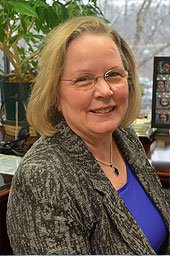
*No longer with NIH
Dr. Cathleen Cooper is the Director, Division of Receipt and Referral (DRR) at the Center for Scientific Review (CSR). She came to this position after serving as Chief of the Oncology 1: Basic Translational Integrated Review Group. Earlier in her NIH career, she spent eight years as a Scientific Review Officer for CSR’s Experimental Immunology (EI) and Transplantation, Tolerance, and Tumor Immunology (TTT) study sections as well as a Referral Officer in DRR. Her scientific career started with a baccalaureate degree in bacteriology from the University of California, Los Angeles. Dr. Cooper then earned a Ph.D. in pathology at the University of Southern California where she studied naturally occurring delayed-type hypersensitivity reactions to mycobacteria. She did her postdoctoral training in molecular immunology at Columbia University, with a focus on the molecular mechanisms that regular gene expression. Her first faculty position was assistant professor in the Department of Cell Biology and the Cancer Center at the University of Massachusetts Medical School. There, she led a research team studying the molecular regulation of early events in hematopoietic development with special emphasis on B lymphocyte and neutrophil differentiation. Her work was funded by NIH, American Cancer Society, and private foundations.
George Coy
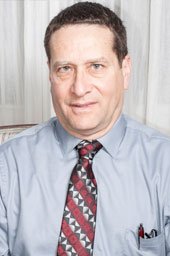
Budget Officer
National Institute of Dental and Craniofacial Research
Current Position: Chief, Office of Financial Management and Budget, National Center for Advancing Translational Sciences. Updated bio not available at this time.
Work History:
2013 - Acting Executive Officer, NIDCR
1999 to 2012 - Budget Officer, NIDCR
1991 to 1999 - Budget Officer, NIA
1985 to 1991 - Budget Analyst; NCI
1980 to 1985 - Budget Analyst; OD, NIH
1979 to 1980 - Management Intern; OD, NIH
1974 to 1979 - Biochemist, NCI
George is currently the Acting Executive Officer for the National Institute of Dental and Craniofacial Research. Following graduation from Virginia Tech with a degree in biology, he started his career at NIH in the mid 70’s at NCI’s Laboratory of Tumor Cell Biology while pursuing a graduate degree. He transitioned to management via NIH’s Management Intern Program and since then served several Institutes in the budget arena. George currently serves NIDCR as its Acting Executive Officer. Outside the office, he enjoys his time with family, friends, and outdoor activities.
Dennis M. Dixon
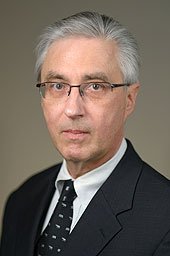
Chief of the Bacteriology and Mycology Branch of the
Division of Microbiology and Infectious Diseases
National Institute of Allergy and Infectious Diseases
Dennis is Chief of the Bacteriology and Mycology Branch of the Division of Microbiology and Infectious Diseases, National Institute of Allergy and Infectious Diseases, National Institutes of Health. He is trained as a microbiologist with experience in academia, industry, and the clinical microbiology laboratory. His focus areas at the NIAID include antimicrobial resistance, health care associated infections, vector borne and zoonotic bacterial diseases, and fungal diseases. Goals are to address public health needs through research that will improve diagnosis, prevention or treatment. He serves on numerous federal advisory panels on Select Agents, the National Science Advisory Board for Biosecurity in various capacities, and the domestic and international Task Force on Antimicrobial Resistance.
He received his doctorate in microbiology from the Medical College of Virginia in 1978. He held academic positions at Loyola College in Baltimore, the University of Maryland Medical School and Albany Medical College. He served as a Visiting Scientist at Hoffman LaRoche in Switzerland, and as Director for the Mycology Reference Laboratory at the New York State Department of Health. He is a member of the American Academy of Microbiology.
His hobby is regular exercise, and likes to start each day in the gym with a combination of core strength and cardiovascular exercises. He also frequents local physical therapy practices. Some day he may recognize a connection between the two.
Yang Fann
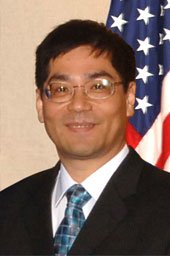
Director, IT and Bioinformatics
National Institute of Neurological Disorders and Stroke
Dr. Fann was previously a Science Task Manager at NIEHS, where he managed a team of scientific specialists who provided research support to the IRP program before joining NINDS in 2002 as the Director of the Intramural IT and Bioinformatics Program. Dr. Fann oversees information technology support services and infrastructure and develops biomedical informatics research programs. Since he joined NINDS, Dr. Fann has been looking for ways to reduce burdens on scientific administration and IT security for investigators. For example, he created the Clinical Informatics and Management System (CIMS), which includes the Protocol Tracking and Management System (PTMS), which has been adopted by the NIH Institutional Review Board (IRB) to electronically manage the protocol submission, review and approval process, which significantly improves the efficiency of clinical research management. Currently, PTMS is used by many institutions in the US, as well as foreign countries, such as Taiwan, South Africa, Vietnam, Philippine, Brazil, India, and China.
In 2010, his creation of the Purchasing On-line Tracking System (POTS) to streamline and transform scientific procurement administration was quickly adopted by the NIH community and won him the first ever “HHS Innovates Award,” presented to him by the Secretary of HHS. In addition to his roles and responsibilities at NINDS, Dr. Fann serves on many NIH advisory committees including the Medical Executive Committee IT Subcommittee and the Biomedical Translational Research Information System (BTRIS) Steering Committee. He is currently a Principle Investigator on the Informatics Core of Center for Neuroscience and Regenerative Medicine (CNRM) working on building the informatics infrastructure for the National Traumatic Brian Injury (TBI) Study, in collaboration with the Department of Defense. In addition, his bioinformatics group has been developing several database tools, such as Stem Cell Database and EvoPrinter, to catalyze the neuroscience research.
Recently, Dr. Fann co-led an international collaborative team with Dr. Matthew McAuliffe at the Center for Information Technology (CIT) to build a reusable and sustainable informatics infrastructure known as the “Integrated Biomedical Informatics System” (IBIS) to support and catalyze biomedical research. The project was built based on existing applications and tools at NIH for scientific administration, clinical research information management, and biomedical data repository (or data warehouse) with supporting tools such as common data elements, global unique identifiers, and data validations.
In addition to Dr. Fann’s research interests in computational biology, bioinformatics, clinical research informatics, and applying information technology for advancing translational biomedical research, he likes to read, taste various cuisines and travel around the world.
Luigi Ferrucci
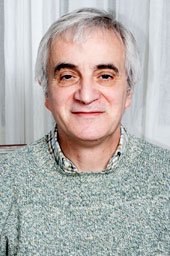
Scientific Director
National Institute on Aging
I was born in Livorno, Italy on April 22, 1954. I have two brothers and one sister. During my childhood, my father was travelling around the world, and although I spent little time with him, he taught me how to be open and enthusiastic to new experiences. My mother was a soul artist, and gave me the love for reading the classics, listening to Opera and cooking and tasting Italian food. When I was in my …teen years, somebody talked to me about the aging of the population. I was completely captured by the idea that while few people perceived this silent revolution, aging was changing everything in our society. I decided to study aging and I still do with great passion. I was in Medical School in Florence, Italy where I obtained an MD in 1980, a Specialty in Geriatric Medicine in 1983, and a PhD in Biology and Pathophysiology of Aging in 1985. Working as a Geriatrician, I realized that research was my passion, but very little research on aging was done in Italy during those years. To overcome this limitation, from 1986 to 2002, I spent 3 months in the US and 9 months in Italy every year. In 2002 I moved to the US, to become the Director of the Baltimore Longitudinal Study of aging and in 2011 the Scientific Director of NIA. I absolutely love my job, in spite and often because of the many challenges. I want to find the secret of aging, and use this knowledge to help people age better, avoiding the burden of physical and cognitive impairment. Beyond working, I like running, spending time with my children in Italy, listening to music, playing tennis, making clay pots, and cooking for my friends.
Isabel Garcia
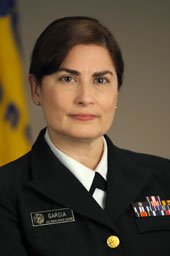
Deputy Director
National Institute of Dental and Craniofacial Research
*No longer with NIH
I serve as the Deputy Director of the National Institute of Dental and Craniofacial Research, a role in which I share responsibility with the director in leading and managing all of NIDCR’s programs. I am a career-officer with the U.S. Public Health Service and hold the rank of Rear Admiral - Lower Half.
I received a Bachelor degree in Science from the University of Mary Washington, a Doctor in Dental Surgery from the Medical College of Virginia, and a Master in Public Health from the University of Michigan where I also completed a Residency in Dental Public Health. My experience spans over 30 years of work in dental public health, research and administration at the local, state and national levels. Since joining NIDCR in 1995, I have held several positions within the Institute including acting institute director, director of science planning, health policy, legislative, and evaluation, and special assistant for science transfer. Prior to my career in the Public Health Service, I worked in the private sector as a clinician and later held senior health management positions in Virginia and Ohio. I am a Diplomate of the American Board of Dental Public Health and a member of the American College of Dentists. In addition to my duties as Deputy, I direct NIDCR’s Residency Program in Dental Public Health. I was fortunate to play a role in a Presidential and Secretarial health diplomacy mission involving the USN Comfort, a hospital ship that provided health care to underserved people in 12 countries in Latin America.
Gary Gibbons, M.D.
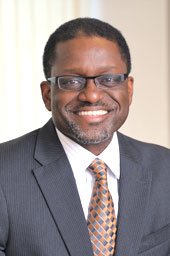
Director
National Heart, Lung, and Blood Institute
Gary H. Gibbons, M.D., serves as the Director of the National Heart, Lung, and Blood Institute, NIH’s third largest institute, with an annual budget of more than $3 billion and a staff of 917 employees. Dr. Gibbons’ research program is recognized for its discovery science related to cardiovascular health of minority populations. His laboratory is currently focused on discovering novel, ancestry-specific mediators of vascular disease. Originally from Philadelphia, he earned his undergraduate degree from Princeton and graduated magna cum laude from Harvard Medical School. He completed his residency and cardiology fellowship at Brigham and Women’s Hospital in Boston. Prior to joining Morehouse School of Medicine in 1999, he was a member of the faculty at Stanford University from 1990 until 1996, and Harvard Medical School from 1996 until 1999. Throughout his career, Dr. Gibbons has received numerous honors, including election to the Institute of Medicine of the National Academies of Sciences; selection as a Robert Wood Johnson Foundation Minority Faculty Development Fellowship awardee; selection as a Pew Biomedical Scholar by the Pew Charitable Trusts; and recognition as an Established Investigator of the American Heart Association. Dr. Gibbons is married with three children and is currently enjoying a newly acquired ‘empty-nest’ status with his wife. He enjoys reading, listening to jazz, playing golf, and singing gospel music in his church choir.
Valerie Gill
*No longer with NIH
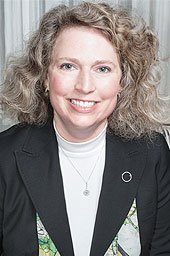
Director, Client Services Division
Office of Human Resources
Office of the Director
Current Position: Detail: Acting Associate Deputy Assistant Secretary. U.S. Department of Health and Human Services. Updated bio not available at this time.
Valerie Gill joined the National Institutes of Health in April 2008 as the Director of the Client Services Division for the Office of Human Resources. In this role, Valerie has stewardship responsibility for NIH’s Recruitment, Classification, Pay Setting, Delegated Examining, and Commissioned Corps support programs. Her responsibilities include providing leadership and direction to HR professionals that serve as the first and primary point of contact for IC leadership, supervisors, and employees in the delivery of NIH HR operational services.
Prior to joining NIH, Valerie spent 17 years in the Intelligence Community supporting the National Geospatial-Intelligence Agency and the Central Intelligence Agency. She served in a variety of leadership positions and directed a broad range of Human Capital programs such as Recruitment, Policy Development, Employee Relations, HR Consulting, Employee Development, Organizational Development, and Workforce Planning. Valerie holds an undergraduate degree in Business from Towson University and a Master’s degree in Human Resource Management from The George Washington University. Since joining NIH, her honors include receiving the NIH Director’s Award for transforming the NIH recruitment process and a group award for efforts to retain and strengthen the use of T42 at NIH.
Chris Long

Deputy Associate Director for Management
National Institute of Environmental Health Sciences
*Retired
Chris is the Associate Director for Management (Executive Officer) for the National Institute of Environmental Health Sciences and National Toxicology Program. In this role, he is responsible for providing a full spectrum of administrative services to the Institute, serving 1,400 people and Institute programs funded at $750+ million per year. He directs the NIEHS Office of Management, a $40 million annual operation staffed by 100 federal employees and 200 contractors. Chris has served in this role since 2015, following his tenure as Deputy Executive Officer starting in 2007.
Previously, Chris spent 22 years with the U.S. Environmental Protection Agency. From 1992 to 2007, he directed Facilities Development, as well as Health, Safety, and Sustainable Development, for EPA at Research Triangle Park, N.C. He led the program to design, construct, and occupy EPA’s largest research facility and he launched EPA’s first comprehensive sustainability program. From 1987 to 1992, Chris supervised budgeting, facilities, and general administration programs serving more than 1,500 people at EPA/RTP. He joined the Agency in Washington, D.C. in 1985, working as an analyst for EPA’s Superfund and waste programs. Chris began his federal career as a Presidential Management Intern in 1984 working for the U.S. Department of Justice. Earlier, he served as a District Executive for the Boy Scouts of America and managed housing programs for the University of North Carolina at Chapel Hill.
Chris received his Master of Public Administration, and B.A. in Communication and Psychology, from UNC-Chapel Hill.
David E. Michael, J.D.
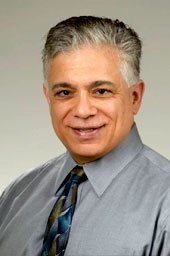
Deputy Ombudsman
Office of the Ombudsman/Center for Cooperative Resolution
David E. Michael, J.D., is the Deputy Ombudsman at the Office of the Ombudsman/Center for Cooperative Resolution of the National Institutes of Health. David works with individuals and groups to identify concerns, challenge assumptions, and explore possibilities to achieve constructive outcomes. The Office of the Ombudsman offers coaching, facilitated conversations, group facilitation, training, and referrals, to senior executives, scientists, fellows, managers, employees, and others at NIH.
In 2010, David was a Commissioner with the Federal Mediation and Conciliation Service, where he facilitated organizational conflict resolution and training at federal agencies and abroad. As the principal of Consensusworks from 2008 – 2010, David consulted with government and nonprofits, and provided technical assistance in alternative dispute resolution to judicial and community leaders throughout Europe, Asia, and South America. David served as the Executive Director of the Northern Virginia Mediation Service from 2005 to 2008, a nonprofit that provides trainings and facilitates community-based conflict resolution. He earlier served as the Director of the Multi-Door Dispute Resolution Division of the Superior Court of the District of Columbia (“Multi-Door”) from 1997 to 2004, which mediates over 7,000 cases annually in civil, landlord-tenant, small claims, tax, probate, workplace, family, community, and child protection cases. David formerly was a partner with the consulting group Conflict ReSolutions, and previously practiced law in the federal government and at a Washington, DC law firm.
Away from work, David enjoys walking, bicycling, swimming, and strength training. He can easily be drawn into discussions of politics, current events, and faith, and is interested in all things Mac and how technology can better connect our communities. In the physical world, David lives in Fairfax, Virginia, where he enjoys working with nonprofit organizations, taking on large and small home improvement projects, and spending time with his wife and two daughters.
Kathleen O'Sullivan, M.S., M.B.A.
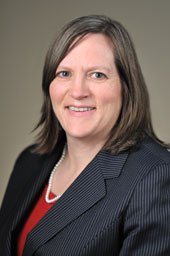
Executive Officer (EO) and Director
Office of Management (OM)
National Heart, Lung, and Blood Institute
Kathleen (Kate) O'Sullivan, M.S., M.B.A., is the Executive Officer (EO) and Director of the Office of Management (OM) at the NHLBI. She is also Acting Director of the NHLBI's Information Technology and Applications Center (ITAC). Kate brings to NHLBI her senior-level management and administrative expertise gained during her nearly 25-year career in the Department of Transportation and the U.S. Air Force, as well as her formal education in engineering science, national resource strategy, and business administration. She joined the NHLBI in September 2011.
As EO and Director of OM, Kate oversees managerial and administrative support to the Institute, including financial management, workforce management, management analysis, policy development, emergency preparedness, freedom of information and privacy, and a variety of other administrative services. Her efforts help staff find ways to increase efficiency and "work smarter" as the Institute faces difficult budget times.
As Acting Director of ITAC, Kate oversees core IT operations for the Institute. She collaborates with intramural, extramural, administrative, and executive staff to assess, prioritize, and strategically resource projects. Her responsibilities include overseeing the IT service desk, computer maintenance, software development, technical management of the NHLBI intranet and public-facing websites, and infrastructure management. She is also involved in making cost estimates and ensuring compliance with federal/HHS/NIH/NHLBI security policies.
Kate came to the NHLBI from the Federal Motor Carrier Safety Administration, a regulatory and grant-making agency where she served as the Chief Financial Officer from 2007-2011, as well as the Acting Associate Administrator for Administration from 2008-2011. Prior to that, she had been appointed Chief Financial Officer of the Air Force Real Property Agency, where her responsibilities included leading all financial management programs, safeguarding resources, ensuring legal adherence, establishing management control processes, and budgeting and executing a $150 million portfolio. From 1987-2004, she served in several positions for the Air Force in Texas and Virginia, moving up to Deputy Division Chief and Supervisory Logistics Management Specialist. During this time, she received multiple performance awards and two Meritorious Service Medals.
Kate earned a Bachelor of Science degree in engineering from Trinity University in San Antonio, Texas, in 1986. She then began her career with the Air Force as an electronics engineer. In 1999, she was selected to study for her M.B.A. at The University of Texas at Austin. From 2004-2005, she returned to school full-time at the Industrial College of the Armed Forces in the National Defense University and earned a Master of Science in national resource strategy.
Kate lives in Alexandria, VA with her husband and four daughters.
Ellen Rolfes

Executive Officer
Director, Division of Management
National Human Genome Research Institute
Ellen Rolfes is the Executive Officer and Director of the Division of Management at the National Human Genome Research Institute (NHGRI) at the National Institutes of Health (NIH). She received her Bachelor’s and Master’s degrees in Human Resources from the University of Maryland University College. She has held a number of positions in her twenty-seven year career at NIH, including serving as an Administrative Technician in the Office of Human Resources within the NIH Office of the Director, and as a Personnel Assistant and Personnel Management Specialist within the National Heart, Lung and Blood Institute. Ellen joined NHGRI in 1996 as a Human Resources Specialist, and later became the Special Assistant to the NHGRI Scientific Director. In this latter role, she established and led the NHGRI Professional Development Office until assuming the role of Director of the Office of Intramural Management in 2007. Ellen became NHGRI’s first Deputy Executive Officer and Chief, Management Analysis and Workforce Development Branch in 2010. In 2014, she was appointed the NHGRI Executive Officer and Director, Division of Management. Ellen serves on many trans-NIH committees, including the Administrative Training Committee, the Presidential Management Fellows Program Subcommittee, the Management and Budget Working Group, the HR Advisory Council, and the HR CIVIL Advisory Council.
Ellen is married and lives in North Potomac with her two children (ages 17 and 15) and three rescue dogs. She enjoys spending time with her family hiking, traveling to new places, and going to the movies.
Douglas Sheeley
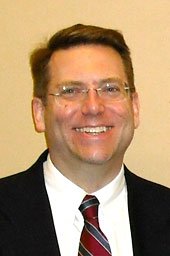
Program Director
National Institute of General Medical Sciences
*Current Position Deputy Director, Office of Strategic Coordination, OD.
Updated bio not available at this time.
I have been at NIH for twelve years, the first 11 at NCRR and now as a Senior Scientific Officer at the National Institute of General Medical Sciences (NIGMS), in the Division of Biomedical Technology, Bioinformatics, and Computational Biology (BBCB). I presently direct three complex, interdisciplinary programs, two in NIGMS and one in the Common Fund. All are focused on development of experimental and computational technologies, covering a broad range of science from molecular structure to epidemiology. My scientific experience has been in bioanalytical chemistry, particularly proteomics and glycomics, and the development and translational application of advanced analytical technologies. At NCRR I led projects and committees to improve communication, business processes, and staff training. I enjoy working in new areas, and teaching. I teach a short course in biomedical mass spectrometry each year with former colleagues from Glaxo Wellcome, where I spent seven years before coming to NIH.
Janet Shorback

*No longer with NIH
Janet Shorback is the Director of the Office of Strategic Planning and Management Operations. In 2002, she served as the Special Assistant to the Executive Officer, at the Center for Scientific Review where she began her NIH career in 1999 as a Presidential Management Intern. Before her NIH career began, Ms. Shorback worked for the Air Force, as an engineer in a variety of fields to include industrial, environmental and general engineering.
During her tenure with NIH, Ms. Shorback served as the NIH Assistant Director for Management, has co-chaired the Mandatory Training Committee, as well as serving on many on-going committees, such as the Strategic Administrative Management Planning Committee, the Administrative Data Working Group, and co-chairing the Data for Decision Making Administrative Strategic goal.
Ms. Shorback holds a B.S. in Industrial Engineering from Texas A&M University and an M.A. from Old Dominion University in Public Administration. Her honors include receiving several team member NIH Director’s Awards, Individual and Team OD Director’s Award and numerous special act awards. Ms. Shorback is married and has three children. She likes cooking, music and playing golf.
Phil Smith
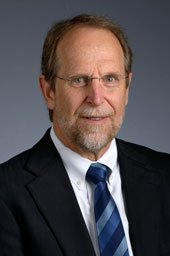
*No longer with NIH
Phil was born in Ft. Meade, Maryland. His father was a career military officer so he never spent too long in any one place. In addition to stops in many states, he spent two years in Japan and three years in Germany where he went to high school. He spent many summers visiting his grandparents’ farm outside of Charlottesville. After graduating from Virginia Tech in with degrees in Psychology and Biology he spent 4 years building houses around Charlottesville, Virginia. Phil then went to graduate school at the University of Virginia where he received his degree in Anatomy and Cell Biology. He continued his work in neuroendocrinology as a post-doctoral fellow at the University of Alabama Birmingham. He stayed at UAB as an instructor but eventually succumbed to the need to head north. He was an assistant professor at the Uniformed Services University of the Health Sciences where he talk anatomy and embryology while continuing his research on regulation of pituitary function. Phil has three wonderful kids all of whom survived his parenting and are now contributing to society on their own. Phil is married to a fantastic woman, and loves to do all manner of outdoor activities with her. He plays soccer whenever he can and loves gardening, camping, hiking, and just being outdoors. Phil really enjoys working with people and believes NIH is the ideal way for him to make a contribution to science. In his current position he deals with a wide range of scientific disciplines and is always looking for new opportunities to learn. He really hopes to see major advances in the treatment and prevention of obesity and diabetes before he retires.
Catherine Y. Spong, M.D.

*No longer with NIH
Associate Director for Extramural Research
Director, Division of Extramural Research
Eunice Kennedy Shriver National Institute on Child Health and Human Development
Dr. Catherine Spong is the Associate Director for Extramural Research and Director, Division of Extramural Research at the Eunice Kennedy Shriver National Institute of Child Health and Human Development, National Institutes of Health, a position she was recently appointed to in September 2012. Prior to this she was the Chief of the Chief of the Pregnancy and Perinatology Branch at the Eunice Kennedy Shriver National Institute of Child Health and Human Development, National Institutes of Health, a position she held since January of 2001.
In this role, Dr. Spong oversees the Institute’s extramural research programs and manages scientific activities in maternal and child health, family health and well-being, and medical rehabilitation. The Institute’s extramural research activities include more than 3,100 projects and involve 130 staff members. In addition to serving as the NICHD Director’s principal advisor on extramural scientific and policy issues, Dr. Spong is the Executive Secretary of the National Advisory Child Health and Human Development Council.
Dr. Spong received B.A.s in biology and chemistry and her M.D. from the University of Missouri-Kansas City medical School’s Six Year Medical Program in 1991. She completed an internship and residency in obstetrics and Gynecology at Harbor-UCLA Medical Center in Los Angeles, California and subspecialty training in Maternal-Fetal Medicine at Georgetown University and the National Institutes of Health. She is board certified in maternal-fetal medicine and obstetrics and gynecology. Dr. Spong is also the Associate Editor of Obstetrics & Gynecology and an Editor of William’s Obstetrics, Management of High Risk Pregnancy, Protocols of High Risk Pregnancy and the newly published Stillbirth: Prediction, Prevention and Management. She is a Fellow of the American College of Obstetricians and Gynecologists and a member of the Society for Maternal Fetal Medicine, Society for Gynecologic Investigation, Society for Neuroscience, and Perinatal Research Society. Her research interests focus on maternal and child health, emphasizing prematurity and fetal complications. In her position as Program Scientist for the NICHD Maternal Fetal Medicine Units Network, a network of 14 sites in the US that performs clinical trials in high risk pregnancies and for the MOMS trial, the maternal-fetal surgery trial on the management of Myelomeningocele, Dr. Spong oversaw many advances in that resulted in changes in clinical practice. In addition, Dr. Spong is interested in the developing fetus and neuroprotective agents to prevent fetal injury for which she is the holder of several patents. She has received numerous research and Young Investigator awards, is in Who’s Who in America, received the Achievement Award from the Society for Maternal Fetal Medicine, two NIH Director’s Awards, the UMKC Alumnus of the Year award and a Surgeon General’s Certificate of Appreciation for her work on prematurity. She has published over 250 peer-reviewed papers. Dr. Spong has organized numerous national and international conferences including NIH consensus conferences on Cesarean Delivery on Maternal Request, Vaginal Birth after Cesarean Delivery and Gestational Diabetes. Dr. Spong has also been national television and radio including The Early Show, the Diane Rehm Show, NPR’s All Things Considered, CNN and Voice of America discussing women’s health and pregnancy topics.
Phil Wang, M.D., Dr.P.H.
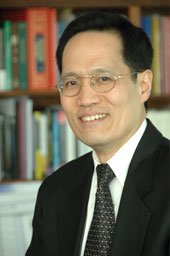
Deputy Director
National Institute of Mental Health
*No longer with NIH
Philip Wang, M.D., Dr.P.H. completed his undergraduate degree in biochemistry and molecular biology, medical school, psychiatry residency and chief residency, as well as masters and doctoral degrees in epidemiology, all at Harvard University. Presently, he serves as the Deputy Director of the National Institute of Mental Health (NIMH). Prior to joining NIMH, Dr. Wang served on the faculty at Harvard Medical School, where he conducted national and global psychiatric epidemiology investigations, pharmacoepidemiologic studies of off-target drug effects, as well as clinical trials testing new interventions. He is an author of approximately 180 scientific publications.
Dr. Wang has been a member of several NIMH and NIH Study Sections. He has served on the FDA's Psychopharmacologic Drug Advisory Committee, Medical Devices Advisory Committee (Neurological Devices Panel) and Endocrinologic and Metabolic Drugs Advisory Committee. He chaired the WHO World Mental Health Survey Initiative’s Services Research work group. He has also consulted on the American Psychiatric Association's Task Force developing DSMV and workgroups developing evidence-based treatment guidelines.
Since moving to Washington, he's spent most of his free time coaching his daughter's soccer, basketball, and softball teams.
Susan Weiss

Associate Director for Scientific Affairs
Office of the Director
National Institute on Drug Abuse
Current Position: Director, Division of Extramural Research. National Institute on Drug Abuse. Updated bio not available at this time.
Dr. Weiss is the Associate Director for Scientific Affairs at the National Institute on Drug Abuse (NIDA), where she advises the NIDA Director and Deputy Director on a variety of scientific and policy matters affecting NIDA, NIH, and the broader addiction field. She also serves as NIDA’s scientific liaison to NIH, HHS, and other Federal Agencies, and provides guidance and oversight on scientific matters that relate to program development, training, and science planning. Previously, she was the Acting Director of the Office of Science Policy and Communications and the Chief of the Science Policy Branch, where she provided leadership and oversight for all NIDA’s interactions with its stakeholders—students, researchers, community groups, press, Congress, and more.
Before coming to NIDA, Dr. Weiss served as the Senior Director of Research at the National Mental Health Association (NMHA, now Mental Health America), contributing her scientific expertise and a fresh viewpoint to their strategic planning, public education, and advocacy efforts. Before that, she directed a translational research program in the Biological Psychiatry Branch of the National Institute of Mental Health (NIMH), which studied the evolving nature of psychiatric and neurologic illnesses—the ultimate goal of which was to develop novel treatment options for patients with affective, anxiety, and substance use disorders.
Dr. Weiss has received many awards over the years, but among the most important to her were the NIH Plain Language Awards, NIH Director’s Awards, and an Emmy from the Academy of Television Arts and Sciences (2007), for her contributions to the HBO Addiction Project—a nine-part documentary series that attracted a large public audience and that lives on as an informative website to help people understand and conquer addiction. All of these achievements reflect the extraordinary collaboration of staff in the Science Policy and Communications Office, who worked together to create and disseminate products that were scientifically accurate, highly innovative, and able to reach NIDA’s multiple target audiences.
Dr. Weiss’ most rewarding, yet challenging work has been at the intersection of neuroscience research, policy matters and communication, which has required her to navigate a path forward through the sometimes contentious science and policy issues specifically related to NIDA’s mission and involving stakeholders at the highest levels (e.g., the White House). The distinctiveness of NIDA’s public health mission—to reach into people’s lives to encourage them to stop doing something, wading through such issues as stigma, illegality, and public judgment—requires consideration and communication of not only the public health importance of NIDA’s scientific findings, but also their political and social implications. How NIDA explains its research to the lay public, scientific professionals, and political leaders is crucial to its ability to influence people of diverse backgrounds and beliefs and to carry out the mission to improve the public health. Dr. Weiss looks forward to continuing to help NIDA meet the challenge of reducing the devastating impact that substance abuse has on individuals, their families, communities, and our society at large.
Betsy Wilder, Ph.D.
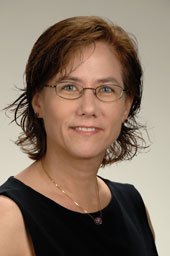
Director
Office of Strategic Coordination
Office of the Director
Betsy Wilder grew up in small towns across Arkansas, the daughter of an elementary school teacher and a Methodist minister who were active participants in the civil rights movement. She majored in chemistry at Hendrix College in Arkansas and decided on a research career after participating in an NSF-funded summer research program there. She received her Ph.D. from Northwestern University in Molecular Biology and subsequently did postdoctoral research at Harvard Medical School. She was appointed to the faculty of the University of Pennsylvania, where she led a lab which focused on Wnt signal transduction during Drosophila development. She came to the NIH in 2002, hoping to have an impact on science more broadly. Her programs first at NIDDK and now in the OD certainly provide this opportunity. She has two amazing daughters who represent her most significant accomplishments and who, along with her wonderful husband and two crazy dogs, keep her sane, balanced, and entertained. In addition to spending time with them, Betsy enjoys riding bicycles, working in the garden, reading the paper and doing the daily crossword puzzle.
Dorit Zuk, Ph.D.
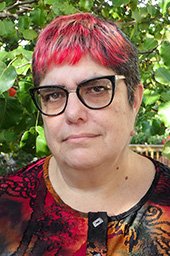
Deputy Director
National Institute of General Medical Sciences
Dorit Zuk, Ph.D., is the deputy director of the National Institute of General Medical Sciences (NIGMS), which supports basic research that increases our understanding of biological processes and lays the foundation for advances in disease diagnosis, treatment, and prevention. Additionally, to ensure the vitality and continued productivity of the research enterprise, NIGMS provides leadership in training the next generation of scientists, enhancing the diversity of the scientific workforce, and developing research capacity throughout the country.
Dorit is a molecular biologist whose research has focused on muscle development and RNA metabolism. She joined NIGMS as director of the Institute’s Division of Genetics and Molecular, Cellular, and Developmental Biology in January 2016. Prior to joining NIGMS, she served as director of the Office of Policy, Communications and Strategic Alliances at NIH’s National Center for Advancing Translational Sciences. She previously served as the science policy advisor to the NIH deputy director for extramural research. Zuk came to NIH in 2007 as a science and technology policy fellow of the American Association for the Advancement of Science. In 2008-2009, she served as a program officer for science policy and Hellman Fellow at the American Academy of Arts and Sciences. Zuk began her policy career after working in scientific publishing, serving as the deputy editor of the journal Cell from 2000 to 2002 and as the editor of the journal Molecular Cell from 2003 to 2007. She earned a B.Sc. in biology from Tel Aviv University and an M.Sc. in biology and a Ph.D. in cell biology from the Weizmann Institute of Science.
2012 ExLP Participants
Stefano Bertuzzi

*No longer with NIH
Director
Office of Science Policy, Planning and Communications
National Institute of Mental Health
Dr. Bertuzzi is the Director of the Office of Science Policy, Planning, and Communications (OSPPC) at the National Institute of Mental Health (NIMH). In this capacity, Dr. Bertuzzi advises the NIMH Director in planning and implementing a comprehensive agenda for national mental health research. Dr. Bertuzzi oversees the Institute’s principal resource for mental health policy analysis, strategic planning, program evaluation, and communications. Dr. Bertuzzi is also responsible for portfolio analysis and management, and scientific disease coding in NIMH. He directs and implements the Institute's communication efforts, including information dissemination, media relations, and science education activities to inform the scientific community and the general public about mental health issues.
Previously, Dr. Bertuzzi was responsible for return on investment analyses in the Office of Science Policy, Office of the NIH Director, U.S. Department of Health and Human Services. In this position, Dr. Bertuzzi advised the NIH Director on a wide range of health science policy matters.
Dr. Bertuzzi has contributed to reforms of biomedical research systems in foreign countries. Under the leadership of former NIH Director Dr. Elias Zerhouni, Dr. Bertuzzi has been the NIH lead in the bilateral working group with the European Commission (Directorate of Research-Health Theme) to achieve a funding reciprocity policy between the EC and the NIH.
Dr. Bertuzzi has widely contributed to the NIH revision of the peer review system and to the development of a public access policy to NIH funded publications. He is the recipient of several NIH Director’s awards, and other national and international awards.
Dr. Bertuzzi received a Master’s degree in Public Health at the Johns Hopkins Bloomberg School of Public Health, and a Ph.D. in Molecular Biotechnology at the Catholic University of Milan, Italy. After a postdoctoral training in the Laboratory of Molecular Neurobiology at the Salk Institute in San Diego, CA., he became a tenured Associate Professor at the Dulbecco Telethon Institute in Milan, Italy. He has authored numerous research publications in neurobiology and science policy, published in top scientific journals. His research activities led to the discovery of a novel family of homeobox genes involved in the regulation of neuronal axon guidance in the visual system.
Elaine Collier, MD
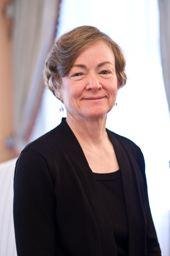
Senior Advisor to the Director for Informatics and Clinical Research
National Center for Advancing Translational Sciences
Elaine is a physician scientist who serves as Senior Advisor for Informatics and Clinical Research at the National Center for Advancing Translational Sciences (NCATS). NCATS was established in December of 2011 with a mission “to catalyze the generation of innovative methods and technologies that will enhance the development, testing, and implementation of diagnostics and therapeutics across a wide range of human diseases and conditions.” In her position, she is responsible for promoting innovation at the interface of biomedical informatics and clinical research. This includes informatics in support of clinical and translational research from data generation through analysis and dissemination of results. She ensures issues of human subjects’ protection and data privacy and confidentiality are acknowledged and addressed in these efforts. In this role, she engages with diverse partners and communities, from healthcare providers, industry, standards organizations, and other government agencies as well as throughout NIH.
Prior to the establishment of NCATS, Dr. Collier served a similar role in the National Center for Research Resources. Previously, Dr. Collier was Acting Chief of the Clinical Immunology Branch and Chief of the Autoimmunity Section in the Division of Allergy, Immunology, and Transplantation at the National Institute of Allergy and Infectious Diseases.
Dr. Collier is a Phi Kappa Phi graduate of Auburn University and an Alpha Omega Alpha graduate of the University of Alabama in Birmingham School of Medicine. She is a Fellow of the American College of Physicians, a member of the American Medical Informatics Association, and the Association for the Advancement of Science. She is board certified in internal medicine and in endocrinology and metabolic diseases. She is a member of the Senior Clinical Staff at the Clinical Center of the National Institutes of Health.
Megan Columbus

Director
Division of Communications and Outreach and NIH Program Manager for Electronic Receipt of Grant Applications
Office of Extramural Research
Office of the Director
Megan Columbus has two main roles at NIH. As Director of the Division of Communications and Outreach for the Office of Extramural Research (OER), Megan communicates with NIH staff, applicants, grantees and media around the world about NIH grants policies, processes and systems. In this role she provides leadership for the development of the OER’s websites, outreach, and resources, including the Rock Talk blog, and she develops communications strategies for the ever changing world of grants administration. Megan is also the NIH Program Manager for Electronic Receipt of Grant Applications. As such she ensures that policy changes, technical development, business process adjustments, and change management activities move forward together to achieve NIH’s goal of requiring electronic submission for all grant applications. In these and other roles, Megan works extensively with HHS and other federal agencies to develop partnerships and help standardize grants administration practices across the federal government. Prior to joining OER, Ms. Columbus supported programs at the National Institute of Alcohol Abuse and Alcoholism.
Donna DiMichele
*No longer with NIH
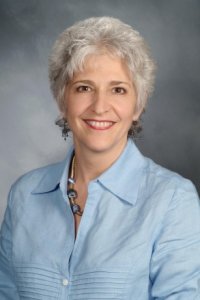
Deputy Director, Division of Blood Diseases and Resources,
National Heart, Lung and Blood Institute
Donna Di Michele, M.D., is the deputy director of the Division of Blood Diseases and Resources (DBDR) at the National Heart, Lung, and Blood Institute (NHLBI), part of the National Institutes of Health (NIH).
Dr. Di Michele specializes in pediatric hematology/oncology and has a special interest in pediatric hemostasis and thrombosis, hemophilia, and rare coagulation disorders. She is trained in biomedical ethics, and has conducted clinical trials and studies with both government and non-government funding.
In her position at NHLBI, Dr. Di Michele is co-leading DBDR efforts related to strategic scientific realignment and scientific workforce development She is also leading or participating in Institute-wide efforts to develop trans-NIH partnerships; review clinical and translational science strategy; build capacity in portfolio analysis; and optimize grants and resources management systems. She has been a member of the Interagency Strategic Plan for Blood Products and Emergency Preparedness Working Group, an HSS-Department of Defense collaboration. She has served two terms on the FDA Blood Product Advisory Committee and continues to consult for the Agency.
Dr. Di Michele received her medical education at McGill University in Montreal, Canada. She came to the NHLBI in January 2010 from Weill Cornell Medical College, where she was a professor in the Departments of Pediatrics and Public Health, and served as the CTSA scientific ombudsman. While at Weill Cornell Medical College, she also directed the Regional Comprehensive Hemophilia Diagnostic and Treatment Center, established a pediatric hemostasis fellowship program, and actively engaged in clinical and research training at all levels. She is a past chair of the Factor VIII, Factor IX & Rare Coagulations Disorders SSC Subcommittee of the International Society for Hemostasis and Thrombosis (ISTH), and remains active in ISTH activities. She currently serves as an Associate Editor for the Journal of Thrombosis and Haemostasis.
Gaya J. Dowling, Ph.D.

Director
Adolescent Brain Cognitive Development (ABCD) Project
National Institute on Drug Abuse (NIDA)
Dr. Dowling is the Director of the Adolescent Brain and Cognitive Development (ABCD) Project at the National Institute on Drug Abuse, part of the National Institutes of Health (NIH). The ABCD Study is the largest long-term study of brain development and child health in the United States. Partnering with educators and parents, scientists with the ABCD study will recruit 10,000 children at age 9-10 and follow them through their teens and into early adulthood to explore how diverse experiences during adolescence shape brain, cognitive, social, emotional, and academic development. Previously, Dr. Dowling served as the Deputy Director of the Office of Science Policy, Engagement, Education, and Communications at the National Heart, Lung, and Blood Institute and the Chief of Science Policy at NIDA. In these positions, she provided scientifically-based information to patients and their family members, health professionals, researchers, policy makers, and other stakeholders to inform policy and promote the prevention and treatment of a wide variety of diseases.
Dr. Dowling earned a Ph.D. in Neurobiology from the University of California at Davis, where she studied the developing nervous system, and subsequently conducted research at the Parkinson’s Institute. Along with publishing multiple scientific papers and a range of multimedia products, Dr. Dowling has earned numerous awards and widespread recognition for her work.
Ivor D’Souza
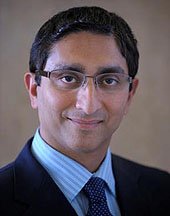
Director
Information Systems
National Library of Medicine
Ivor Leonard D’Souza is Director of Information Systems at the National Library of Medicine (NLM). He directs and manages NLM’s information technology (IT) programs that serve online content to health care professionals, researchers and patients world-wide. Mr. D’Souza is responsible for managing the IT infrastructure at the NLM, which is one of the Federal Government’s largest providers of online Internet content. He serves as the NIH Representative to the DATA.GOV Agency Working Group, the NIH representative to the National Science and Technology Council’s Subcommittee on Standards, the NLM co-representative to Bethesda Hospitals’ Emergency Preparedness Partnership’s Chief Operating Officer Council, and the Co-Chair of the NIH Data Center Standards Working Group.
Mr. D’Souza has a Master’s degree in Electrical Engineering from the Catholic University of America, Washington, D.C., and a Bachelor’s degree in Electrical and Communications Engineering, Mangalore University, India. His research interests include the use of technology for advancing mass casualty response during disasters.
Jill R. Harper, Ph.D.
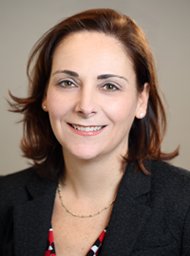
Deputy Director for Science Management,
and Executive Officer
National Institute of Allergy and Infectious Diseases
Jill R. Harper, Ph.D., serves as the NIAID Deputy Director for Science Management. In this position, Dr. Harper provides leadership for scientific, policy, business, and administrative management of the Institute and conducts senior-level interactions with the extramural community, other National Institutes of Health (NIH) components, and the NIH Office of the Director. She also serves as the Executive Officer of NIAID.
Dr. Harper previously served as the Associate Director for Science Management at NIAID as well as the Director of the Office of Biodefense Research and Surety (OBRS), where she led the NIH chemical countermeasures research program and coordinated surety functions, including emergency preparedness, physical and personnel security, and biosurety, across the Institute. Previously, she served as the Chief of the Legislative Affairs and Correspondence Management Branch, in the NIAID Office of Communications and Government Relations, where she led congressional liaison and legislative analysis activities for NIAID.
Prior to joining NIAID in 2002, Dr. Harper was an American Society for Microbiology Congressional Science Fellow. As a Fellow starting in September 2001, she spent a year as a legislative assistant in a U.S. Representative’s office , where she worked on issues related to science and technology and bioterrorism. Dr. Harper earned a B.S. in biology from Oglethorpe University in Atlanta, Georgia, and an M.A. and a Ph.D. in molecular biology from Princeton University.
Rochelle M. Long, Ph.D.

Program Director and Branch Chief
National Institute of General Medical Sciences
Rochelle Long is Chief of the Pharmacological and Physiological Sciences Branch in the Division of Pharmacology, Physiology, and Biological Chemistry at NIGMS. Since 1998, she has overseen the administration of research awards in the clinical areas supported by the institute: pharmacology, toxicology, clinical pharmacology, anesthesia, traumatic and peri-operative injury, sepsis, and wound healing. Dr. Long has handled research and training grants in the areas of receptor pharmacology, signal transduction, drug metabolism and transport, pharmacogenetics, pharmacokinetics, drug delivery, and drug bioavailability. She currently serves as the Program Director and NIH lead contact for the Pharmacogenomics Research Network (PGRN), a nationwide collective of scientists focused on understanding how genes affect the way individuals respond to drugs, in order to implement personalized medicine. Network researchers study the genetic basis of both therapeutic and adverse drug reactions. Their vision is to facilitate scientific discoveries, to demonstrate the value of predictive testing, and to promote the safe and effective use of medications. The PGRN is comprised of research groups, network resources, and trans-network projects and clinical collaborations; Dr. Long manages the network and its governance, consortia and scientific interactions, and the global alliance with the RIKEN Center for Genomic Medicine in Japan. Prior to joining NIH in 1990, Dr. Long served on the faculty in the Department of Pharmacology and Toxicology at the School of Pharmacy, University of Maryland at Baltimore.
Henry Masur

Chief, Critical Care Medicine Department
Clinical Center
Henry Masur MD is Chief, Critical Care Medicine Department, Clinical Center, NIH. This department manages the intensive care unit at the Clinical Center which cares for highly complex, immunosuppressed patients with life threatening complications which develop while on studies at NIH. The department has 90 staff members and has major programs in research, a fellowship program in critical care medicine, and several clinical programs outside the ICU that work with other institutes.
Dr. Masur is trained in internal medicine and infectious diseases at Cornell and Johns Hopkins. He came to NIH in 1982 to serve as Assistant Director of Critical Care Medicine and to develop NIH's first HIV program with Anthony Fauci and Cliff Lane of NIAID, a program that has for 30 years been a collaboration between Critical Care Medicine and NIAID. He became Chief of Critical Care Medicine in 1989.
Dr. Masur is well known as the author of one of the three manuscripts in the New England Journal of Medicine which first described AIDS. He is internationally known as an authority on HIV related opportunistic infections. He is the founder and co-editor of the NIH-CDC Guidelines on Management of HIV Related Opportunistic Infections whch are updated regularly and are the international standard for management. He served as the first chair of the FDA Advisory Committee on Antiviral Drugs, where he served for 12 years. In 2007 he initiated the DC Partnership for AIDS Progress, a joint research agreement between NIH and the District of Columbia Government which is funded by NIAID and the Office of AIDS Research, which have invested $30 million in this project which focuses on developing an urban model for dealing with the AIDS epidemic.
Dr. Masur is well known in infectious diseases. He has served as President, Infectious Disease Society of America. He is Associate Editor of the Society of Critical Care Medicine's official journal, Critical Care Medicine. He directs two nationally known courses for physicians preparing to take their certification or recertification examinations in infectious diseases or in critical care medicine.
Dr. Masur is also Clinical Professor of Medicine, George Washington University School of Medicine.
Michael R. Mowatt, Ph.D.

Director
Office of Technology Development
National Institute of Allergy and Infectious Diseases
Since 2001 Dr. Mowatt has directed the technology transfer program at the National Institute of Allergy and Infectious Diseases (NIAID) of the U.S. National Institutes of Health (NIH). His staff of thirty talented and experienced professionals support of the mission of NIAID by facilitating discovery and promoting the commercialization of NIAID’s biomedical innovations for the betterment of public health. Commercial successes based on NIAID innovations include vaccines for viral hepatitis, monoclonal antibodies against respiratory syncytial virus, veterinary vaccines that employ recombinant poxviruses, and diagnostic tests for gastrointestinal parasites and viruses.
In addition to managing NIAID’s intellectual property portfolio the OTD negotiates and manages transactional agreements, including Cooperative Research and Development Agreements (CRADAs), which underpin the success of NIAID’s research and R&D programs. He and his staff have negotiated a wide variety of agreements with NIAID partners that include universities, nongovernmental organizations, other US government agencies, and philanthropic organizations such as the Bill and Melinda Gates Foundation, as well as commercial concerns ranging from large pharmaceutical companies with bureaucracies that rival that of the US government to small biotechnology companies and everything in between.
Dr. Mowatt’s training in microbiology, immunology, parasitology, molecular and cellular biology at the University of Notre Dame (B.S.), the University of Michigan (Ph.D), the Rockefeller University and the Laboratory of Parasitic Diseases (NIAID) prepared him well for leading a technology transfer program focused on infectious and immunologic diseases. He has authored more than thirty original scientific papers, reviews, book chapters and book reviews in the disciplines of molecular and cellular biology, immunology and parasitology.
In addition to promoting and negotiating partnerships between the private sector and NIAID, Dr. Mowatt’s major challenge has been managing the growth and restructuring of his office to support the expanding needs of the NIAID’s biodefense and emerging infectious diseases research initiatives.
Avindra Nath
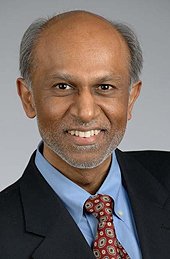
Clinical Director
National Institute of Neurological Disorders and Stroke
NINDS recently named Dr. Avindra Nath as its new intramural clinical director. He is internationally recognized for his contributions to elucidating HIV pathogenesis in the central nervous system. In addition to becoming clinical director and head of the NINDS section of infections of the nervous system, he will develop a center dedicated to translating new therapies for neurological disorders to clinical use.
“We are delighted that Dr. Nath will join the intramural program,” said NINDS director Dr. Story Landis. “He has an outstanding research program that adds strength to our neurovirology and neuroimmunology programs. Avi has superb leadership skills as well, which help ensure he will be an outstanding clinical director.”
“A major goal of Avi’s will be to develop a focused effort that can help accelerate translational efforts in NINDS in a way that can complement NIHwide efforts,” said NINDS scientific director Dr. Alan Koretsky. “Avi also will put a lot of emphasis on improving clinical training programs within NINDS. Finally, his joining will help ensure we continue to attract outstanding young clinician-scientists to the NINDS intramural research program.”
Early in the HIV epidemic, Nath and his colleagues discovered that Tat, a viral protein, could directly stimulate neurons. In subsequent studies, he found that Tat also activated glial cells leading to chemokine release that in turn cause macrophage recruitment into the central nervous system. Most recently, Nath discovered that some individuals with HIV—despite an excellent response to retroviral treatment—develop a devastating immune cellmediated encephalitis called CNS-immune reconstitution inflammatory syndrome. He will continue his HIV investigations at NIH in collaboration with Dr. Clifford Lane in NIAID.
Nath also has helped to develop several neuroprotective compounds that are in various stages of development and clinical testing. Because of shared cellular and molecular mechanisms, these compounds may have potential use in a wide variety of neurodegenerative and neuroinflammatory diseases.
Born in Saskatoon, Canada, Nath earned his medical degree from the Christian Medical College in Ludhiana, India, in 1981. He then completed both a neurology residency (1986) and a neuroimmunology fellowship (1988) at the University of Texas Health Science Center in Houston. In 1990, he completed a fellowship in neurovirology at NINDS, working in the section of molecular virology and genetics in the Laboratory of Viral and Molecular Pathogenesis (LVMP) with Dr. Eugene Major, chief of the Laboratory of Molecular Medicine and Neuroscience, and Dr. Monique Dubois-Dalcq, who was then LVMP chief.
After leaving NIH in 1990, he joined the faculty of the University of Manitoba in Winnipeg, in the departments of medical microbiology and internal medicine. He left Manitoba in 1997 to join the faculty of the University of Kentucky in the microbiology and immunology and neurology departments.
Before returning to NIH, Nath was a professor of neurology and neuroscience. He held several leadership positions at Johns Hopkins University School of Medicine: director of the Division of Neuroimmunology and Neurological Infections (DNNI); director of the Neurovirology and Neuroimmunology Laboratory (NNL) and co-director of the Neuro-AIDS Translational Research Center. As director of DNNI and NNL, he recruited an exceptional cadre of investigators and created the clinical fellowship program in neuroimmunology and neurological infections— the only one of its kind in the country.
Nath has published more than 200 manuscripts, reviews and book chapters and served on the editorial boards of the Journal of Neurovirology and Current HIV Research. He also has edited a book on clinical neurovirology. Currently, he chairs the section of neuro-infectious diseases of the American Academy of Neurology and serves as vice president of the International Society of Neurovirology. Nath is an elected member of the American Neurological Association.
Ekaterini (Katy) Perry
*Retired
Director
Division of Managment Support
Office of Management Assessment
Ekaterini (Katy) Perry is the Director of the Division of Management Support, Office of Management Assessment, National Institutes of Health (NIH). The NIH is the nation’s largest federal biomedical research agency making important discoveries that improve health and save lives. Ms. Perry is currently responsible for the management and oversight of ten agency-wide program areas including policy, delegations of authority, organizational changes, privacy and records management. Ms. Perry works closely with scientific and executive leadership on strategic planning initiatives and effectively maintaining compliance with mandates and legislative requirements supporting the agency. Previously, she served in various administrative leadership positions at NIH supporting the Human Genome Project and the Biodefense and Emerging Infectious Diseases Research Initiative. Ms. Perry attended the University of Maryland University College. She completed executive leadership training through the Federal Executive Institute’s Leadership for a Democratic Society and the FEI Senior Executive Assessment Program. She was recently selected for the NIH Executive Leadership Program, a program partnership between NIH and the Brookings Institute that targets potential Top 5 positions.
Joshua Rosenthal

Senior Scientist
Division of International Epidemiology and Population Studies (DIEPS)
Fogarty International Center
Joshua Rosenthal is a Senior Scientist at the Fogarty International Center of the U.S. National Institutes of Health (NIH). He is an ecologist with a longstanding interest in the integration of public health, environment, and international development.
Dr. Rosenthal leads NIH research and policy activities in Household Air Pollution research, including the Clean Cooking Implementation Science Network, and a multi-national trial to define the health benefits achievable through a clean cooking intervention in low and middle-income countries (HAPIN). He founded and co-leads the NIH Climate and Health working group, is a project scientist on the NIH-CDC-IDRC supported GEOHealth program (Global Environmental and Occupational Health) and is the NIH Management lead for the Global Alliance for Chronic Diseases.
Dr. Rosenthal completed his Ph.D. and post-doctoral research at the University of California, Berkeley. He came to the NIH as a AAAS Science and Diplomacy Fellowship to work on natural products drug discovery and biodiversity conservation and subsequently directed the health and environment grants portfolio of FIC for over 15 years, including the International Cooperative Biodiversity Groups, Ecology of Infectious Diseases, Zoonotic Influenza, International Training in Environmental and Occupational Health, and Climate and Health programs. In 2011, Dr. Rosenthal was a Senior Fulbright Fellow at the University of Buenos Aires, Argentina and has since served as the Deputy Director of the Fogarty International Center and Director of the Division of International Training and Research.
Dr. Rosenthal has authored a wide variety of technical, policy and popular publications, including research reports, research topic reviews, global health program analyses, editorials, magazine articles and one edited book on Biodiversity and Human Health, and is an Executive Editor for the journal EcoHealth.
Paul A. Sheehy, Ph.D.

*Deceased
Director, Division of Extramural Affairs
National Eye Institute
Paul Sheehy is Director of the Division of Extramural Affairs in the National Eye Institute (NEI), a component of the National Institutes of Health (NIH). The NEI administers a program of over $675 million, funding research and training programs in vision science and disorders of the visual system. His principal responsibility is to oversee the Scientific Review and Grants Management Branches of the Institute. He also advises Institute staff on administrative, policy and management matters relevant to the conduct of the Institute's mission and oversees the development of the Institute’s scientific initiatives and coordinates them with other NIH Institutes and Centers, with a particular focus on the Center for Scientific Review. Paul serves or has served on a broad range of working groups concerned with electronic grant submission, NIH organizational structure and function, information management, personnel management and continuing education for NIH staff.
Prior to his appointment at NEI, Paul was Deputy Director of the Division of Extramural Activities in the National Institute of General Medical Sciences and both a Program Director and Review Official at the National Institute of Neurological Disorders and Stroke (NINDS). Paul initially came to the NIH as a Senior Staff Fellow in the NINDS intramural research program.
Dr. Sheehy received his doctorate in Physiology from the Uniformed Services University of the Health Sciences in 1985. He also holds a M.S. in Biophysics from the University of Maryland and a Sc.B. in Biophysics from Brown University.
Lillian Shum, Ph.D.
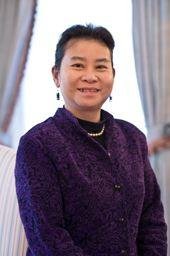
Chief, Integrative Biology and Infectious Diseases Branch
Division of Extramural Research
National Institute of Dental and Craniofacial Research
Current Position: Director, Division of Extramural Research, National Institute of Dental and Craniofacial Research. Updated bio not available at this time.
Lillian Shum is Chief of the Integrative Biology and Infectious Diseases Branch at the NIDCR, NIH. She provides leadership and guidance for the planning, development, implementation and evaluation of NIDCR extramural research portfolio encompassing diverse areas in basic and translational sciences. The Branch comprises eight Programs in the management of research supported by grants, cooperative agreements and contracts focusing on dental and skeletal biology, repair and regeneration; oral infections and immunity; head and neck cancers; and orofacial pain mechanisms and disorders. She leads the development, prioritization and implementation of research initiatives to address knowledge gaps, capture research opportunities, meet program objectives and balance the overall extramural portfolio. She also represents the NIDCR to trans-NIH and interagency working groups and task forces, including the Federal Working Group for Bone Diseases, to advocate for NIDCR’s interests and to share experiences. Previously, she serves as the Director for the Mineralized Tissue Physiology Program at the NIDCR, managing a research program focusing on the development and maintenance of craniofacial bones and teeth. Prior to joining the NIDCR, Dr. Shum was a team lead and senior research fellow in the Craniofacial Development Section of the Cartilage Biology and Orthopaedics Branch in the NIAMS intramural program conducting research on craniofacial patterning and skeletogenesis, and molecular determinants of these developmental events. Dr. Shum earned her doctoral degree in cell and developmental biology from the University of North Carolina at Chapel Hill and completed postdoctoral training at the University of Southern California and the University of California San Francisco studying growth and transcription factor signaling.
Ted Trimble

Director
Center for Global Health
National Cancer Institute
Edward L. Trimble was appointed the first director of NCI’s new Center for Global Health (CGH) in September, 2011. The NCI CGH is responsible for coordinating NCI’s research relevant to global health and global cancer research, developing a strategic plan for research and implementation relevant to global cancer control, and strengthening collaboration with external stakeholders. Before his appointment to the NCI CGH, Dr. Trimble was Head of Gynecologic Cancer Therapeutics in NCI’s Division of Cancer Treatment and Diagnosis from 1991 to 2011. In that role, he spearheaded the development of national and international cancer research strategy for the treatment of cervical cancer, ovarian cancer, and endometrial cancer. He led the planning committees for NIH Consensus Conferences on ovarian and cervical cancers. In addition, he drafted and coordinated NCI Clinical Announcements regarding chemoradiation for cervical cancer in 1999 and intraperitoneal chemotherapy for ovarian cancer in 2008. He graduated from Harvard College and the Johns Hopkins University of School of Medicine, then trained in obstetrics/gynecology at Vanderbilt University Medicine Center, public health at the Johns Hopkins University Bloomberg School of Public Health, and gynecologic oncology at Memorial Sloan-Kettering Cancer Center.
Mary S. Wolfe, Ph.D.

Deputy Division Director for Policy
National Institute of Environmental Health Sciences
Mary Wolfe is Deputy Division Director for Policy and Director of the Office of Liaison, Policy and Review for the Division of the National Toxicology Program (NTP). She serves as senior advisor to the NTP Associate Director for policy development, scientific peer review, and program operations, and manages interactions and communications with a wide range of constituency groups. She has overseen implementation of new scientific review processes to meet OMB guidelines and prepared responses to Congressional inquiries on NTP programs. Currently, Dr. Wolfe is working with staff to implement systematic review approaches in NTP literature-based evaluations and weight of evidence decision-making. Dr. Wolfe joined NIEHS in November 1996 as Associate Coordinator for the EMFRAPID Program, the congressionally mandated NIEHS health hazard assessment of electric and magnetic fields associated with powerlines. In 1999, she was appointed to manage peer review and external advisory groups for the NTP and was promoted to Office Director in 2002 and Division Director for Policy in 2011.
Prior to joining NIEHS, Dr. Wolfe served as Research Coordinator in the Office of Research, Wake Forest University Medical School, where she gained experience in pre-award development and review of extramural research grants and helped carryout Connectivity, the first institutional research exposition. Her research training is in comparative medicine with study of the role of dietary fat in development of atherosclerosis in nonhuman primates. Dr. Wolfe holds a doctorate in molecular and cellular pathobiology from Wake Forest University, a Masters in Science in human nutrition and foods from Virginia Polytechnic Institute and State University, and a Bachelor of Arts in biology from Wake Forest University.
2011 ExLP Participants
Bruce A. Androphy, Esq.
*No longer with NIH

Bruce A. Androphy, Esq., is the Director of the National Institutes of Environmental Health Sciences Ethics Program and, as such, serves as the Institute’s Deputy Ethics Counselor. He supervises both the NIEHS conflicts of interest and bio-ethics programs. He is an attorney admitted to practice in New York, Pennsylvania and Tennessee. Prior to joining NIEHS, he served as the first executive director of the Tennessee Ethics Commission from 2006 – 2009. Previously, he was with the New York State Ethics Commission for 18 years, serving as its General Counsel for the last five years. While in New York, he was involved with many ethical issues involving research scientists and faculty members. He is a frequent speaker on "Conflicts of Interest in Higher Education" and is an active member and speaker with the Council of Government Ethics Laws ("COGEL"). He received his undergraduate degree from the University of Pennsylvania, and his law degree from the National Law Center of George Washington University.
David A Bluemke, M.D., Ph.D.

*No longer with NIH
David A Bluemke, M.D., Ph.D., MsB is the Director of Radiology and Imaging Sciences, National Institutes of Health Clinical Center, in Bethesda Maryland. He is a Senior Investigator at the National Institute of Biomedical Imaging and Bioengineering and adjunct Professor of Radiology and Medicine at the Johns Hopkins University School of Medicine. Dr. Bluemke, an American Heart Association and American College of Radiology fellow, conducts imaging research on cardiovascular disease and its complications and seeks to better understand how subclinical disease can be detected with newly developed imaging technologies, described, and tracked over time. Dr. Bluemke has authored more than 350 peer-reviewed publications and 27 book chapters and monographs. He earned his medical degree at the University of Chicago’s Pritzker School of Medicine and his PhD in Biophysics at the University of Chicago.
Cheryl Anne Boyce, Ph.D.

Cheryl Anne Boyce, PhD, is the Chief of the Implementation Science Branch, Center for Translation Research and Implementation Science (CTRIS) within the National Heart, Lung, and Blood Institute (NHLBI), National Institutes of Health (NIH), Department of Health and Human Services (HHS). After doctoral studies at the University of North Carolina at Chapel Hill, and clinical and research fellowships at the Children’s National Medical Center and University of Maryland School of Medicine, she began her federal career as a Society for Research in Child Development/American Association for the Advancement of Science (AAAS) Executive Branch Policy Fellow. She has been responsible for strong research and policy collaborations across agencies including national studies on young children’s mental health and child welfare issues. Before joining NHLBI, she held scientific leadership positions at the National Institute on Drug Abuse (NIDA) and National Institute on Mental Health (NIMH), focused on neurodevelopment, evidenced-based practice, translational research, young children, drug exposures, traumatic stress, health disparities, child maltreatment and research training. Her commitment to public health science and service has been recognized through awards from the Executive Office of the President, Office of National Drug Control Policy and NIH Office of the Director. She is a recognized expert on mentoring, career, and research training issues, and dedicated to increasing and diversifying the biomedical research workforce. She co-edited the revised book on grantsmanship uniquely written by both federal personnel and successful research investigators entitled, “How to write a successful research grant application: A guide for social and behavioral scientists” (2nd edition) (Pequegnat, Stover, & Boyce, 2011).
Sheryl Kay Brining, Ph.D.
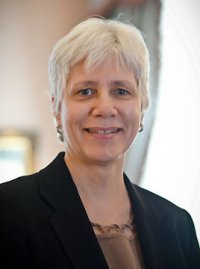
*No longer with NIH
Sheryl K. Brining is Director of the Strategic Management and Contract Office (SMCO), Office of Extramural Research (OER), National Institutes of Health (NIH). The office is responsible for the OER support contracts for scientific programs and communications and outreach, among others and to oversee the OER strategic management and budget efforts. Sheryl recently served on a partial detail for over two years at HHS where she assisted the Project Management Office charged with implementing the DATA Act. This position afforded her the opportunity to work with HHS staff in grants, budget, acquisitions, and finance to ensure the large HHS portfolio of assistance is accurate and timely.
Sheryl is past chair of the Review Policy Committee at NIH and has served in pivotal roles on many trans-NIH change initiatives, including organizational re-structuring of the grant support staff across the institutes (think DEAS – now long gone); enhancing the NIH peer review process; and creating the first structured, consensus-based business model of NIH peer review workflows. Her extramural review highlights include administration of the first human embryonic stem cell reviews for NIH; launching the inaugural peer review process for the Clinical and Translational Science Awards; and coordinating the reviews for grant applications to build/renovate U.S. biomedical research facilities and laboratories utilizing American Recovery and Reinvestment Act 2009 funds.
Prior to joining the NIH extramural program, she was a scientist in the laboratory with research interests in behavioral and experimental biopsychology; ethology; biochemistry; neuroanatomy; and cell and structural biology; with the most recent focus on basic research in Alzheimer’s disease. She received a Bachelor of Arts degree in psychology from Reed College, graduating with honors; a Master’s degree in biopsychology from the University of Chicago; and a Ph.D. degree from the University of Cincinnati in anatomy and cell biology. The theme in her career has been “Manage Change”.
Stacy H. Charland, PMP
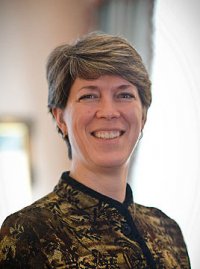
*No longer with NIH
Stacy Charland is the Acting Deputy CIO of NIH, a position she has held since 2007. Stacy manages a staff of over 100 employees and contractors in the Office of the CIO and coordinates the activities of the Offices of IT Policy, IT Acquisitions Services, IT Security, and IT Architecture. The direction of these activities requires substantial knowledge and understanding of IT Security, Enterprise Architecture, Capital Planning and Investment Control, Acquisitions, Project Management, Section 508, and a variety of other IT related policies and regulations. Stacy is also responsible for the oversight activities for NIH enterprise systems that support the administrative, grant, and research programs. Stacy is also a Project Management Institute (PMI) certified Project Management Professional (PMP), and has been actively involved in developing a project management community at the NIH.
Prior to her being appointed as the Acting Deputy CIO, Stacy was the CIO of the National Institute of General Medical Sciences (NIGMS), a position that she held for 6 years. At NIGMS Stacy was responsible for the management of the institute’s IT infrastructure and development of specialized mission support software applications. She was also the project officer for a number of their IT contracts, and led a number of initiatives to improve the quality of IT services at NIGMS, including efforts to implement ITIL and a standard Software Development Life Cycle based on the Rational Unified Process. Before joining NIGMS as their CIO, Stacy worked as a contractor at NIGMS as the owner of a small, woman-owned contracting company.
Pamela Collins, M.D., M.P.H.

*No longer with NIH
Dr. Pamela Collins is the Associate Director for Special Populations, Director of the Office for Research on Disparities & Global Mental Health, and Director of the Office of Rural Mental Health Research at the National Institute of Mental Health (NIMH). Prior to joining NIMH, as a faculty member at Columbia University, she conducted research on the mental health aspects of the AIDS epidemic, and through her research, worked to ensure access to HIV prevention and care for people with severe mental illness as well as access to mental health care services for people with HIV domestically and internationally.
In the United States, her studies have addressed the mental health needs of African immigrant and Diaspora communities living with HIV and the HIV prevention needs of women with severe mental illness. Dr. Collins and colleagues developed and evaluated the HIV prevention curriculum, “Our Selves, Our Bodies, Our Realities” to help women reduce risky sexual encounters, thereby reducing their risk of HIV infection. Through this work, she and her colleagues also examined the contribution of social stigma related to mental illness and ethnicity to women’s HIV risk.
Internationally, she has conducted research and training with healthcare providers on mental health and HIV/AIDS transmission, prevention, and counseling in Argentina, Zambia, Uganda, Rwanda, and South Africa. Dr. Collins received her B.A from Purdue University, her M.D. from Cornell University Medical College, and a Master of Public Health from Columbia University.
Jennifer Czajkowski

*No longer with NIH
Jenny Czajkowski is the Deputy Executive Officer for the National Institute on Alcohol Abuse and Alcoholism (NIAAA) and has been at the NIH for over 16 years. Prior to joining NIAAA, she was Chief of the Planning, Evaluation, and Communications Office and the Communications Director for the Center for Information Technology (CIT). She coordinated all communication policy and planning for the Center and the NIH CIO, managed all internal and external communications, maintained its web and intranet presences, and oversaw its service evaluation process. She also represented CIT on NIH-wide groups in the areas of FOIA, Privacy, Competencies, A76, and Section 508.
Before becoming the Communications Director, Jenny spent 5 years as the Deputy Director for the Division of Customer Support (DCS) in CIT, responsible for running the day to day operations and administrative functions for DCS, including the NIH IT Help Desk, the CIT Training program, the Relationship Manager program, and other customer support functions. Her duties included budget execution, preparing HR actions, workforce planning and resource allocation, addressing EEO and employee relations issues, and working with subordinate managers on the same.
She has been involved over the past 7 years with the NIH Administrative Training Committee’s intern programs, and is involved in the HHS Mentoring Program. She received a Bachelor of Science degree in Business Information Systems from Messiah College in Pennsylvania and a Master of Science degree in Information Technology and Telecommunications from Johns Hopkins University.
Daniel Gallahan, Ph.D.
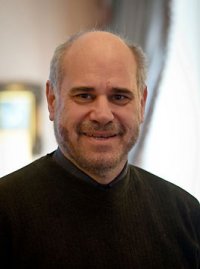
Dr. Dan Gallahan is a molecular and cancer biologist with broad expertise in the fields of systems biology, breast cancer, technology development and science policy. His primary focus is the integration of multiple approaches, tools, and data sets to understanding the complexity of cancer. As Deputy Director of the Division of Cancer Biology at the National Cancer Institute, he helps lead the Division in its mission of supporting excellence in basic cancer biology research. He assists in the planning and implementation of the NCI’s overall efforts in genomics, proteomics, structural biology and nanotechnology, and acts as liaison with other government and commercial entities in the areas of technology and systems biology. In addition, Dr. Gallahan oversees the NCI’s Integrative Cancer Biology Program (ICBP), which is the major effort in systems biology within the NCI. This program embraces computational modeling as an integral part of cancer understanding and management. Dr. Gallahan was trained in Molecular Biology and Biochemistry at the University of Maryland, receiving additional post-doctoral training at the NIH and the German Cancer Research Center. His post-doctoral work included training in proteomics and bioinformatics. Prior to joining the Division of Cancer Biology, he had an active NCI intramural career within the Laboratory of Tumor Immunology and Biology. He also had experience outside the government when he served as Director of Molecular Biology and Development for a small bio-tech company.
Chyren Hunter, Ph.D.
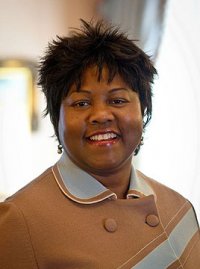
Deputy Director/Training Officer
Division of Extramural Activities
National Institute on Aging
Current Position: Associate Director for Basic and Translational Research, Office of the Director. Updated bio not available at this time.
Chyren Hunter is the Deputy Director and Research Training Officer, Division of Extramural Activities, National Institute on Aging, National Institutes of Health. She oversees and coordinates the administration of a broad range of activities that insure the fair and equitable review of research applications and the management of grants to support research on aging. As NIA Training Officer she has overall responsibility for all research training programs supporting predoctoral students, postdoctoral fellows and clinician-scientists to foster a cadre of high quality investigators pursuing research in aging and geriatrics.
Prior to her current position at NIA, Dr. Hunter was a Program Director in the Division of Extramural Research with the National Eye Institute, NIH for over a decade where she was a Group Leader managing a portfolio of research grants on basic mechanisms of retinal neurotransmission and on oculomotor systems. She simultaneously served as the Research Training Officer. Prior to her tenure at NIA she was a Program Director in the Division of Extramural Research at the National Institute on Deafness and Other Communication Disorders (NIDCD), administering a portfolio of grants in auditory neuroscience and development.
Dr. Hunter came to the NIH on an Intramural Research Training Award fellowship to pursue postdoctoral research where she became a Staff and then Senior Staff Fellow in the NIH intramural research program. Her research focused on excitatory and inhibitory amino acid neurotransmission and on glutamate receptors and neurotransmission in the adult and developing mammalian central auditory system. She has been active throughout the larger NIH community. She was selected for the NIH Senior Leadership Program and has hosted educational programs for the NIH community as a member of the NIH Staff Training in Extramural Programs Committee. She has served on review panels for the Office of Research on Women’s Health and was a representative to the NIH Zebrafish Coordinating Committee and NIH Neuroscience Blueprint committees. She attended Wesleyan University in Middletown, CT, where she received her B.A. in Bio-Psychology. She obtained her Ph.D. in Biomedical Sciences (Neurobiology) at the Mount Sinai School of Medicine through the Biomedical Sciences Doctoral Program of the City University of New York.
Keith Lamirande, M.B.A.
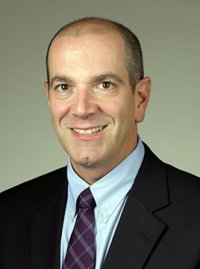
Keith Lamirande, M.B.A., currently serves as the Executive Officer and Associate Director for Administration, NCATS, where he has been since August of 2015. In this role, Keith oversees all of the administrative functions of NCATS, including financial management, human resources, ethics and management analysis, information technology and support, acquisitions, and general administrative support. Keith previously served in the same role for the National Institute on Alcohol Abuse and Alcoholism (NIAAA) as well as serving as the Deputy Ethics Counselor for NIAAA. Previous to this, Keith served as the Deputy Executive Officer and for five years was the Budget Officer for NIAAA.
Keith’s Federal career began at NIH in 1990 as a biologist with the Veterinary Resources Program of the former National Center for Research Resources (NCRR). In 1993, he was selected for the NIH Management Intern program. Since graduating from the MI program, he has served in several administrative leadership positions ranging from human resources specialist to administrative officer to senior budget analyst. He has worked with numerous NIH Institutes during his career, including the National Institute of Neurological Disorders and Stroke (NINDS), the National Cancer Institute (NCI), and the National Institute of Allergy and Infectious Diseases (NIAID).
Keith holds a Bachelor of Science in Biology from Bates College in Lewiston, Maine, and a Master’s Degree in Business Administration from Loyola University Maryland.
Keith is a 2011 graduate of the NIH Executive Leadership Program, a member of numerous NIH workgroups and committees including the Administrative Training Committee (ATC). He is the recipient of several prestigious awards including two NIH Director’s Awards, an Office of the Director Honor Award, and the NIAAA Martin K. Trusty Excellence in Management Award.
Sheila LeVons-Stokes, Esq.

*No longer with NIH
Sheila LeVons-Stokes, Esq. is the Director, Division of Complaints Management and Resolution for the National Institutes of Health (NIH). Sheila has a Juris Doctor Degree from Howard University School of Law, Bachelor’s Degree in Public Administration from Lincoln University, and holds a Certificate in Public Leadership from the Brookings Institution.
Sheila is a member of the Bar and licensed to practice in the District of Columbia, the State of Maryland, and the Commonwealth of Pennsylvania. She has over 20 years of experience in advancing employee rights through Equal Employment, Fair Labor Standards, and Diversity in the public and private sector.
Prior to joining NIH, Sheila was the Alternate Dispute Resolution Program Manager for Court Services and Offender Supervision Agency (CSOSA). She created, implemented, and managed CSOSA’s first agency wide Alternate Dispute Resolution Program designed as an alternative approach in addressing issues related to equal employment opportunity and discrimination in the workplace. She also chaired an Advisory Committee on Latino-Hispanic issues within the Federal sector addressing workplace diversity, strategic planning, and recruitment.
Sheila also served as the Acting Director of the Office of Equal Employment Opportunity, Diversity and Special Programs. She also served as Chief Steward for Local 476 managing the daily intake of cases dealing with grievances, unfair labor practices, and discrimination complaints. Additionally, she served as a referral attorney for the National Association for the Advancement of Colored People (NAACP) litigating cases involving EEO, civil rights, and Fair Labor Standards.
Prior to her duties with CSOSA, Sheila worked as an attorney for the Department of Housing and Urban Development, Office of the General Counsel, in both the Regulatory Law and the Personnel Law Division.
Germaine M. Buck Louis, Ph.D.

*No longer with NIH
Dr. Germaine M. Buck Louis is a Senior Investigator and Director of the Division of Intramural Population Health Research, Eunice Kennedy Shriver National Institute of Child Health and Human Development (NICHD), at the National Institutes of Health. Her research interests primarily focus on the interplay between environmental chemicals and lifestyle on human reproduction and development. She is currently the principal investigator for the LIFE Study, ENDO Study and NICHD Fetal Growth Studies. Dr. Buck Louis is an active member of several epidemiologic societies, including her service as Secretary then President of the Society of Perinatal and Pediatric Epidemiologic Research and later as President of the Society for Epidemiologic Research. She also has served as a board member for the American College of Epidemiology and the International Society of Environmental Epidemiology, and on numerous advisory committees and panels for The National Academies, Pan American Health Organization, U.S. Environmental Protection Agency, and World Health Organization. She is a co-editor of the textbook entitled “Reproductive and Perinatal Epidemiology.” Prior to joining NICHD in 2000, Dr. Buck Louis was a tenured professor in the Department of Social and Preventive Medicine, University of Buffalo, School of Medicine and Biomedical Sciences where she taught in both the graduate and medical school curricula, and led research focusing on the impact of environmental influences on human reproduction and development. She has published numerous papers and is the recipient of many awards.
Gary Mays, M.B.A., PMP
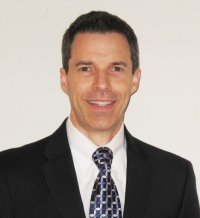
Gary Mays is the Director of the Office of Strategic Planning, Initiative Development, and Analysis at the National Institute of Allergy and Infectious Diseases (NIAID). In this role, he integrates the institute’s scientific plans, resource management plans, and program evaluations to improve quality, timeliness, and advance the institute’s public health mission. As a recent graduate of the Senior Executive Service (SES) Candidate Development Program, he completed an assignment with the Centers for Medicare & Medicaid Services in which he implemented regulatory changes to the Affordable Care Act. Gary served as NIAID’s Associate Director for the Division of Intramural Research from 2009 to 2015 where he led the financial management and strategic planning for the division. During a period of significant budget reductions and federal sequestration, he implemented financial management changes that saved millions of dollars and sustained critical biodefense and infectious disease programs.
Prior to this role, Gary managed the resources and operations of the Malaria Vaccine Development Branch within NIAID to build infrastructure domestically and internationally for the production and testing of malaria vaccines from 2002 to 2009. He negotiated with foreign leaders in Mali, West Africa, to fund, design, and develop multiple research facilities for conducting clinical trials. As a result, one of the clinical laboratories later became the first U.S. College of American Pathologists approved sites in Mali.
Before joining the federal government in 2003, he worked in the defense, energy, and telecommunications industries managing operational divisions and leading large-scale capital projects. He has past experience conducting mergers and acquisitions and developing techniques that improve operational efficiency even during periods of financial constraint. He received a Bachelor of Science in Public Administration from James Madison University, and a Master’s degree in Business Administration from Virginia Polytechnic Institute and State University (Virginia Tech). He completed a four-year electrical design and engineering apprenticeship from Newport News Shipbuilding and is a certified Project Management Professional (PMP) from the Project Management Institute (PMI).
Joni Rutter, Ph.D.
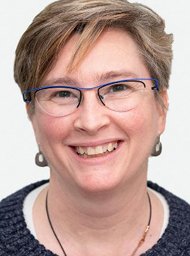
Deputy Director
National Center for Advancing Translational Sciences (NCATS)
Joni L. Rutter, Ph.D., is the Deputy Director at the National Center for Advancing Translational Sciences (NCATS). Dr. Rutter is responsible for planning, executing and assessing the Center’s complex and multifaceted pre-clinical and clinical programs, and is a key national spokesperson for translational science. She guides the NCATS Advisory Council and the Cures Acceleration Network Review Board activities, and serves as the Center’s scientific liaison to All of Us, helping to establish more robust interactions with NCATS programs.
Before joining NCATS, she served as the Director of Scientific Programs within the All of Us Research Program of the Precision Medicine Initiative at the NIH, where she led the scientific, programmatic development, and implementation efforts to build a national research cohort of one million or more U.S. participants to advance precision medicine.
Prior to that, Dr. Rutter led the Division of Neuroscience and Behavior at the National Institute on Drug Abuse. In this role, she developed and coordinated research on basic and clinical neuroscience, brain and behavioral development, genetics, epigenetics, computational neuroscience, bioinformatics, drug discovery, and also coordinated the NIDA Genetics Consortium and biospecimen repository.
Dr. Rutter is internationally recognized for her work in basic and clinical research in human genetics and in the study of genetic and environmental risk factors focusing on the fields of cancer and addiction. She received her Ph.D. from Dartmouth Medical School and completed a fellowship at the National Cancer Institute. Her primary scientific objective is to integrate genetic principles with environmental influences to inform more deeply our understanding of how individual and societal factors impact health and disease.
Susana A. Serrate Sztein, M.D.
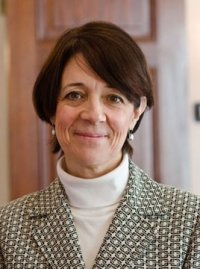
Dr. Sztein is Director of the Division of Skin and Rheumatic Diseases at the National Institute of Arthritis and Musculoskeletal and Skin Diseases. She oversees a large portfolio of grants and contracts dealing with the causes, mechanisms, diagnosis, treatment and prevention of skin and rheumatic diseases.
Between 1990 and 1993, Dr. Sztein was Chief, Autoimmunity Section, Division of Allergy Immunology and Transplantation, National Institute of Allergy and Infectious Diseases where she managed a scientific portfolio dealing with basic and translational research on immune mediated diseases.
Before joining the NIH, Dr. Sztein was Assistant Professor, Department of Pathology, Uniformed Services University of the Health Sciences, Bethesda Maryland where she worked on cytokine regulation of cell mediated immure responses. She received postdoctoral training at the laboratory of Immunodiagnosis, National Cancer Institute where she worked on natural killer cell activity against breast tumors in mice. Her clinical training is on anatomic and clinical pathology.
Dr. Sztein is a graduate of Buenos Aires University School of Medicine.
Pamela Starke-Reed, Ph.D.
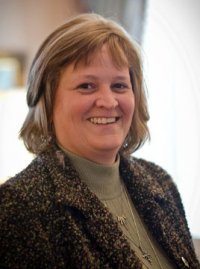
*No longer with NIH
Dr. Starke-Reed received her degree in Pathology from Hahnemann University. Her thesis work was on the Irreversible Damage of Activated Oxygen in Biological Systems. She moved to the Laboratory of Biochemistry at the National Heart, Lung, and Blood Institute, National Institutes of Health (NIH) for post-doctoral training with Dr. Earl R. Stadtman studying oxidative modification of mammalian proteins. George Washington University in Washington D.C. successfully recruited her to serve as Assistant Professor in the Department of Medicine, where she continued to concentrate on protein oxidation research.
Dr. Starke-Reed joined the National Institute on Aging, NIH in 1992. She held two separate positions in the institute: 1) Program Director responsible for the Protein Structure and Function and the Nutrition and Metabolism portfolios in the Biology of Aging Program where she developed initiatives, promoted and oversaw these areas of research; and 2) Director, Office of Nutrition at NIA, where she coordinated the nutrition-related research for the Institute.
In 2000 Dr. Starke-Reed became the Deputy Director of the NIH Division of Nutrition Research Coordination. The Division of Nutrition Research Coordination (DNRC) advises the NIH Director and others on nutrition research issues and works with the NIH organizational components to coordinate nutrition research and research training initiatives. Located within the DNRC is the NIH Nutrition Coordinating Committee (NCC) which operates as an NIH-wide forum and locus for the coordination of nutrition activities, helping the NIH to avoid duplication of effort. The coordination of nutrition research and nutrition policy-related activities by the DNRC occurs at three major organizational levels: (1) collaborative and coordinated trans-NIH activities; (2) collaborative and coordinated interagency activities at the Department of Health and Human Services (HHS) level; and (3) collaborative interagency activities at the Federal level. At the NIH Level, the DNRC coordinates nutrition activities through the Nutrition Coordinating Committee and its Nutrition Education Subcommittee (NES).
Dr. Starke-Reed serves as a chair or member many committees including but not limited to: Work-Group Coordinator for the Healthy People 2010/2020: Nutrition and Weight Status; NIH Nutrigenomics Working Group; Trans-NIH/Agency ODS Dietary Supplement Working Group; USDA Human Nutrition Coordinating Committee; Phenx Project Nutrition and Dietary Supplement Working Group; Federal Steering Committee Physical Activity Guidelines for Americans; Federal DRI Steering Committee; Project Officer NIH Contract with IOM: Vitamin D and Ca DRI review 2008-2010 and the Federal Steering Committee on Dietary Guidelines for America. She serves on the Editorial board for the Journal of Nutritional Biochemistry and as a reviewer for: Archives of Biochemistry and Biophysics; Proceedings of the National Academy of Science; Free Radicals in Biology and Medicine; The Alzheimer Foundation (grants reviewer) and National Race for the Cure Grants Program (grants reviewer).
Kenton Swartz, Ph.D.

Kenton Swartz was born in Cambridge, Massachusetts, and received a BS in Chemistry in 1986 from Eastern Mennonite College. In 1993 he received a PhD in neurobiology from Harvard University, where he worked with Bruce Bean studying the regulation of voltage-activated calcium channels by G-proteins and protein kinases. He carried out his postdoctoral training with Roderick MacKinnon at Harvard Medical School, where he began isolating and studying toxins that interact with voltage-activated potassium channels. In 1997, he became an Investigator at the National Institutes of Neurological Disorders and Stroke at the National Institutes of Health in Bethesda, Maryland, and was promoted to Senior Investigator in 2003. For the past fourteen years his laboratory has investigated the structure, molecular mechanisms and pharmacology of ion channel proteins using biochemical, molecular, biophysical and structural techniques. Much of their focus has been to understand the mechanism of voltage sensing in voltage-activated ion channels, as these important proteins are essential for generating nerve impulses. He has been active in serving on and leading scientific committees and organizations, including NIH study sections and search committees, and in 2009 was president of the Society for General Physiologists. He is currently on the editorial board of the Biophysical Journal and is an Associate Editor for the Journal of General Physiology.
Timothy J. Wheeles, M.A.

Tim Wheeles currently serves as the Associate Director for Management and Administration, Executive Officer, and Deputy Ethics Counselor, NIDCD. He served as the Acting Executive Officer, NHLBI, from July 2009 to September 2011. In 2006 he graduated from the SES Candidate Development Program and shortly after joined NHLBI as the Deputy Executive Officer. Previously, he served as the NIH Privacy Officer, and Director, Division of Management Support, Office of Management Assessment, where he coordinated NIH-wide programs such as Competitive Sourcing (A-76), Administrative Policy, Regulations, Delegations of Authority, Records Management, and Organizational Changes. He has also previously served as the Acting Director, Office of Management Assessment; and Acting NCRR Executive Officer. Tim has represented NIH and the Department on various committees and was appointed to represent HHS on the Advisory Committee to the National Archivist, NARA. Tim encourages collaboration and communication, and established and chaired several key coordinating committees at NIH, including the NIH Deputy Executive Officer Roundtable, NIH Commercial Activities Working Group, and NIH Management Analyst Working Group. Tim enjoys mentoring interns and has served on the NIH Management Intern Subcommittee, and is currently the Vice chair of the Administrative Training Committee. For his work in support of the NIH mission he has received numerous awards including the NIH Director’s Award, NIH Outstanding Advocate Award, NIH Mentoring Award, and the Secretary’s Award for Distinguished Service.
Alan Willard, Ph.D.

*Retired
Alan Willard has been serving as the acting Deputy Director of the National Institute of Neurological Disorders and Stroke since October 2014. Since July 2015, he has also been serving as the acting Director of the NINDS Office of Translational Research. Previously, he served as the Deputy Director of the Division of Extramural Research at NINDS (from 2012-2014) and as Chief of the Scientific Review Branch at NINDS (2002-2012). He has also served in leadership positions on several trans-NIH policy making committees. During 2008 and 2009, he led a large team of NIH staff who were responsible for the implementation of a number of changes to the NIH Peer Review process. Prior to joining NINDS as a scientific review officer in 1998, he was a tenured faculty member at the University of North Carolina at Chapel Hill in the Department of Cell & Molecular Physiology and the Curriculum in Neurobiology, where his research interests were in the areas of developmental neurobiology and synaptic physiology. He was actively involved in graduate and medical student education at UNC, serving as a Director of Graduate Studies and a member of the Executive Board of the UNC Graduate School. He was born in Northern Vermont and was raised on a dairy farm. In 1972, he received a BS in Molecular Biophysics & Biochemistry from Yale University. After receiving a Ph.D. in Biology at UC San Diego in 1978, he did postdoctoral research and then was appointed as an Instructor in the Department of Neurobiology at Harvard Medical School.
Deborah Marie Winn, Ph.D.
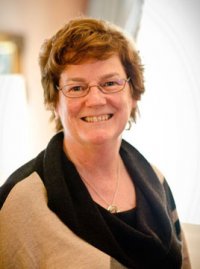
Deborah (Debbie) Winn, Ph.D. is the Deputy Director of the Division of Cancer Control and Population Sciences (DCCPS) at the National Cancer Institute. In that role she shares with the Director responsibilities for managing the scientific and administrative activities of the Division whose mission is to conduct and support an integrated program of the highest quality genetic, epidemiological, behavioral, social, applied, and surveillance cancer research. She has also served as Acting Associate Director of the Epidemiology and Genetics Research Program in that Division. In the latter role she led the NCI’s extramural cancer epidemiology program. Dr. Winn received the H.A. Tyroler Distinguished Epidemiologist Alumni Award from the University of North Carolina at Chapel Hill and is the recipient of numerous NIH and Public Health Service Merit Awards. Her work at the National Cancer Institute includes senior leadership roles related to fostering and coordinating large scientific initiatives related to epidemiology and cancer control, serving as an Institute spokesperson regarding research on topics of high interest to the public such as the role of environmental agents in breast cancer susceptibility, and developing ways of assessing epidemiologic evidence for use in cancer control efforts. Dr. Winn received her Ph.D. in epidemiology from the School of Public Health at the University of North Carolina in Chapel Hill.
2010 ExLP Participants
Andy Baxevanis, Ph.D.
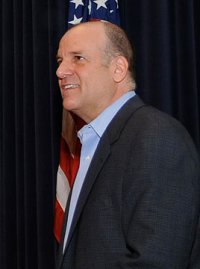
Dr. Baxevanis is the Assistant Director for Computational Bioscience for the National Institutes of Health’s Intramural Research Program. He is also a Senior Scientist within the Division of Intramural Research at the National Human Genome Research Institute, where he leads the Computational Genomics Unit. Dr. Baxevanis served as NHGRI’s Deputy Scientific Director from 1998 to 2011 before assuming his current position.
He received his B.S. in Biological Sciences from Cornell University in 1984 and his Ph.D. in the Department of Biology at The Johns Hopkins University in 1991, where his thesis work involved understanding the basic physicochemical properties of the core histone proteins. His postdoctoral work at the National Center for Biotechnology Information (NIH) concentrated on understanding both the core histones and the high mobility group class of proteins from an informatics standpoint, applying both sequence- and structure-based techniques in identifying key structural determinants for these chromosomal proteins.
Dr. Baxevanis’ current research focuses on the computational analysis of the homeodomain group of proteins, which play a fundamental role in the specification of body plan, pattern formation, and cell fate determination during metazoan development. His group uses a variety of next-generation sequencing and bioinformatic approaches in an effort to better-understand the evolution and function of these and other key developmental proteins and their role in human disease. His group is currently completing the sequencing, annotation, and initial analysis of the genome of the ctenophore Mnemiopsis leydyi, work that will help define the crucial elements of the animal genetic toolkit that have been conserved over evolutionary time. Finally, he is one of the lead investigators of the Multiplex Initiative, a large-scale, multi-center clinical and behavioral study aimed at exploring why patients elect (or decline) genetic susceptibility tests, how they interpret test information and results, and how they will ultimately use this knowledge in future health care decisions.
He is co-author of the textbook Bioinformatics: A Practical Guide to the Analysis of Genes and Proteins, now in its third edition and adopted for use at over 125 universities worldwide. He is currently the Editor-in-Chief of Current Protocols in Bioinformatics. He has also served as Executive Editor for the Database Issue of Nucleic Acids Research, Associate Editor of Proteins: Structure, Function, and Bioinformatics, and Senior Editor of Molecular Cancer Therapeutics. Dr. Baxevanis currently serves on a number of academic scientific advisory boards.
His involvement in educational activities have included teaching bioinformatics at The Johns Hopkins University, serving as an adjunct faculty member at Boston University, and lecturing in numerous courses. He also co-directs the Boston University/NIH Graduate Partnerships Program in Bioinformatics.
Dr. Baxevanis’ accomplishments have been recognized by the Bodossaki Foundation, who has awarded him their 2000 Academic Prize in Medicine and Biology. This award is Greece’s highest honor for young academics and scientists of Greek heritage throughout the world. In 2007, Dr. Baxevanis was awarded the IEEE Computer Society’s Outstanding Achievement Award for his outstanding contributions to the field of bioinformatics.
L. Michelle Bennett, Ph.D.
*No longer with NIH

Dr. L. Michelle Bennett joined the National Cancer Institute (NCI) in July 2015 to establish the Center for Research Strategy (CRS). The CRS is a science-based office charged with monitoring the direction and application of NCI’s scientific knowledge and resources. It coordinates the development of scientific opportunities with priority initiatives across NCI and facilitates collaboration where scientific integration is desired. In addition, CRS provides analysis, advice, and assistance identifying scientific fields that represent important areas of emerging opportunity, public health challenges, or research gaps that deserve or would benefit from increased emphasis.
In her previous position, she served as the deputy scientific director of the Division of Intramural Research (DIR) at the National Heart, Lung, and Blood Institute (NHLBI) where she had responsibility for scientific programmatic oversight, strategic planning, as well as implementing and supporting strategies to promote the research mission. Prior to joining the NHLBI, Dr. Bennett was a deputy director at the Center for Cancer Research (CCR), NCI, with more than 250 intramural scientists and clinicians working in basic, translational and clinical research. Dr. Bennett headed up strategic planning, developed and implemented projects and activities that cut across a broad range of scientific areas in order to enrich the Center’s work environment and accelerate translational research progress.
Dr. Bennett has extensive practical experience in promoting collaboration and team-based approaches by bringing together research scientists with diverse backgrounds and expertise to solve complex scientific problems. She co-led an initiative to understand the fundamental characteristics that contribute to successful scientific team functioning and described in Collaboration and Team Science: A Field Guide that serves as a primer for investigators who are building or participating on a research team. She has supported efforts to increase diversity in the biomedical workforce, played a leadership role in launching and building the NIH Stadtman Tenure Track Investigator program, and developed a trans-NIH web presence for the Intramural program (irp.nih.gov).
Dr. Bennett earned her Ph.D. in oncology from the University of Wisconsin – Madison. She joined the National Institute of Environmental Health Sciences as a postdoctoral fellow in the Laboratory of Molecular Carcinogenesis where she performed some of the earliest work on BRCA1 and BRCA2 and their role in breast cancer. She then joined the Lawrence Livermore National Laboratory as a senior biomedical scientist, where she continued her work on breast cancer.
Dr. Bennett has received numerous awards for her work at the NIH, including the NIH Director’s Award in 2009 and 2010; NIH Plain Language Awards in 2007 and 2009; HHS Secretary’s Award in 1996 and numerous NIH Director and Merit Awards (2014, 2012, 2011, 2010, 2009, 2006, 2005, and 2004) for RFA concept development, improving communications, outstanding scientific vision and leadership, and developing new best practices.
Robert H. Carter, M.D.

As Deputy Director, Dr. Carter assists NIAMS Director Stephen I. Katz, M.D., Ph.D., in providing strong and visionary leadership to the NIAMS. In addition, he contributes to the NIAMS' pursuit of cutting-edge research on a broad spectrum of investigations, from basic science to clinical studies, with translational research as a particular area of interest.
Prior to joining NIAMS, Dr. Carter was professor of medicine at the University of Alabama at Birmingham (UAB) and served as director of the Division of Clinical Immunology and Rheumatology. He was the principal investigator (PI) of the NIAMS-supported UAB Rheumatic Disease Core Center, and the PI of an Autoimmunity Center of Excellence supported by the National Institute of Allergy and Infectious Diseases (NIAID). He also served as staff physician at the Birmingham Veterans Affairs Medical Center.
Dr. Carter is board certified in rheumatology and internal medicine and has an established record of exemplary career achievements in the fields of rheumatology and immunology. Specifically, Dr. Carter and his colleagues have been leaders in contributing to the understanding of molecular regulation of B lymphocyte activation to identify targets for therapeutic control of autoantibody production. A major focus of his work has been on signal transduction by the B cell surface molecule CD19. Recently, Dr. Carter and his group have expanded their focus to include target identification in human lupus and the study of B cells in the immune response of healthy individuals. His work has been funded by grants from the NIAMS, the NIAID, the U.S. Department of Veterans Affairs (VA), and private industry.
Dr. Carter has an extensive record of publications and editorial activities; committee and training commitments; teaching and mentoring dedication; consultations and speaking engagements; and awards and honors. He has held memberships with the Association of American Physicians, the American College of Rheumatology (ACR), the American College of Physicians, the American Association of Immunologists, and the American Association for the Advancement of Science. He served on the Committee for Research of the ACR and the Medical and Scientific Advisory Committee for the Lupus Foundation of America, Inc. He has served on numerous study sections and served as a consultant to the NIH Recombinant DNA Advisory Committee. He was also a VA Merit Awardee.
Dr. Carter received his bachelor's degree from Williams College in Williamstown, Mass., in 1978, Magna cum Laude, in biology. He received his medical degree from Harvard Medical School in 1982. He trained in internal medicine at the University of Virginia Health Sciences Center in Charlottesville. In addition, he was a fellow in rheumatology and immunology at Brigham and Women's Hospital in Boston, and in molecular and clinical rheumatology at the Johns Hopkins University School of Medicine in Baltimore.
Redonna K. Chandler, Ph.D.
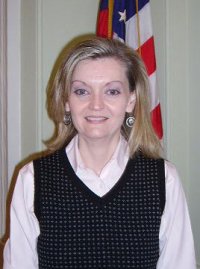
Current Position: Director, AIDS Research Program. Updated bio not available at this time.
Dr. Redonna K. Chandler joined NCATS as the Deputy Director of the Division of Clinical Innovation (DCI) in April 2015. She brings extensive scientific and organizational leadership, and will support coordination, collaboration, and communication for DCI and the Clinical and Translational Science Awards Program.
Dr. Chandler earned her Ph.D. in psychology from the University Kentucky and is a licensed psychologist. As a clinician she has treated those struggling with addiction, serious mental health issues, and infertility. She has been at the NIH since 2002, serving in positions of increasing responsibility and leadership at the National Institute on Drug Abuse. Prior to joining NCATS she served as the Acting Deputy Director for the Division of Epidemiology, Services, and Prevention Research at the National Institute on Drug Abuse and the Chief of the Services Research Branch. She worked for the Department of Justice from 1996-2002, directing large drug treatment programs.
Her areas of expertise include research with individuals involved with the criminal justice system, clinical trials, improving adherence to drug abuse treatment and HIV care, and implementing evidence based treatments into routine practice settings. She has authored numerous articles and book chapters.
Dexter Collins, M.P.A.
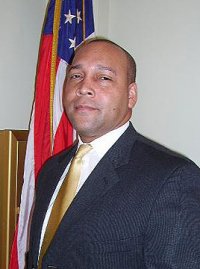
Dexter Collins is the Executive Officer/Director of the Office of Administrative Management and International Services, Office of the Director (OD), Fogarty International Center (FIC), National Institutes of Health (NIH). Mr. Collins serves as a key advisor to the FIC Director, Deputy Director and Senior Staff on all aspects of administration, leadership and management. In addition, he leads and directs the business, administrative management and international service operations for the Center. Prior to being appointed as the FIC Executive Officer, Mr. Collins was the Deputy Executive Officer/Deputy Associate Director for Administration, Office of the Director (OD), Eunice Kennedy Shriver National Institute of Child Health and Human Development (NICHD), National Institutes of Health (NIH). Mr. Collins has served at NIH from 1989 to present in a number of administrative, acquisitions, accounting and financial management positions with various NIH organizations (i.e.; Office of Financial Management (OFM), OD; National Eye Institute (NEI); National Cancer Institute (NCI); Eunice Kennedy Shriver National Institute of Child Health and Human Development (NICHD)). Mr. Collins graduated from the NIH STRIDE Intern Program in 1996 as an Accountant in the OFM. Mr. Collins maintained dual careers by continuing his military service as a Commissioned Officer in the United States Armed Forces. He received his Federal Recognition as a Commissioned Officer from the President of the United States in 1998. He is a distinguished graduate of the Fort Benning Military Academy, Officer Candidate School and the Fort Leonard Wood, US Army Military Academy, Commissioned Officer Leadership Programs. Mr. Collins received a Masters of Public Administration (MPA) with a focus on Executive Leadership from the School of Public Administration (SPA), American University (AU) and a Bachelor of Science in Management (BSM) with a minor in Accounting from the College of Management and Business (CMB), National-Louis University (NLU). In addition, Mr. Collins completed the distinguished NIH Executive Leadership Program (NIH ExLP) with the inaugural cohort in 2010.
Gwen Collman, Ph.D.
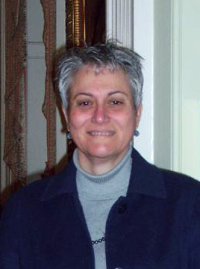
Gwen Collman is director of the NIEHS Division of Extramural Research and Training where she leads approximately 80 professional staff in areas of scientific program administration, peer review, and the management and administration of about 1,500 active grants each year. She directs scientific activities across the field of environmental health sciences including basic sciences (i.e., DNA repair, epigenetics, environmental genomics), organ-specific toxicology (i.e., reproductive, neurotoxicology, respiratory), public health related programs (i.e., environmental epidemiology, environmental public health) including Global Environmental Health, and training and career development. She also oversees the implementation of the Superfund Research Program and the Worker Education and Training Program.
Prior to her current role, Collman served in program development and management, beginning in 1992 as a member, then as Chief of the Susceptibility and Population Health Branch. During this time, she directed research on the role of genetic and environmental factors on the development of human disease, from animal models of genetic susceptibility to population studies focusing on etiology and intervention. She was responsible for building the NIEHS grant portfolio in environmental and molecular epidemiology, and developed several complex multidisciplinary research programs. These include the NIEHS Breast Cancer and the Environment Research Centers Program, the NIEHS/EPA Centers for Children's Environmental Health and Disease Prevention, and the Genes, Environment and Health Initiative. Also, under her guidance, a team created a vision for the Partnerships for Environmental Public Health programs for the next decade.
Emmeline Edwards, Ph.D.
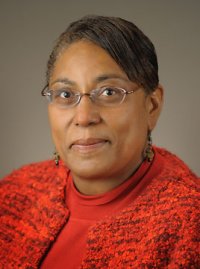
Director of Extramural Research
National Center for Complementary and Integrative Health
Prior to joining NCCAM as Director of Extramural Research, Dr. Emmeline Edwards was Deputy Director of the NINDS Extramural Program where she provided oversight to all scientific and administrative aspects of research programs funded by NINDS in public and private institutions across the country. Prior to becoming the Deputy Director for Extramural Research at NINDS, Dr. Emmeline Edwards was Program Director for Systems and Cognitive Neuroscience at NINDS. Dr. Edwards is a specialist in neural mechanisms of complex behaviors. Her program focused on integrative approaches in behavioral and cognitive neuroscience, neurobehavioral disorders and all aspects of central nervous system plasticity. Prior to joining NIH, Dr. Edwards was Program Director for Behavioral Neuroscience at the National Science Foundation (NSF) and the NSF representative to the Human Brain Project. Dr. Edwards was a faculty member in the Pharmacology and Neuroscience Programs at the University of Maryland. Dr. Edwards received her doctorate in Neurochemistry from Fordham University, and completed her post-doctoral training in behavioral pharmacology and neuroscience in the Department of Psychiatry and Behavioral Sciences of SUNY, Stony Brook. Much of Dr. Edwards' research, at SUNY and later on at the University of Maryland, has concentrated on the neurobiological mechanisms of maladaptive behaviors and behavioral genetics.
Dr. Edwards has worked extensively with numerous IC Directors and Program staff involved in Roadmap and Neuroscience Blueprint activities. She has served as project team member for the NIH Roadmap Working Group on "Research Teams of the Future" which formulated numerous initiatives focused on team research. Subsequently, she served as Project Team Member for numerous initiatives focused on Interdisciplinary Research including the development and implementation of the following initiatives: Interdisciplinary Research Consortium, Training for a New Interdisciplinary Workforce, Short Programs for Interdisciplinary Training and Interdisciplinary Training in Behavior, Environment and Biology, Roadmap Interdisciplinary Methodology and Technology Summit and the Neuroepidemiology Neuroscience Blueprint "NIH Toolbox for Assessment of Neurological and Behavioral Function."
She is a member of several professional and scientific organizations and maintains collaborations with other federal agencies and academic institutions including the National Science Foundation. "Committee of Visitors" (COV) that provide assessment of the performance of the NSF integrative biology, cognitive and behavioral sciences programs with respect to the quality of the scientific priorities and results of NSF's investments including the evaluation of the scientific quality and the integrity and efficiency of the NSF review process; the Stanford University and the University of British Columbia virtual working group focused on the ethical aspects of neuroimaging research; the Society for Neuroscience's Neurobiology of Disease Workshop Advisory Committee which reviews and identifies topics for the yearly course, recommends the science faculty for the course and develops plans for the dissemination of materials and evaluation; the Committee on Women in World Neuroscience, an ad hoc committee of the International Brain Research Organization (IBRO), a group focused on challenges, best practices and opportunities for women in the neurosciences around the world.
A native of the island of Haiti, Dr. Edwards immigrated to the United States in 1970. She received her B.S. degree in Chemistry from the College of New Rochelle and her M.S. and Ph.D. in Biochemistry and Neurochemistry from Fordham University. Her graduate studies focused on the central cholinergic and noradrenergic mechanisms in the Dahl model of Hypertension. Dr. Edwards completed her post-doctoral training in behavioral pharmacology and neuroscience in the Department of Psychiatry and Behavioral Sciences of the State University of New York (SUNY) at Stony Brook. Dr. Edwards subsequently joined the faculty in the Department of Psychiatry and Behavioral Sciences at SUNY, Stony Brook. She was a member of the investigative team, which initiated the development of the first genetic rodent model of depression, the congenital learned helpless (cLH). In 1991, Dr. Edwards joined the faculty in the Pharmacology and Neuroscience Programs at the University of Maryland. Much of Dr Edwards' research, at SUNY and later on, at the University of Maryland, has concentrated on the neurobiological mechanisms of maladaptive behaviors and behavioral genetics.
René Etcheberrigaray, M.D.
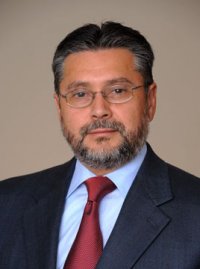
Director, Division of Neuroscience, Development and Aging
Center for Scientific Review
Current Position: Deputy Director, Center for Scientific Review. Updated bio not available at this time.
*Currently on a detail.
René Etcheberrigaray is the Director of the Division of Neuroscience, Development and Aging at the Center for Scientific Review, NIH. He provides leadership and direction for the scientific merit review of broad neuroscience, development, and aging areas and recommends policies and procedures governing NIH extramural activities related to the scientific and technical review of applications within the purview of the Division. Dr. Etcheberrigaray obtained his M.D. degree from the University of Chile in 1986 and came to the NINDS intramural program as a Visiting Fellow in 1987. Subsequently he was promoted to Visiting Associate and then Visiting Scientist. Dr. Etcheberrigaray continued his career in academia (Georgetown University, 1995-1999) and then as a senior manager and scientist in industry (Neurologic 1999-2002). He returned to NIH, CSR in 2002 where he served as Scientific Review Officer and then Chief of the Brain Disorders and Clinical Neuroscience Integrated Review Group. Dr. Etcheberrigaray was promoted to Division Director in late 2008.
Valerie Florance, Ph.D.
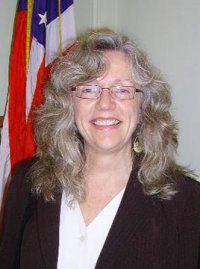
Valerie Florance, Ph.D. is Director of the grants division at the National Library of Medicine, NIH. There, she has overall responsibility for research and resource grant programs that address basic and applied research topics in biomedical informatics and information sciences, and for NLM's highly-regarded university based informatics training program. Before coming to NLM in February 2001, she spent 3 years as Project Director for better_health @ here.now, a visioning project undertaken at the Association of American Medical Colleges (AAMC) to help the association's members understand the power of computers and networks. Before that, she held faculty and administrative positions at three academic medical centers. During that time she won several awards for published articles. Her research interests are in the areas of knowledge representation for clinical problem solving and in intelligent information retrieval systems. She was a member of the NRC/NAS study that published "Networking Health: Prescriptions for the Internet" in June 2000. She is a fellow of the American College of Medical Informatics. She has graduate degrees in medical anthropology and information sciences, including an MLS degree in library science.
Petra Kaufmann, M.D., M.Sc
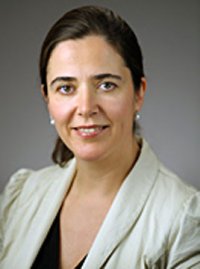
*No longer at NIH
Director
Office of Rare Diseases Research and Division of Clinical Innovation
National Center for Advancing Translational Sciences
National Institutes of Health
Petra Kaufmann is the director of both the Office of Rare Diseases Research and the Division of Clinical Innovation. Her work includes overseeing NCATS’ Rare Diseases Clinical Research Network, Genetic and Rare Diseases Information Center, and Clinical and Translational Science Awards Program as well as the NIH/NCATS Global Rare Diseases Patient Registry Data Repository/GRDR® program. Kaufmann focuses on engaging a broad range of stakeholders to accelerate translation from discovery to health benefits through use of innovative methods and tools in translational research and training.
Before joining NCATS, Kaufmann was the director of the Office of Clinical Research at the National Institute of Neurological Disorders and Stroke (NINDS), where she worked with investigators to plan and execute a large portfolio of clinical research studies and trials in neurological disorders, including many in rare diseases. She established NeuroNEXT, a trial network for Phase II trials using a central institutional review board, streamlined contracting, active patient participation in all project phases, and a scientific and legal framework for partnership with industry. Kaufmann also promoted data sharing, working with multiple stakeholders from the academic, patient organization and industry sectors to develop data standards for more than 10 neurological diseases.
A native of Germany, Kaufmann earned her M.D. from the University of Bonn and her M.Sc. in biostatistics from Columbia University’s Mailman School of Public Health. She completed an internship in medicine at St. Luke’s/Roosevelt (now part of Mt. Sinai) in New York City, training in neurology and clinical neurophysiology at Columbia University, and a postdoctoral fellowship in the molecular biology of mitochondrial diseases at Columbia’s H. Houston Merritt Clinical Research Center for Muscular Dystrophy and Related Diseases. Before joining NINDS, Kaufmann was a tenured associate professor of neurology at Columbia, where she worked as a researcher and clinician in the neuromuscular division, the electromyography laboratories and the pediatric neuromuscular clinic.
She has served on scientific advisory committees for many rare disease organizations and is a member of the American Academy of Neurology Science Committee, the International Rare Disease Research Consortium Interdisciplinary Scientific Committee and the Clinical Trial Transformation Initiative Steering Committee.
Kaufmann is board certified in neurology, neuromuscular medicine and electrodiagnostic medicine. Kaufmann’s research focus is on the clinical investigation of rare diseases, such as spinal muscular atrophy, amyotrophic lateral sclerosis and mitochondrial diseases. She currently sees patients in the Muscular Dystrophy Association Clinic at Children’s National Medical Center in Washington, D.C.
Michael Krause, Ph.D.
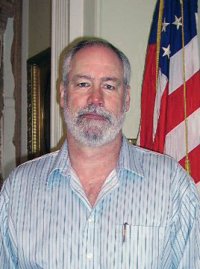
Michael Krause is currently Scientific Director and Chief, Laboratory of Molecular Biology within the National Institute of Diabetes and Digestive and Kidney Diseases (NIDDK) at the National Institutes of Health (NIH) in Bethesda, Maryland. Consisting of nearly 100 scientists and administrative support staff, the LMB is home to some of the top researchers in the world investigating diverse areas of basic science. Dr. Krause's own research focuses on topics related to understanding the molecular mechanisms allowing cells to adopt different fates during embryogenesis, yielding the many different tissue types found in all animals. His work addresses fundamental problems in developmental biology that are relevant to several disease processes, including Muscular Dystrophy, Diabetes, and nutritional disorders. As Director of the Genomics Core in NIDDK, he oversees a facility providing service to a variety of NIH researchers using current whole genome technology for data acquisition and analysis. As Acting Deputy Scientific Director, Dr. Krause helps with resource decisions related to the approximately 100 Principal Investigators and their staff conducting clinical and basic science within the institute. Dr. Krause received his Ph.D. in Molecular, Cellular, and Developmental Biology from the University of Colorado and did his postdoctoral training with Dr. Harold Weintraub at the Fred Hutchinson Cancer Research Center in Seattle, Washington.
Wendy A. Liffers, J.D., M.A.
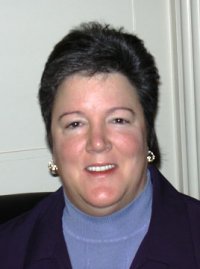
*Retired
Ms. Wendy A. Liffers is a federal executive and attorney whose 28-year science policy and management operations career has been centered on the development, management, and analysis of major biomedical research programs at the National Institutes of Health (NIH). Her core functions and responsibilities have encompassed operational and strategic science and program planning, program and performance management, and Congressional and intergovernmental relations and legislative analysis.
Ms. Liffers joined NIH in 1985 as its first Presidential Management Intern (now Fellows), serving in that capacity at the National Institute of Allergy and Infectious Diseases (NIAID). She subsequently held a number of positions in NIAID over a 13-year tenure, including Director, Office of Policy Analysis, where she managed the institute's planning, legislation, program and policy analysis, and evaluation functions. In this capacity, Ms. Liffers developed the Institute's first strategic plan and its highly lauded science planning process. From 1998 to 2005, Ms. Liffers directed the Office of Science Policy and Analysis for the National Institute of Dental and Craniofacial Research, and served as the Associate Director for Policy Integration. In this latter role, she was a senior advisor and counselor to the NIDCR Director on a wide variety of policy concerns addressing and impacting trans-NIH programmatic and science policy issues, including the development and implementation of the NIH Roadmap.
Ms. Liffers is currently the Executive Officer for the National Center for Complementary and Alternative Medicine. In this role, she is the senior executive partner to the NCCAM Director and oversees the management, administrative, financial, information-systems, personnel, and related functions of the Center.
Prior to this appointment, Ms. Liffers served seven years in the NIH Office of the Director as the Associate Director for Management and Operations for the NIH Office of Management (OM).
Ms. Liffers received her B.S. degree in Animal Sciences from Rutgers University, her M.A. degree in International Affairs from the American University School of International Service, and her Juris Doctor degree from the American University Washington College of Law. While in law school, she was elected to the editorial board of the American University Law Review. Wendy has been admitted to practice before the Bars in New Jersey, Maryland, the District of Columbia, and the Supreme Court of the United States.
Christopher J. O'Donnell, M.D., M.P.H.
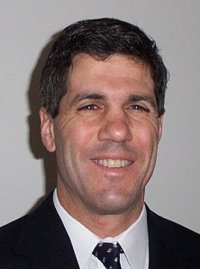
*No longer at NIH
Dr. Christopher J. O'Donnell received his undergraduate degree from Brown University, his medical degree from Harvard Medical School, and his public health degree from the Harvard School of Public Health. He completed an internal medicine residency and cardiology fellowship at Massachusetts General Hospital. He is currently on staff as a practicing cardiologist in the Cardiology Division, Department of Medicine, Massachusetts General Hospital, and he is a faculty member (Associate Clinical Professor) of Harvard Medical School. In 1996, Dr. O'Donnell joined the Framingham Heart Study as a Medical Officer of the National Heart, Lung and Blood Institute. In 2002, he was appointed Associate Director of the Framingham Heart Study and Co-Chair of its Genetic Steering Committee. In 2006, he was named Senior Advisor to the Director of the National Heart, Lung and Blood Institute for Genome Research. In this role, he provides leadership in steering the direction of the genetic and genomic research portfolio of NHLBI. In 2006, he was named the Scientific Director of the Framingham SHARE (SNP Health Association Resource) Study, a whole-genome association study in over 9,500 Framingham Heart Study participants. In 2007, he became a tenured investigator of the Division of Intramural Research of NHLBI. His major research focus is on the epidemiology and genetic epidemiology of clinical and subclinical cardiovascular disease, and he directs numerous large-scale imaging studies using cardiac CT scanning, cardiac magnetic resonance imaging, and other subclinical atherosclerosis modalities. In 2008, he was named the Scientific Director of the NHLBI's entire SHARe Program, a portfolio of four GWAS programs including Framingham SHARe. He has published over 230 peer reviewed articles and chapters in journals, including the Journal of the American Medical Association, Nature Genetics, the American Journal of Human Genetics, Circulation, and the New England Journal of Medicine. Dr. O'Donnell is a fellow of the American College of Cardiology and the American Heart Association. He served as the Chair of the Statistics Committee and is the Chair Elect of the Council for Epidemiology and Prevention of the American Heart Association. He also serves on numerous Committees and Working Groups of the NHLBI, NIH and the AHA. Dr. O'Donnell is a recipient of several Awards of Merit from the NHLBI and the National Institutes of Health for his research achievements and his direction of the SHARe Program. He is an elected member of the American Society for Clinical Investigation and he also served as an Associate Member of the Broad Institute of Harvard and Massachusetts Institute of Technology.
Maryland Pao, M.D.

Clinical Director
National Institute of Mental Health
Dr. Pao is the Clinical Director of the National Institutes of Health Intramural Research Program at the National Institutes of Health. She serves as Chief of the Psychiatry Consultation Liaison Service in the Hatfield Clinical Research Center and is the Clinical Fellowship Training Director. A native of Bethesda, she attended Wellesley College before completing a BA/MD program at Johns Hopkins University School of Medicine. She completed Pediatric and Psychiatric Residency training as well as a Child and Adolescent Psychiatry Fellowship at Johns Hopkins Hospital. She is board certified in Pediatrics, General Psychiatry, Child and Adolescent Psychiatry and Psychosomatic Medicine. Her core research interests are in the complex interactions between somatic and psychiatric illnesses including pediatric oncology, pediatric HIV and other primary immunodeficiencies. She studies distress and its correlates in medically ill children and has initiated a multisite study on screening for suicide in medically ill children in emergency rooms. She is on the Clinical Faculty at Georgetown University, George Washington University and at Johns Hopkins University Schools of Medicine.
Patricia Powell, Ph.D.
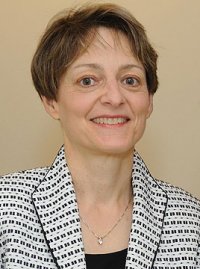
Chief, Science Policy Branch
National Institute on Alcohol Abuse and Alcoholism
Current Position: Deputy Director, National Institute on Alcohol Abuse and Alcoholism. Updated bio not available at this time.
Patricia (Trish) Powell serves as the Chief of the Science Policy Branch for the National Institute on Alcohol Abuse and Alcoholism (NIAAA). She is responsible for the Institute's communications with Congress through the Congressional Justification and Congressional testimony, and interfaces with the NIH OD as well as NIAAA on policy and planning activities. She also works actively on many aspects of underage drinking prevention: she served as the NIAAA lead for The Surgeon General's Call to Action To Prevent and Reduce Underage Drinking and worked closely with three successive Surgeons General in producing, promoting and disseminating it; she represents NIAAA on the Interagency Coordinating Committee on the Prevention of Underage Drinking charged with integrating federal efforts to prevent underage drinking; and works closely with the Leadership to Keep Children Alcohol Free Foundation which is spearheaded by spouses of current and former Governors and focuses on the prevention of drinking by children ages 9-15. Prior to joining NIAAA, she spent one year as an American Association for the Advancement of Science (AAAS) Science and Technology Policy Fellow at the National Science Foundation in the Division of Elementary, Secondary and Informal Education focusing on how to provide information about cutting edge science to the public through science museums, television and radio programs and IMAX films. The primary goal was to design an initiative for educating the public about major areas of ongoing research that warranted translation—especially research that could impact individual decisionmaking or policy formulation. Dr. Powell has twenty years of research experience in developmental genetics, cellular and molecular biology in both plants and animals. Her research experience ranges from generating genetically modified virus resistant plants, to pattern formation and neural development in the fruitfly. She received a Bachelors of Arts degree in Classics from Franklin and Marshall College and a Ph.D. from Washington University in Cellular and Molecular Biology. In addition she did post-doctoral studies at the Salk Institute, University of California at San Diego and Washington University.
Anna Ramsay-Ewing, Ph.D.
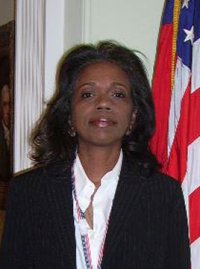
Associate Director for the Extramural Science Policy
National Institute of Allergy and Infectious Diseases
Current Position: Director of the Office of Grants Management and Scientific Review, National Center for Advancing Translational Sciences. Updated bio not available at this time.
Dr. Ramsey-Ewing received her B.S. degree in Microbiology from the University of Miami in 1984; her undergraduate research was conducted at the Rosensteil School of Marine and Atmospheric Sciences where she studied lemon shark bioenergetics with Dr. Samuel Gruber. Dr. Ramsey-Ewing received her Ph.D. degree from the University of Florida College of Medicine in Medical Microbiology and Immunology in 1991 where she held a McKnight Doctoral Fellowship and Ford Foundation Dissertation Fellowship; she studied transcriptional regulation of human histone genes during the cell cycle and terminal differentiation in the laboratory of Drs. Gary and Janet Stein. She completed postdoctoral training under Dr. Bernard Moss in molecular virology and was appointed as senior staff fellow in the Laboratory of Viral Diseases at the National Institute of Allergy and Infectious Diseases, NIH; her postdoctoral work focused on the molecular basis of poxvirus host range restriction and pathogenesis. In 1998, Dr. Ramsey-Ewing joined the Scientific Review Program of the Division of Extramural Activities, NIAID, as a Scientific Review Administrator where she conducted peer review of grants, cooperative agreements and contracts in the areas of biodefense and emerging infectious diseases, tropical medicine and sexually transmitted infections, HIV/AIDS, SARS and autoimmunity. In 2004, Dr. Ramsey-Ewing joined the Office of the Director, Division of Extramural Activities, NIAID, as Special Assistant to the Director, where she was responsible for development and implementation of extramural science policy. In 2008, Dr. Ramsey-Ewing was appointed to the position of Associate Director for Extramural Science Policy, in the Office of the Director, DEA, in which she assumed additional responsibilities, including, but not limited to, oversight of the DEA Policy Shop, the DEA Action and Response Team, the Office of Knowledge Resources and the Scientific Resource Development Team. Topics within Dr. Ramsey-Ewing's purview range from conflict of interest through human subjects protections, animal welfare and clinical research policy.
Mark J. Rotariu, M.P.A., M.B.A.
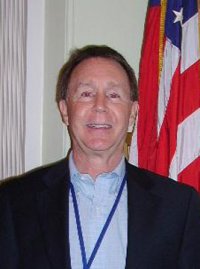
*Retired
Mark J. Rotariu began his career at the NIH in 1969, with a summer job as a legislative trainee in the Office of the Director. His first full-time position was in the budget office of the National Heart and Lung Institute (predecessor to NHLBI), where he advanced from Budget Clerk to Deputy Budget Officer while earning a BA in political science from American University. He graduated from AU in 1979, and was elected to Phi Kappa Phi. In 1981, he was appointed Budget Officer at the National Library of Medicine (NLM). During his tenure at NLM, Mr. Rotariu helped defend the NLM's pricing policies for their biomedical information products and services from a vigorous attack by a foreign publishing firm. In recognition, he received the first annual NLM Director's Award. While at NLM, he also earned a Master of Public Administration degree from American University--in the Key Executive Program—and was elected to Pi Alpha Pi. In 1988, he was appointed Executive Officer at the National Center for Nursing Research, a new organization at the NIH, where he hired key administrative managers, secured resources, and developed policies and procedures.
Mr. Rotariu entered the private sector in 1989, when he was recruited to Sandoz Pharmaceuticals by Dr. Robert I. Levy, the former Director of NHLBI. While serving as Director, R&D Finance at Sandoz, he helped plan and execute a tripling of the company's R&D capacity in the U.S., a major reorganization which globalized R&D efforts, and a merger with Ciba-Geigy Pharmaceuticals. After earning a Master of Business Administration from Rutgers University, with election to Beta Gamma Sigma, he did developmental rotations in both marketing and sales. Subsequently, he was appointed Executive Director, Business Processes for Novartis Pharmaceuticals (the merged entity), and directed an innovative, web-based IT project to plan, budget, commit, pay, and report product promotion expenses—the company's single largest discretionary cost. In 2000, Mr. Rotariu entered the biotechnology business, hired by Amersham Biosciences to become their Vice President, Finance North America. There, he helped implement a new system for product ordering and distribution; develop a strategic plan for the business; reorganize the Finance department; and conduct leadership and team-building training for finance managers. After a major global reorganization eliminated his position at Amersham, in 2002 he returned to the NIH as Budget Officer, National Institute on Deafness and Other Communication Disorders (NIDCD)—his current position. During his tenure at NIDCD, Mr. Rotariu has served the NIH in a variety of leadership roles, including the Administrative Restructuring Advisory Committee; the Administrative Training Committee; the NIEHS Management Review Team; Acting Deputy Executive Officer, NEI; and as a Special Assistant in the Office of Budget. Mr. Rotariu has two children, Elizabeth and Jack. He volunteers at The Children's Inn at NIH, serving on their Finance and Strategic Planning committees. Outside interests include travel, sports, and scuba diving.
Douglas Kurt Stenger, P.M.P.

*No longer with NIH
Douglas Kurt Stenger is the Program Manager for the Information Systems Designated Procurement (or iSDP) program, which centralizes software procurement for the NIH (and HHS), conducting more than $149M in total fiscal activity during FY08/09.
Prior to joining NIH, he completed a career as a Communications (Information Technology) Officer in the US Air Force. As organizational Chief Information Officer, Mr. Stenger led a team of 42 military, civilian and contractor personnel supporting three nationwide networks for rapid technology development in support of warfighter operations. He spearheaded the fielding of multiple network upgrade and replacement programs worth over $32 Million in support of over 40,000 users in the Pacific Theater. As Test Manager, he directed the planning and end-to-end world-wide operational test execution of a $34 million software release. His efforts culminated with a full fielding decision by the Office of the Secretary of Defense. He directed the 8 month implementation, integration and operational checkout of the $10 Million complete replacement of the Defense Meteorological Satellite Program ground control system. Early in his career, Mr. Stenger developed and integrated mission planning software for tactical aircraft (F-16s, F15s, F4s, and F111s).
A graduate of the Air Force Reserve Officer Training Corps, he was commissioned a Second Lieutenant on 16 May 1987 and entered active duty service on 2 January 1988 at Keesler Air Force Base, Mississippi.
He received a Bachelor of Science in Mathematics from Slippery Rock University of Pennsylvania, a Master of Arts in Managerial Economics from the University of Oklahoma and a Master of Science in Software Engineering from the Air Force Institute of Technology.
Molly V. Wagster, Ph.D.

Dr. Molly V. Wagster is Chief of the Behavioral and Systems Neuroscience Branch in the Division of Neuroscience at the National Institute on Aging (NIA), National Institutes of Health (NIH), Bethesda, Maryland. Dr. Wagster oversees administration and development of research in cognitive and emotional change with age and in sensory and motor disorders of aging. She directly manages a portfolio of research in mechanisms of cognitive (memory, learning, attention, language) and affective (emotion) change with age that spans research from molecules to behavior. She serves as the NIH Project Officer for the development of the NIH Toolbox for Assessment of Neurological and Behavioral Function (contract supported by the NIH Blueprint for Neuroscience Research) and directs the trans-NIH Cognitive and Emotional Health Project.
Prior to joining the NIA, Dr. Wagster was a faculty member in the Department of Pathology, Division of Neuropathology, at The Johns Hopkins University School of Medicine. For over a decade, Dr. Wagster investigated neural mechanisms of learning and memory changes with age in animal models and studied changes in neuroreceptor mechanisms in relation to cognitive decline in neurodegenerative diseases such as Alzheimer's disease and Huntington's disease. Her research interests centered on individual differences with age in cognitive domains. Dr. Wagster also held a joint appointment in the Department of Psychology at The Johns Hopkins University.
Dr. Wagster received her M.S. and Ph.D. in Experimental Psychology (Behavioral Neuroscience) from Tulane University and completed a postdoctoral fellowship in Neuropathology at The Johns Hopkins University School of Medicine.
Heng Xie, M.D., M.P.H., Ph.D.
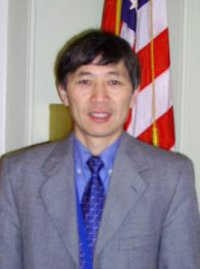
*No longer with NIH
As a Supervisory Medical Officer in the Division of Clinical Innovation at the National Center for Advancing Translational Sciences (NCATS), Dr. Xie oversees a team of Program Directors and Medical Officers, and manages the Clinical Translational Science Awards (CTSA) program, including developing strategies and resources for catalyzing innovation and accelerating laboratory and therapeutics discoveries into clinical trials.
Prior to joining the National Center for Research Resources, the predecessor of the NCATS, in 2009, Dr. Xie was a Medical Officer for the Cancer Therapy and Evaluation Program at the National Cancer Institute (NCI) and oversaw a multi-million dollar portfolio containing Surgical Oncology, Clinical Oncology, and Cancer Nutrition programs that support Phase 0, I, II and III cancer treatment trials. In addition, Dr. Xie has served on numerous trans-NCI and trans-NIH committees and working groups, published many funding initiatives, and received the NCI Leading Diversity Award, the NIH Merit Award and the NIH Director’s Award.
Dr. Xie received his M.D. and was a surgeon in China before coming to the United States. He then obtained a Ph.D. in Molecular and Cellular Pathology from the University of Alabama at Birmingham and M.P.H. from the Johns Hopkins University. He also has Educational Commission for Foreign Medical Graduates (ECFMG) certification. Dr. Xie obtained his postdoctoral training in Epidemiology, Biostatistics and Clinical Trials at the NCI. His prior research and publications were focused on cell signal transduction, EGFR mediated mechanisms of tumor invasion and metastasis, and genetic molecular epidemiology.
2024-2025 Tuition: $16,990
2024-2025 ExLP Application: Download Application
All individual applications should be submitted to your IC. The deadline for Executive Officers to submit rank-ordered applications to Keisha Berkley at the NIH Training Center is May 1, 2024.
*Note: Your IC may have an earlier deadline established for applications. Please consult with your Executive Officer for accurate internal deadlines.
For general program questions, please contact Keisha Berkley, Program Manager, NIH Training Center at Keisha.Berkley@nih.gov
